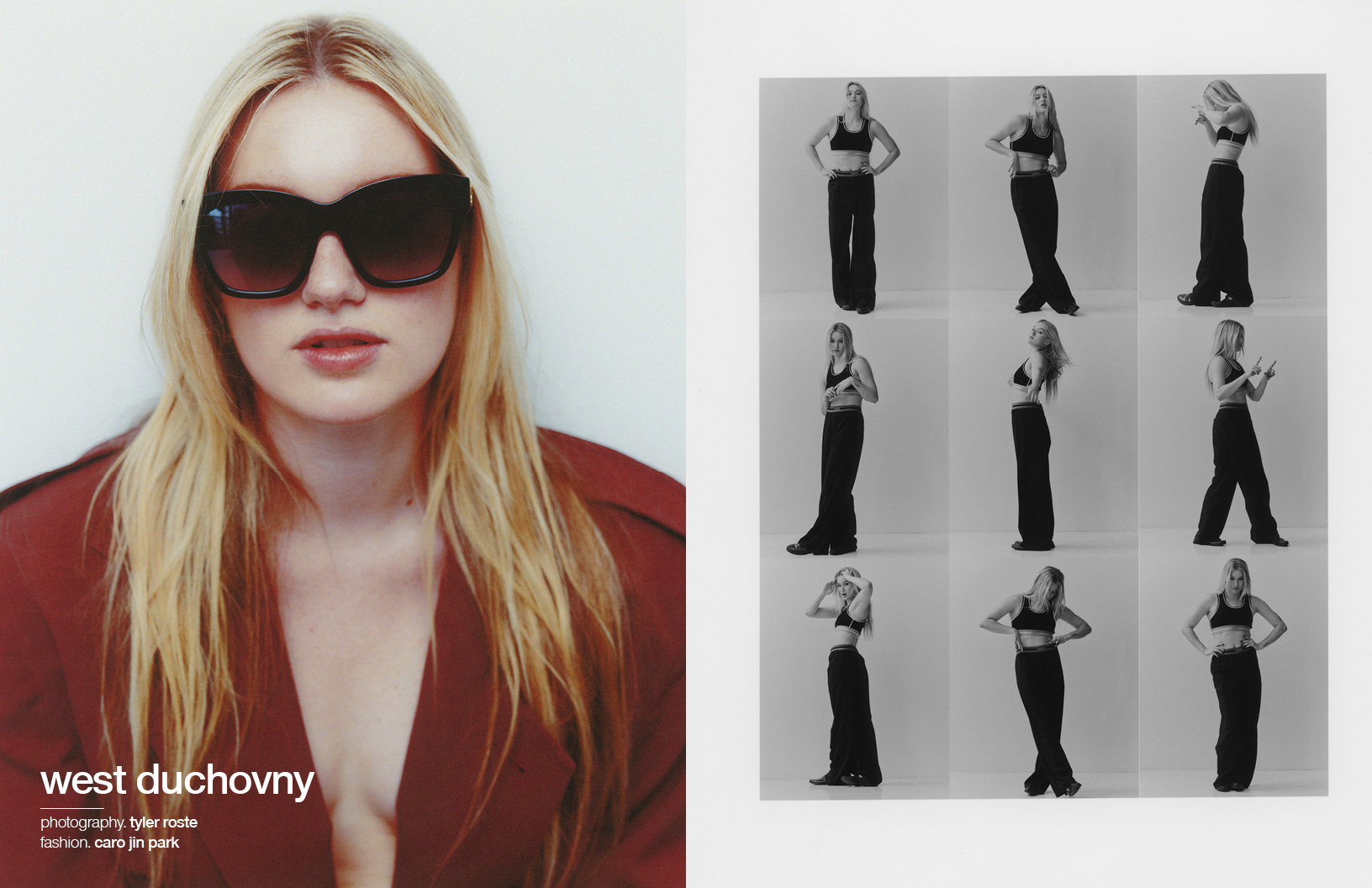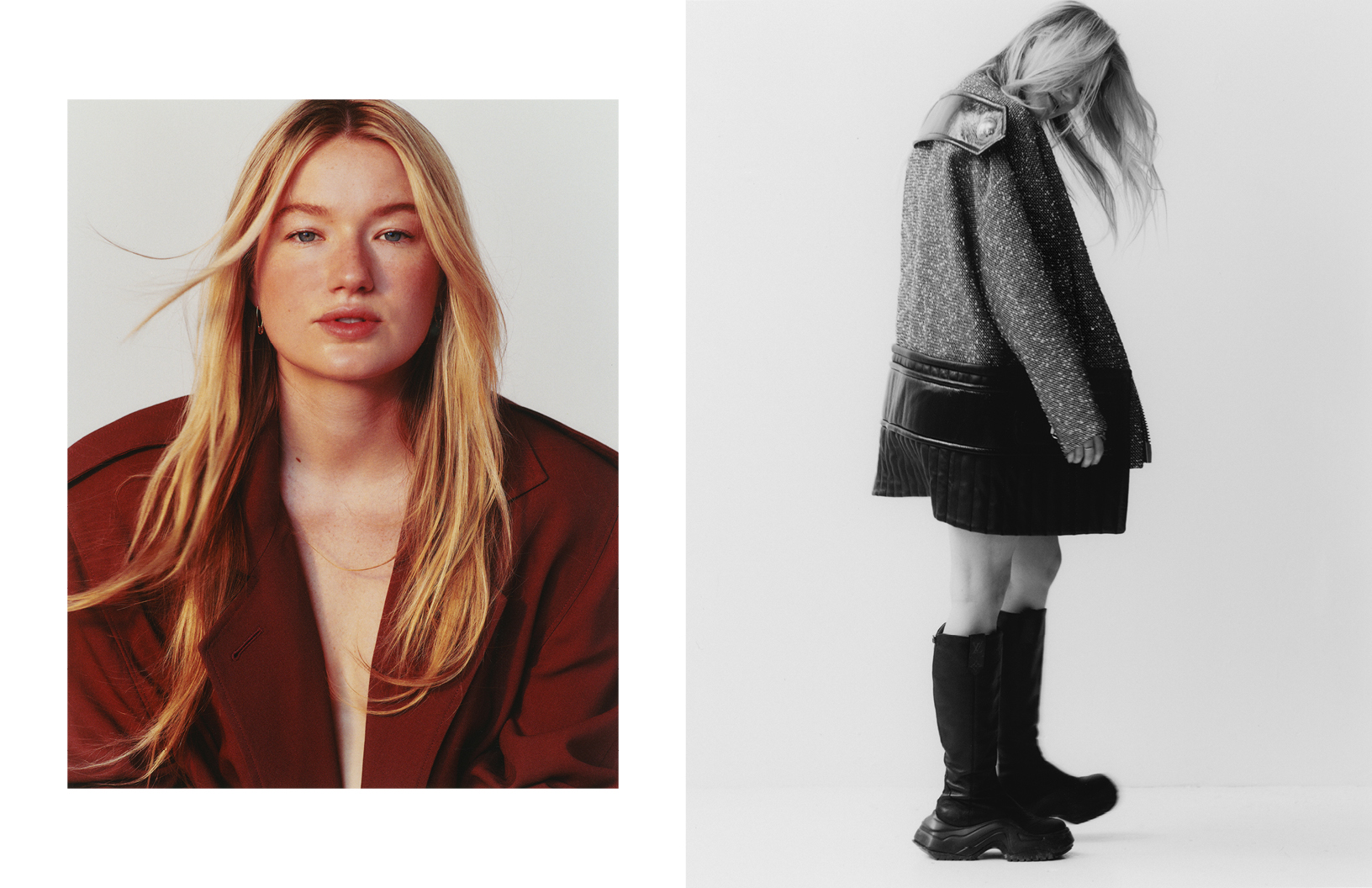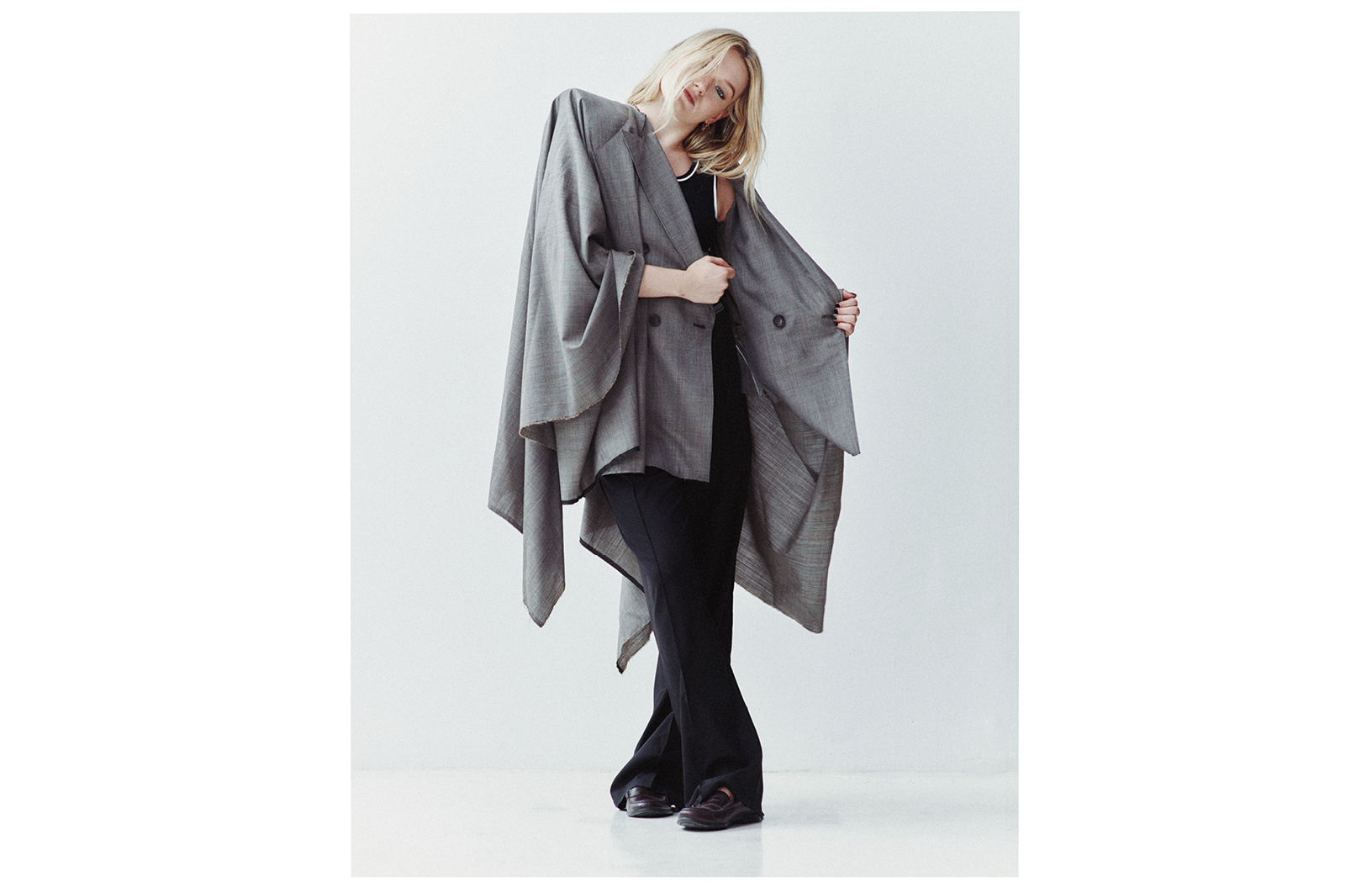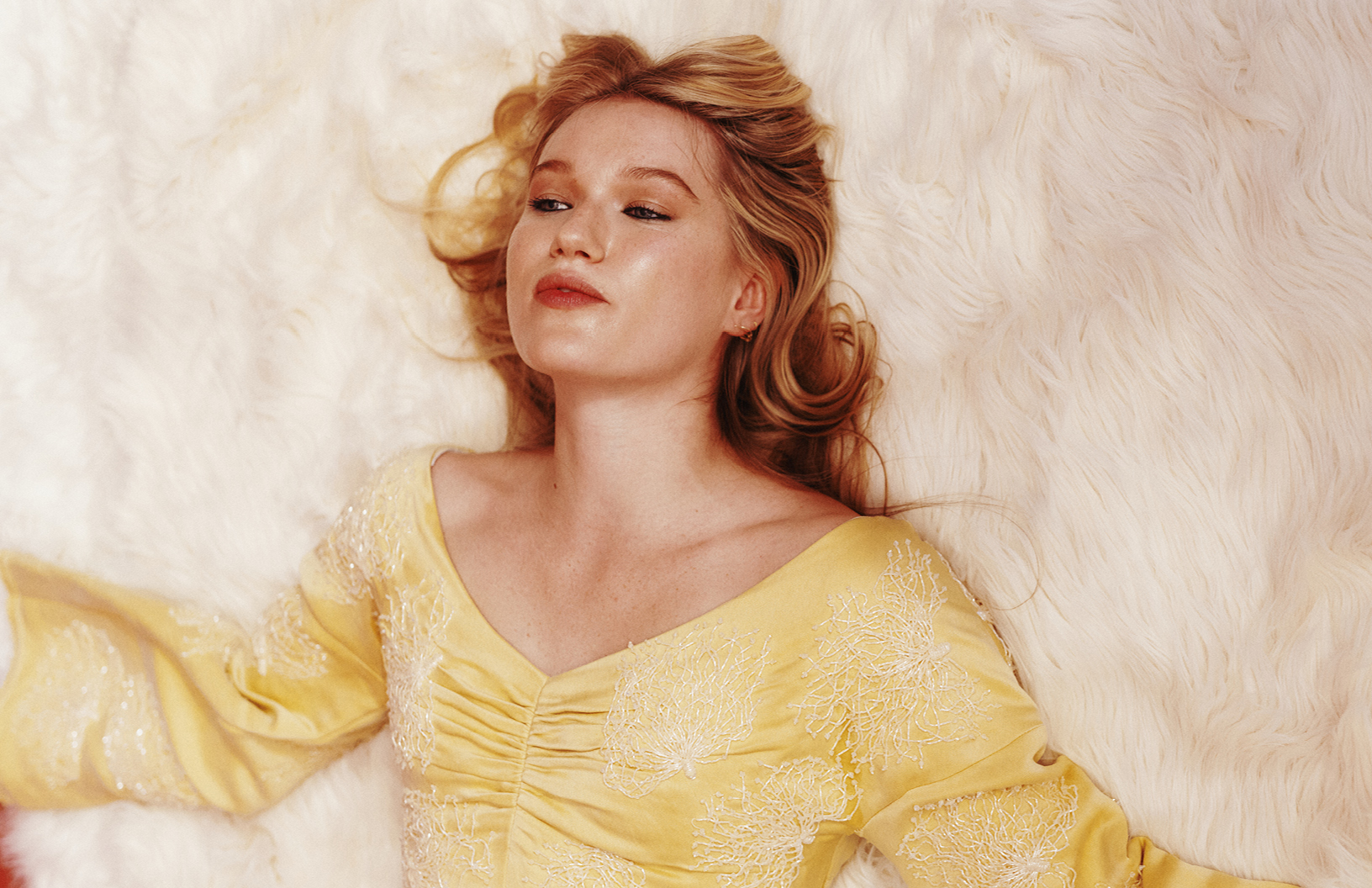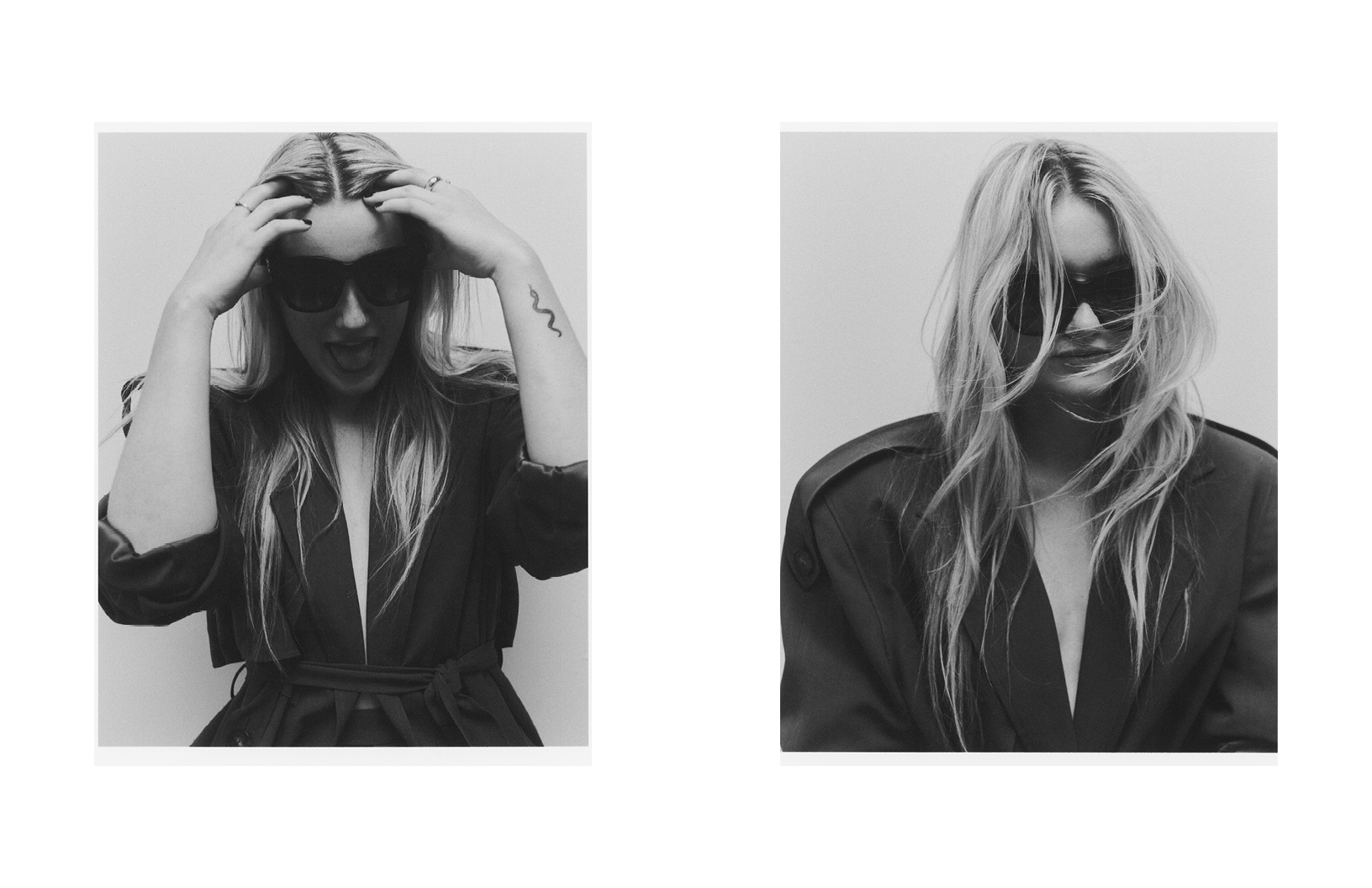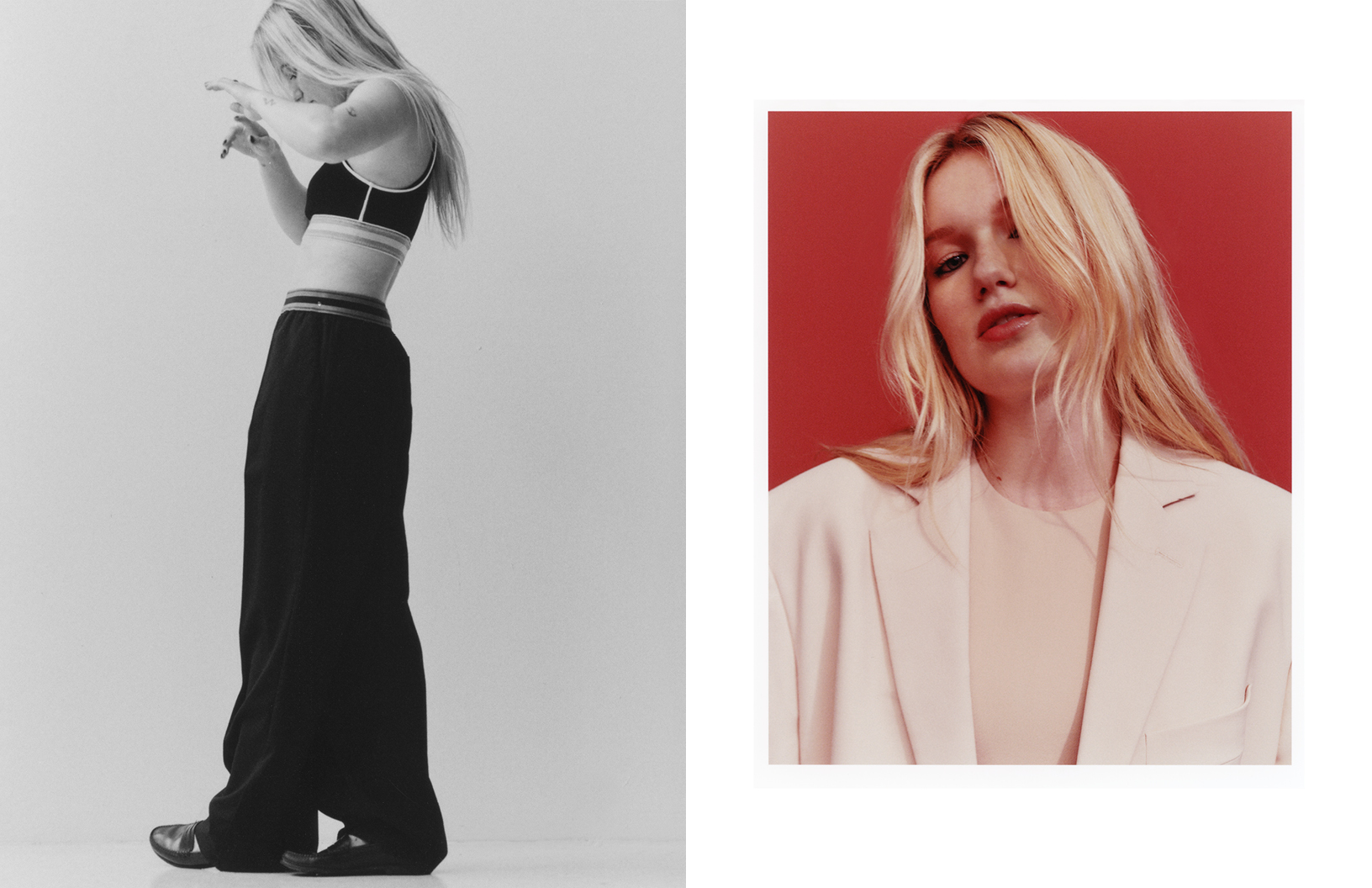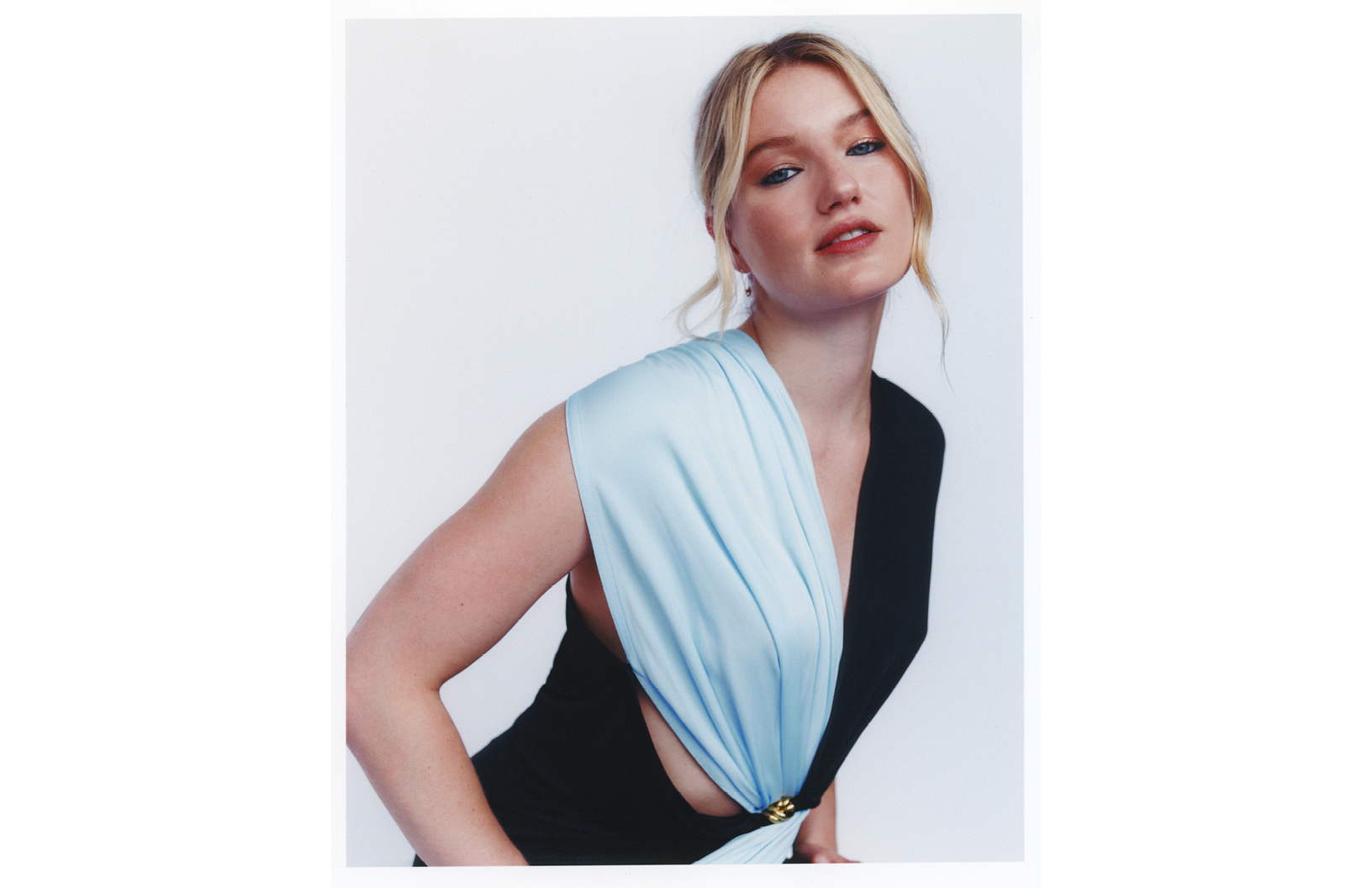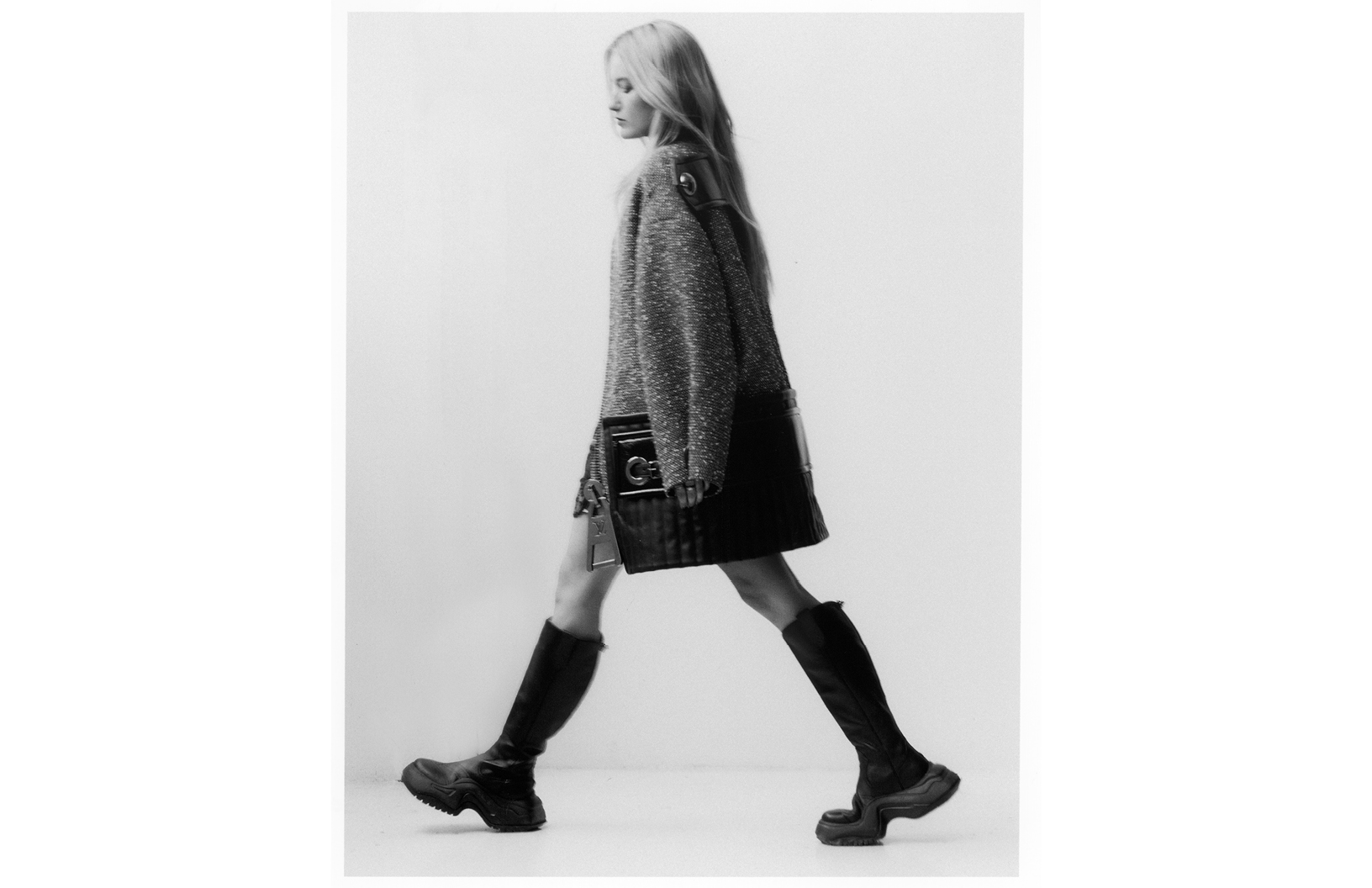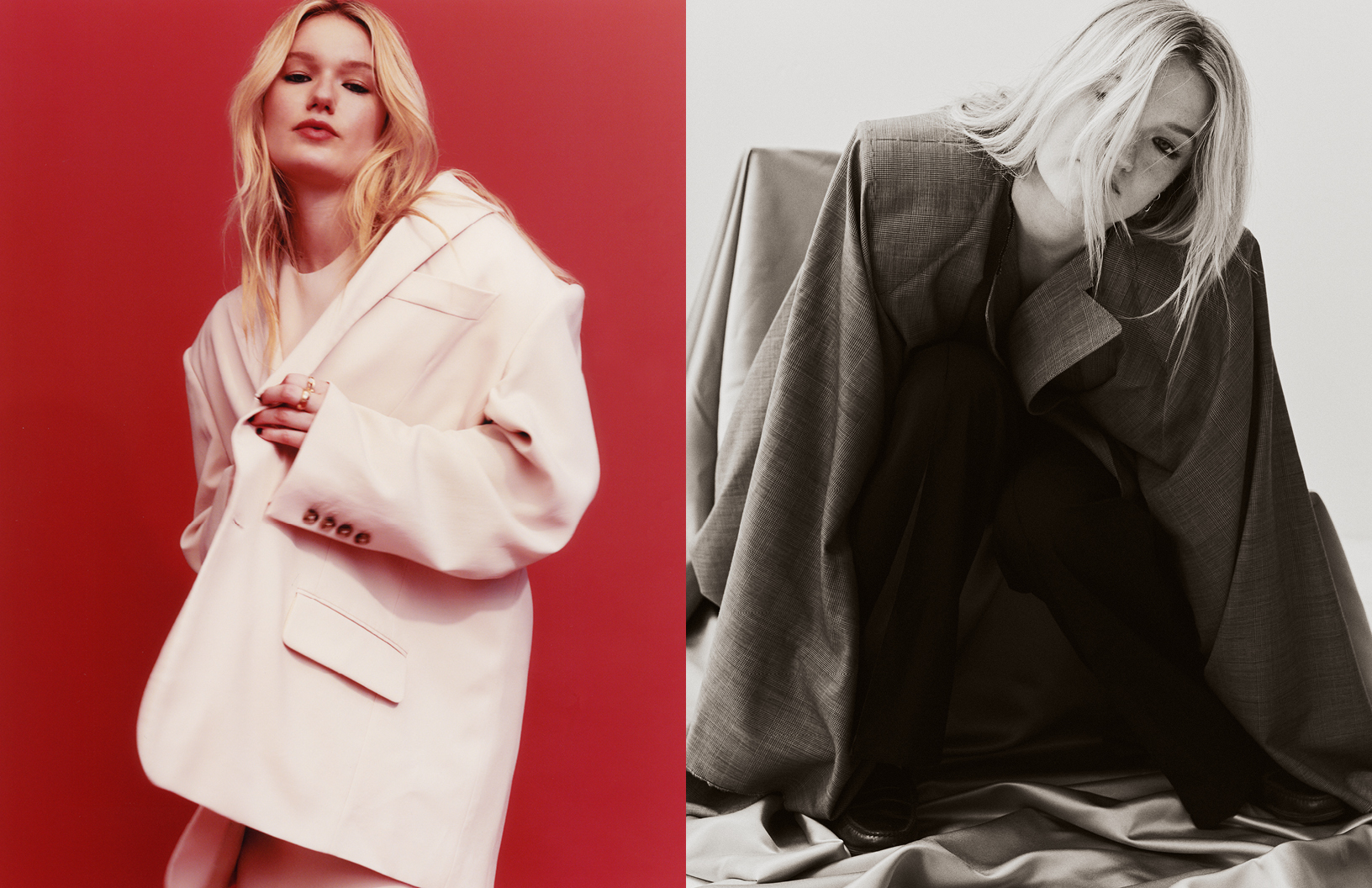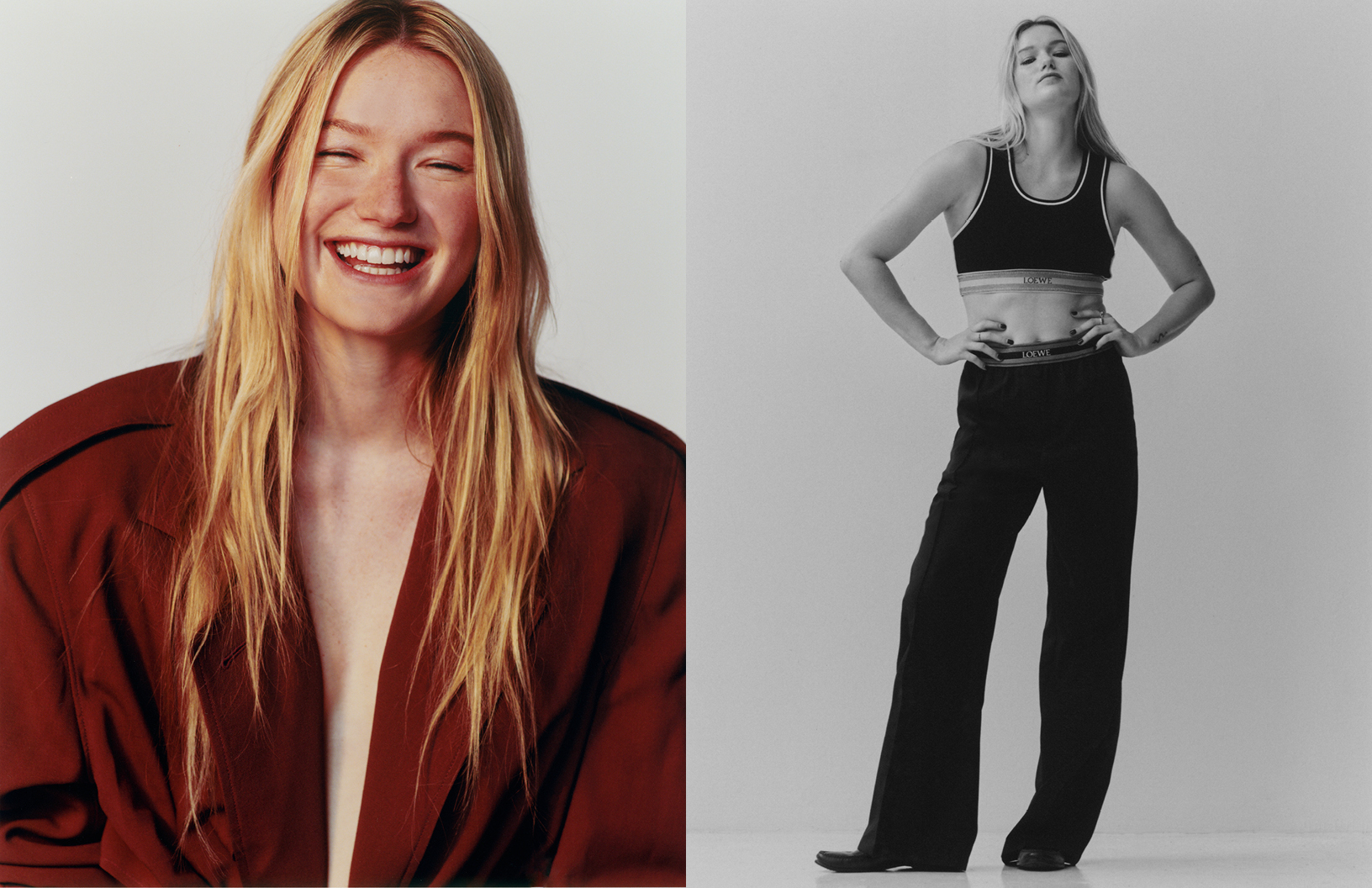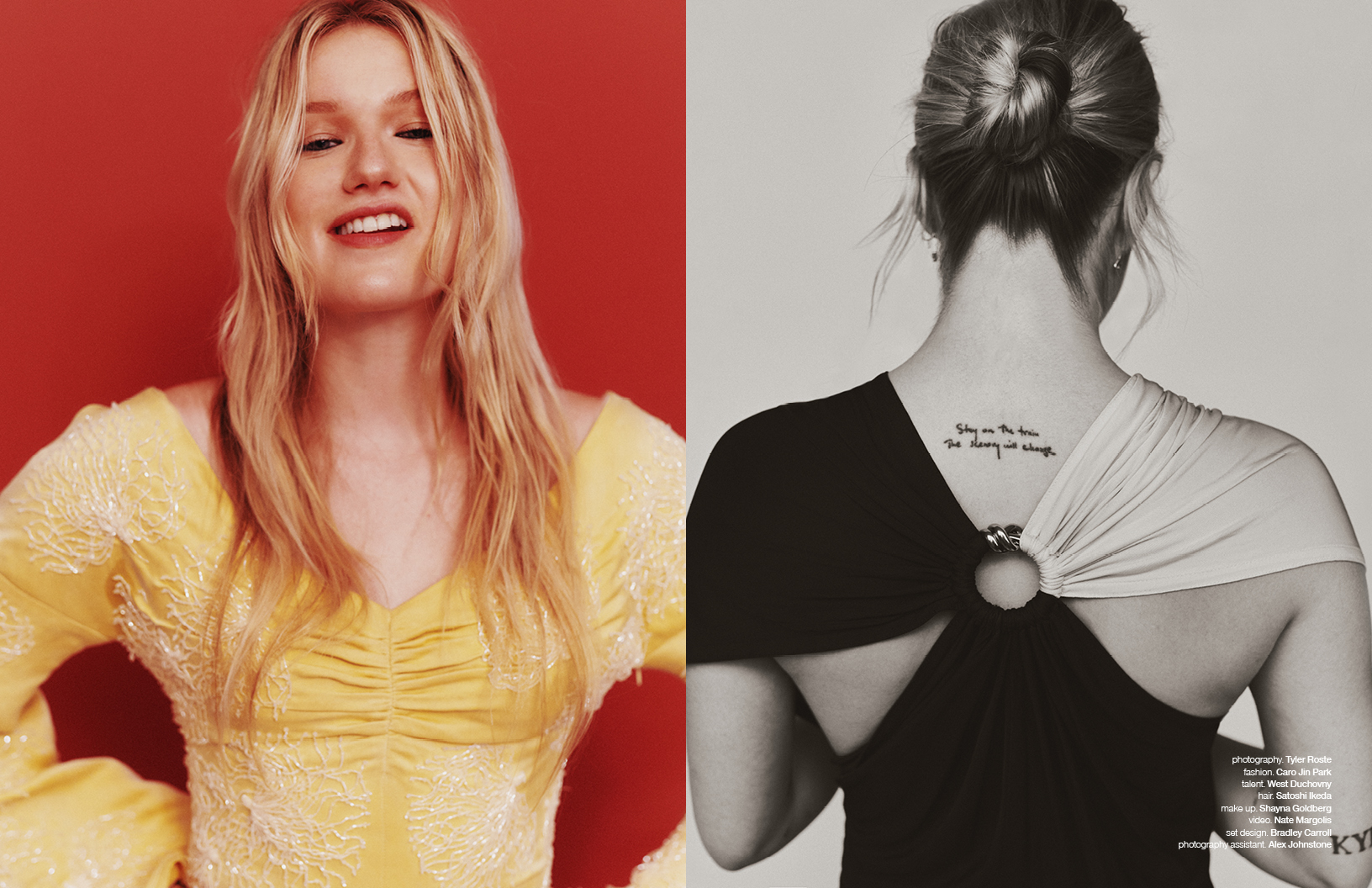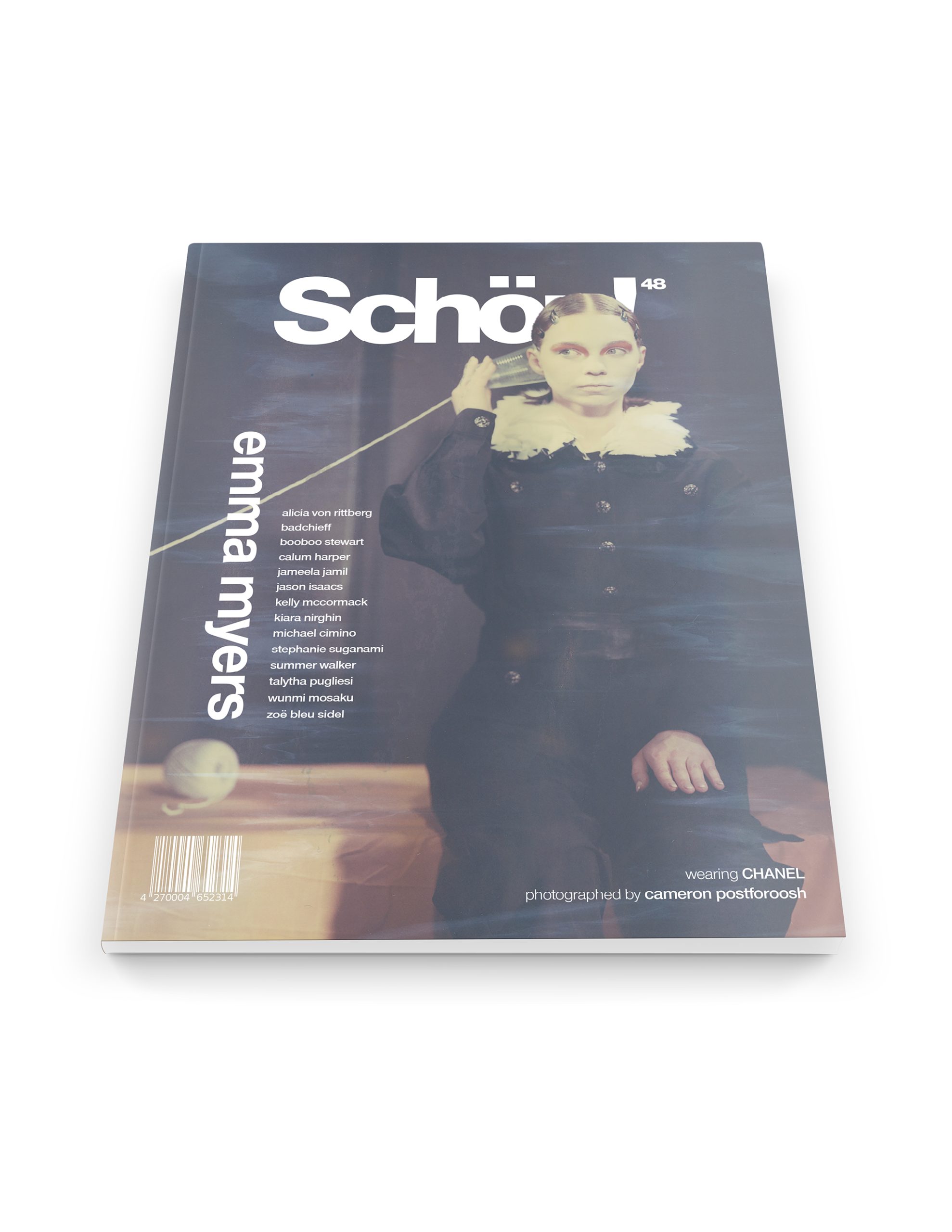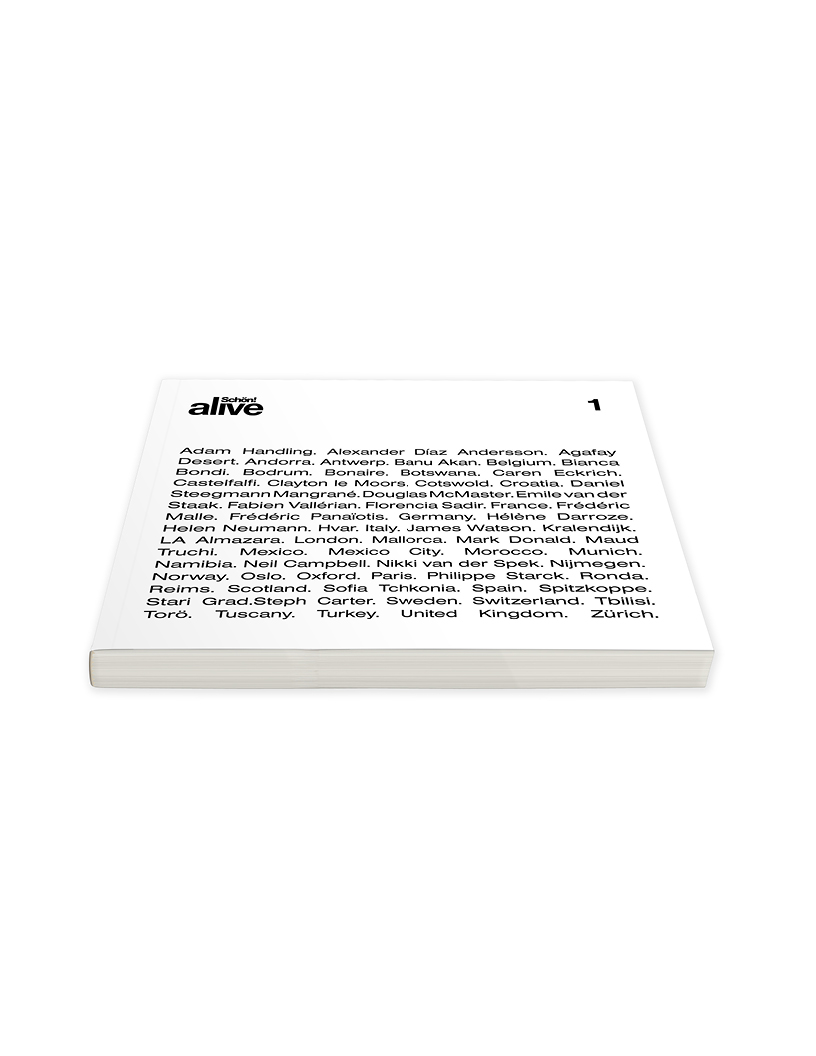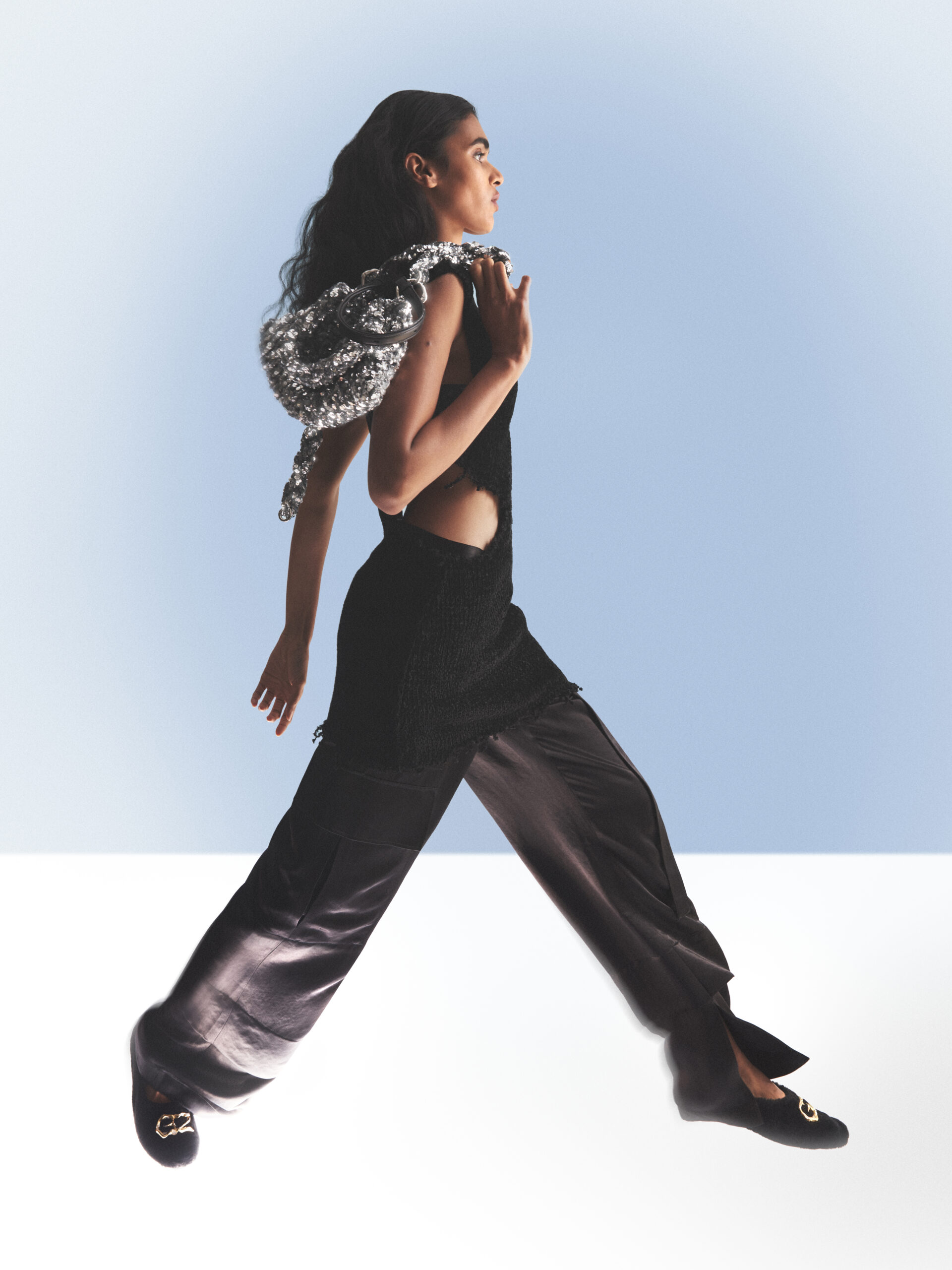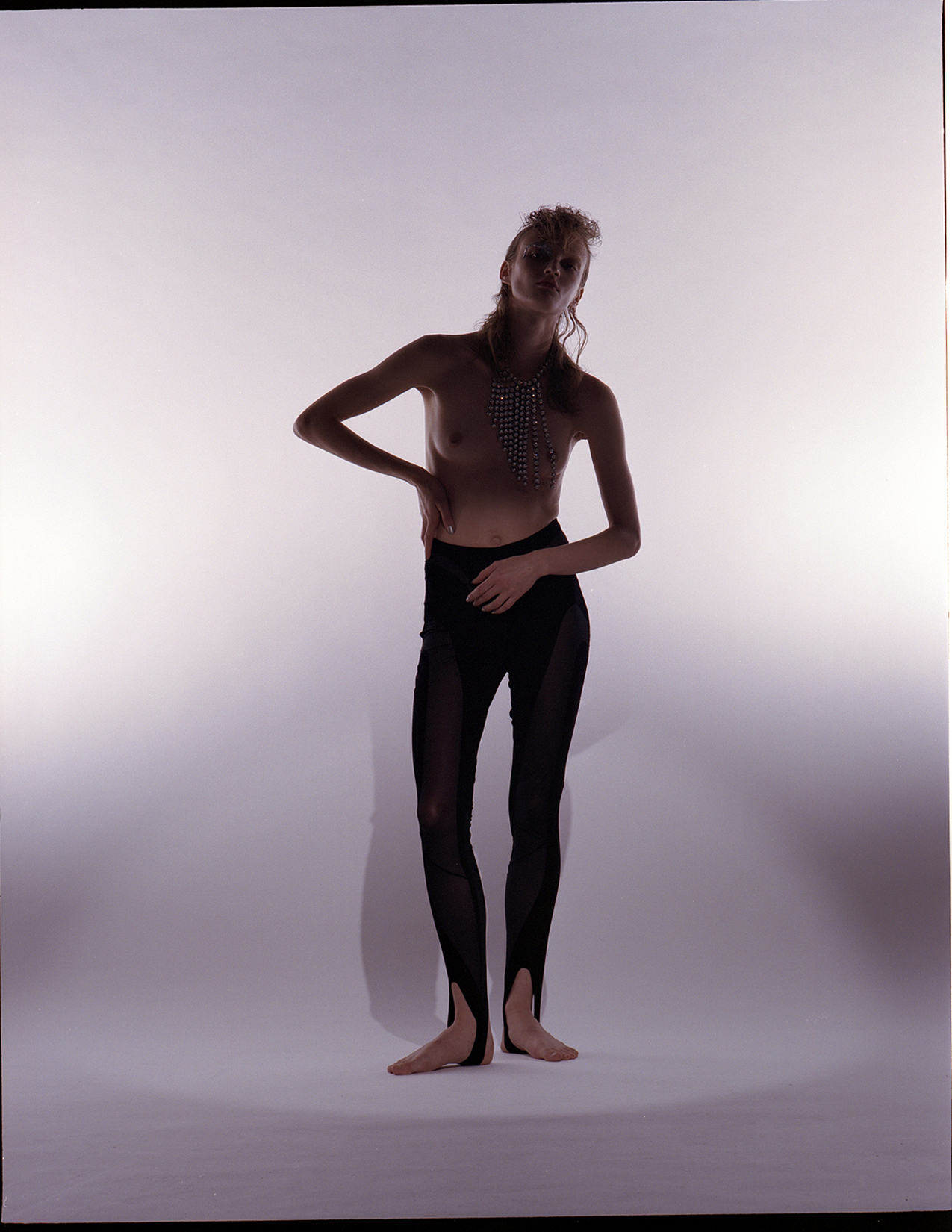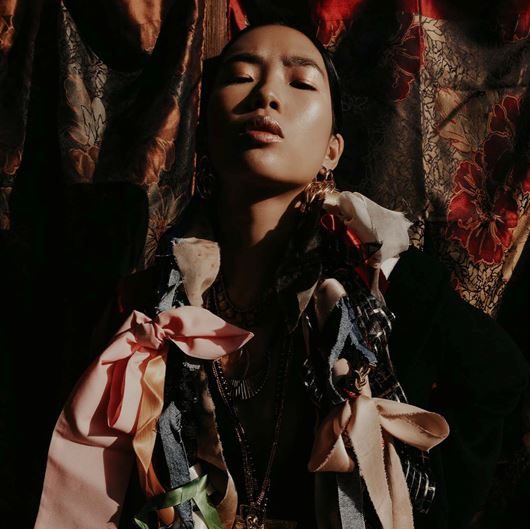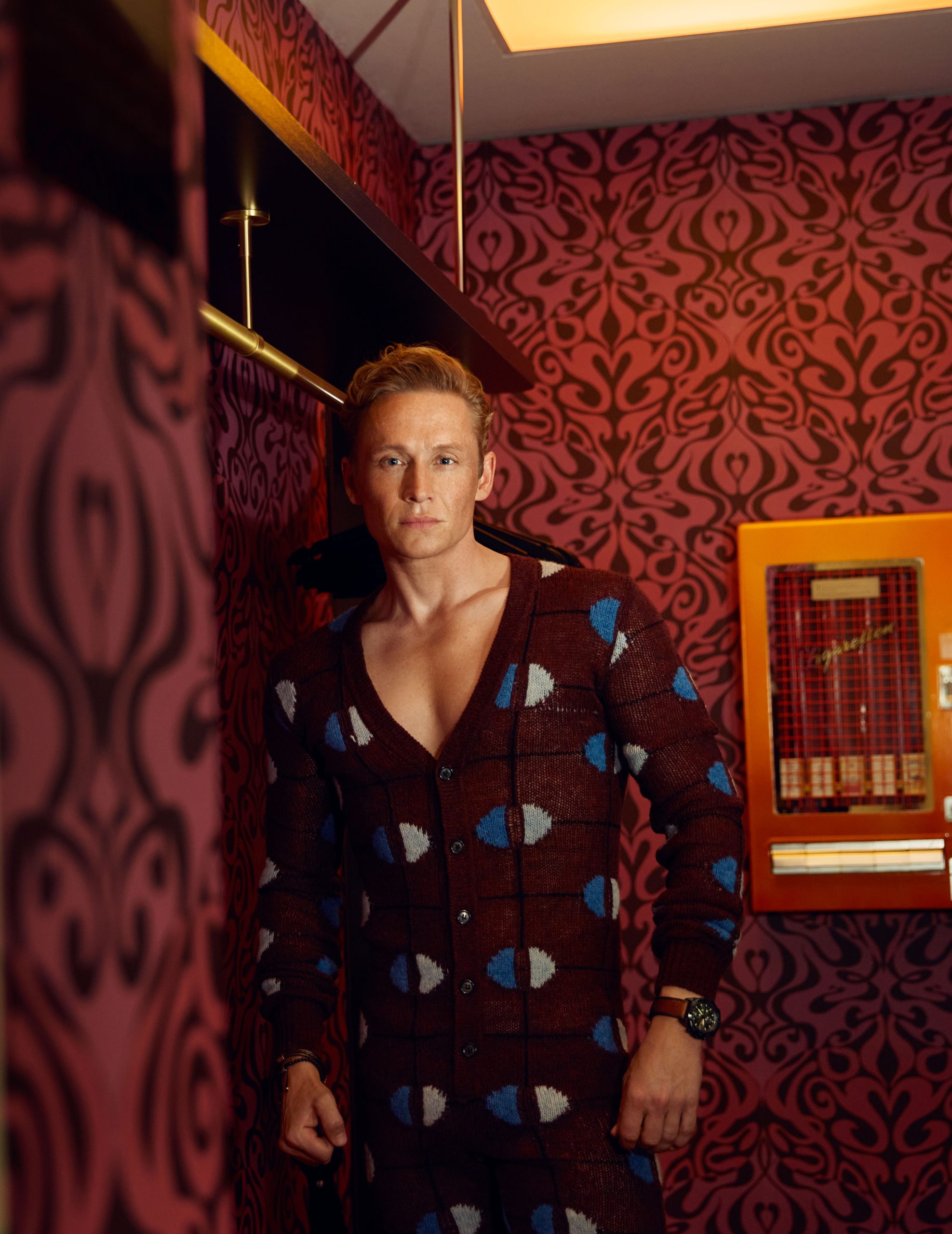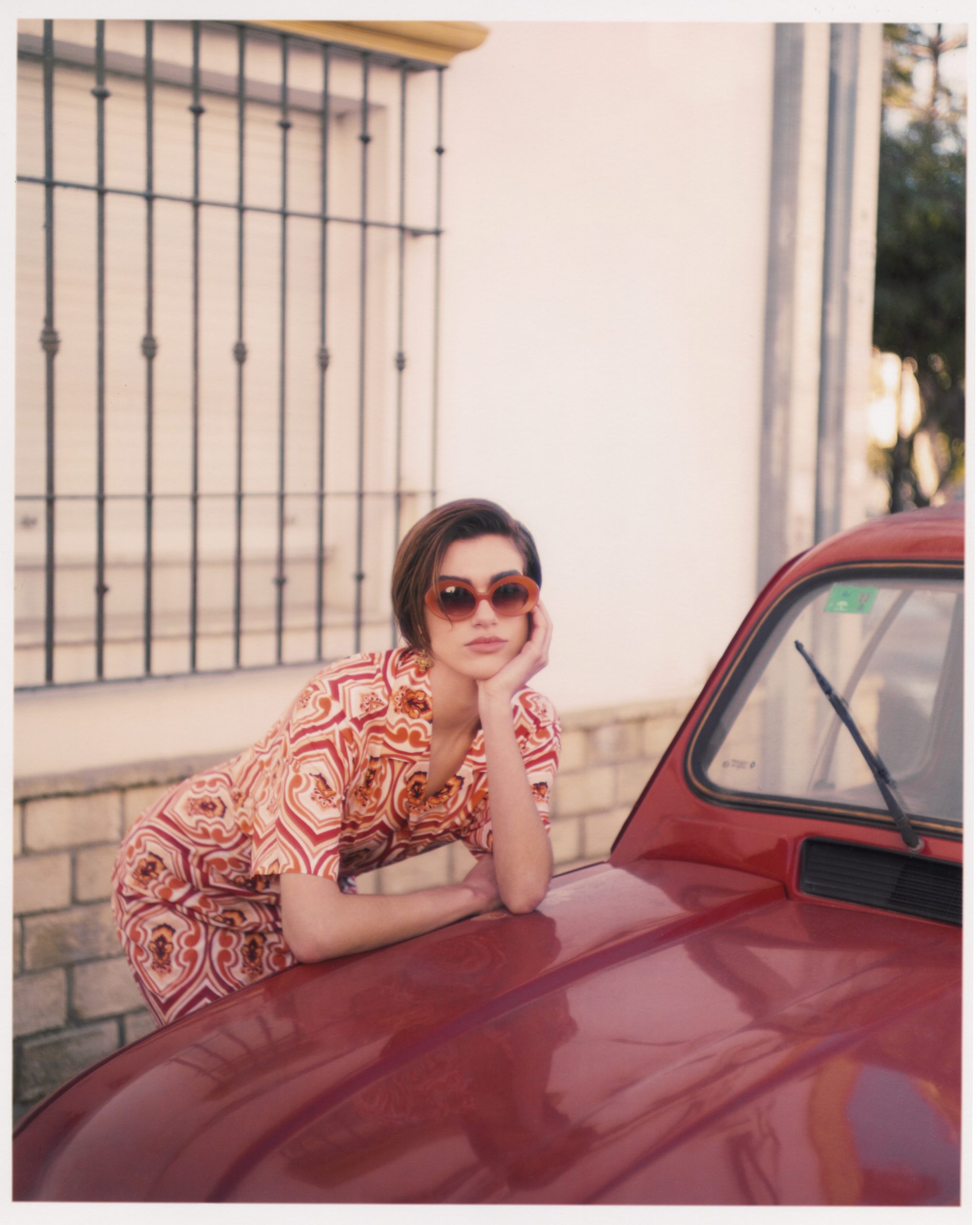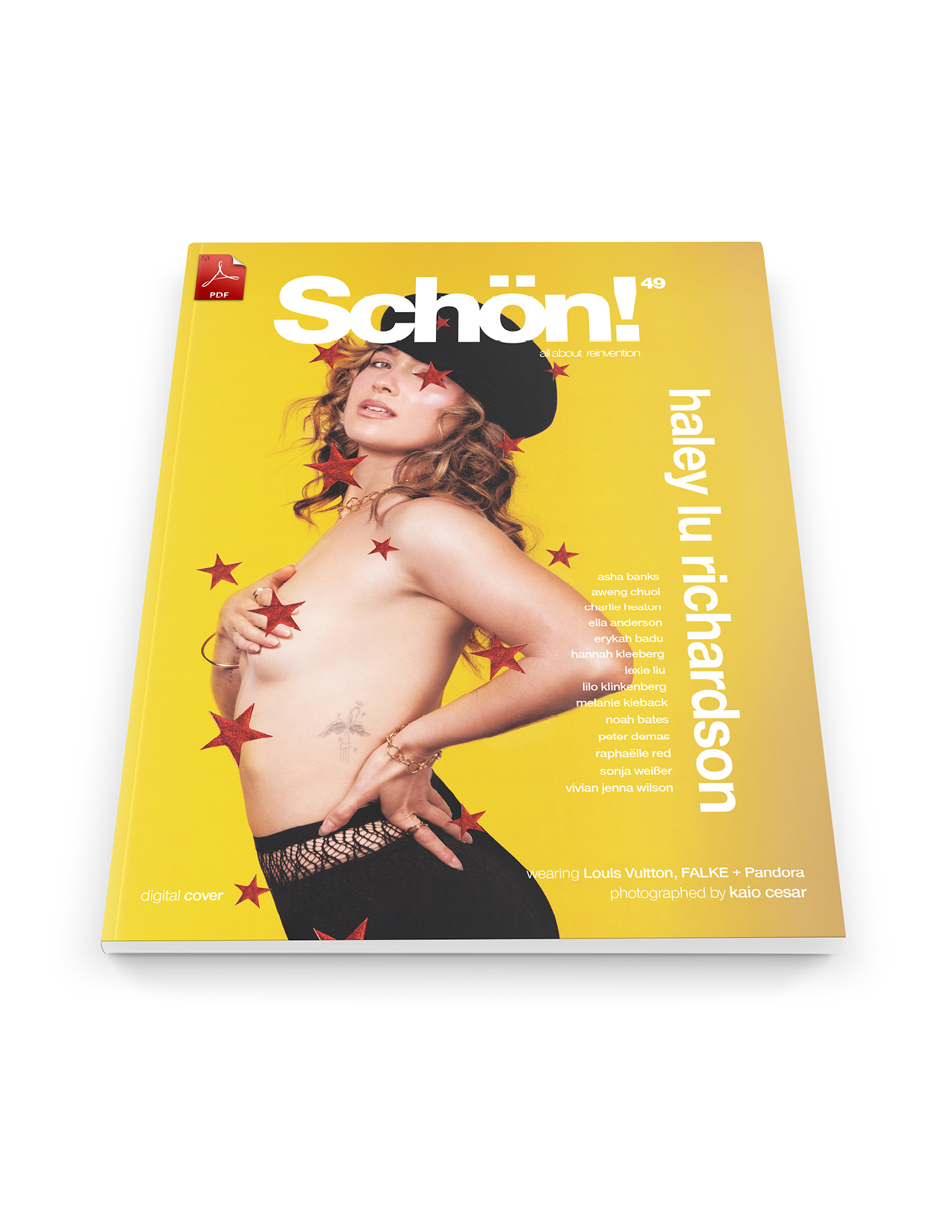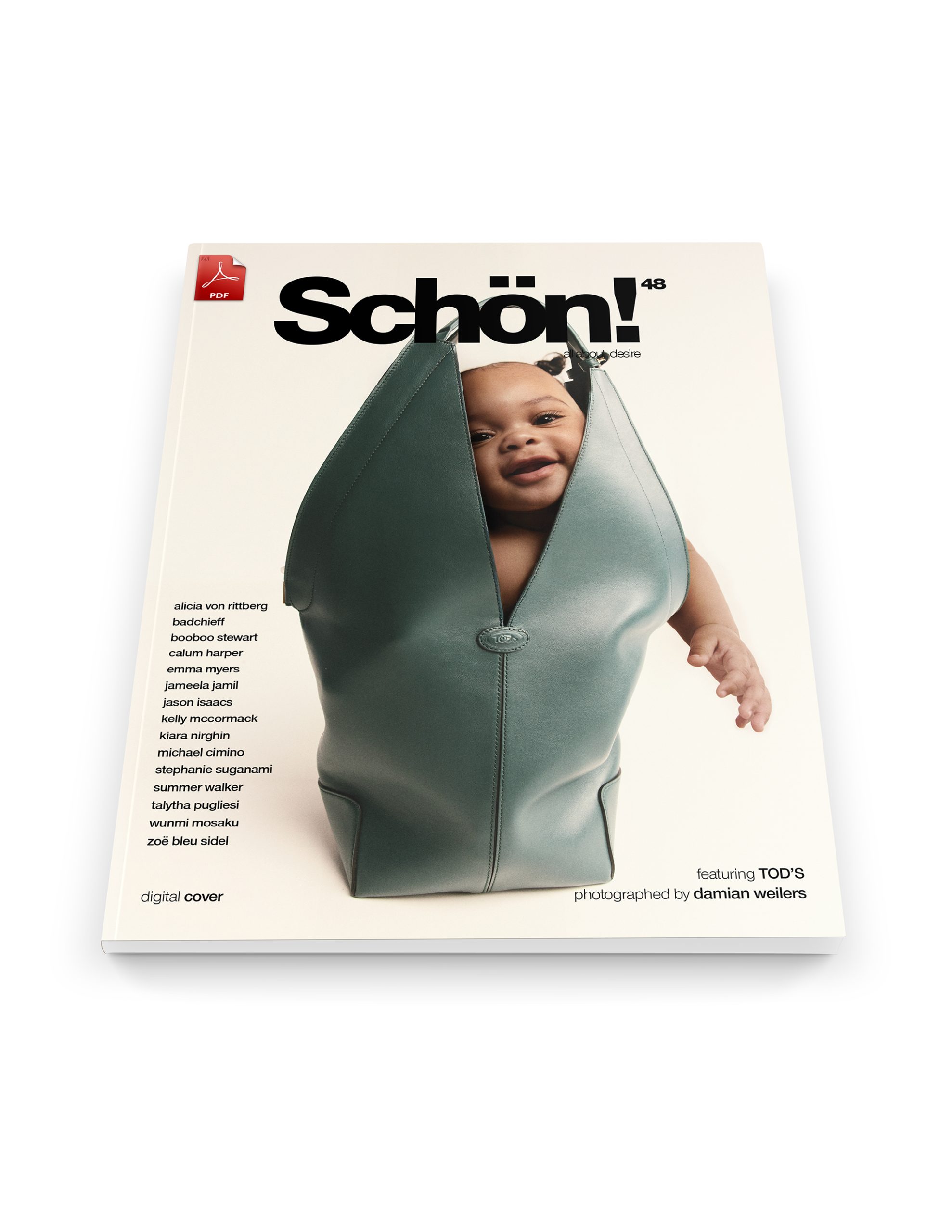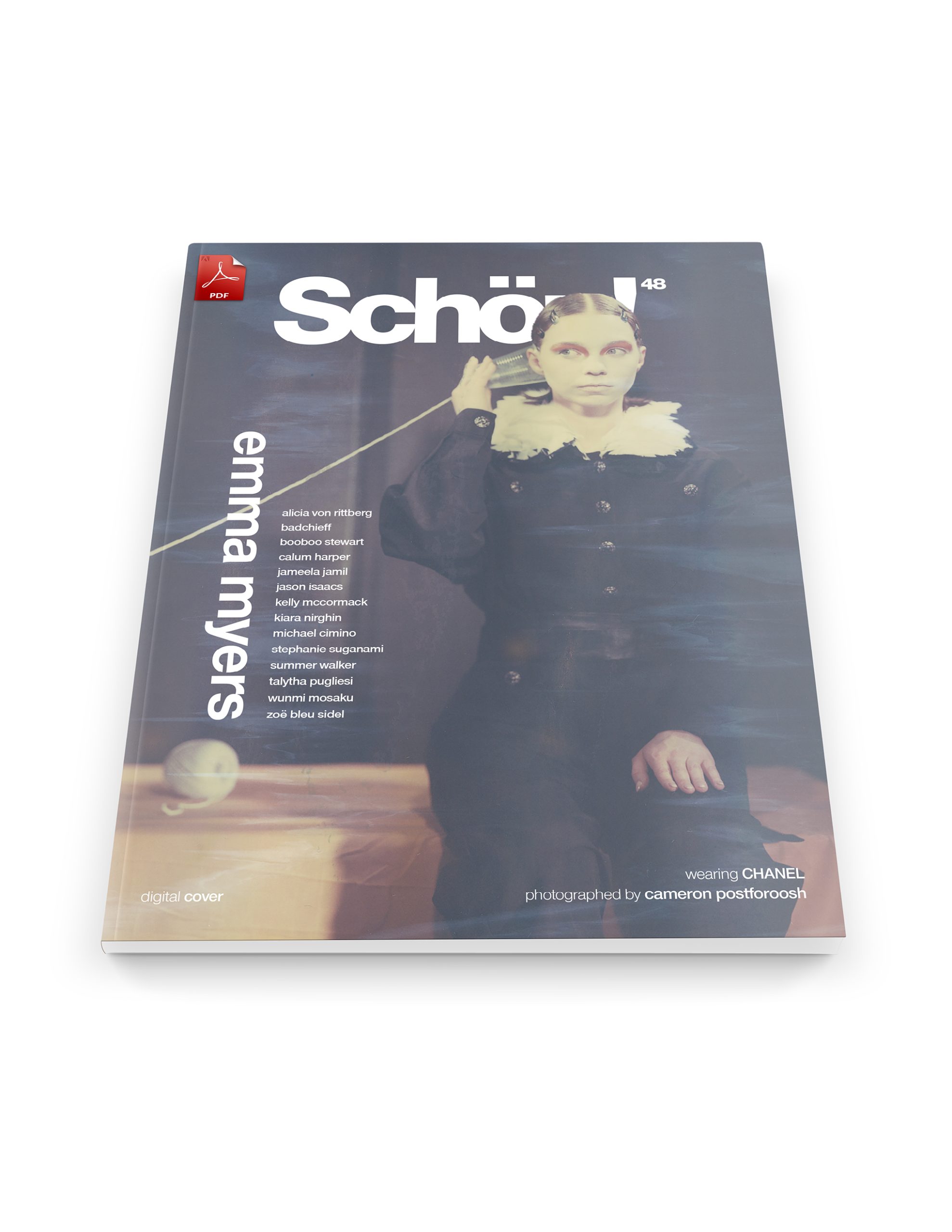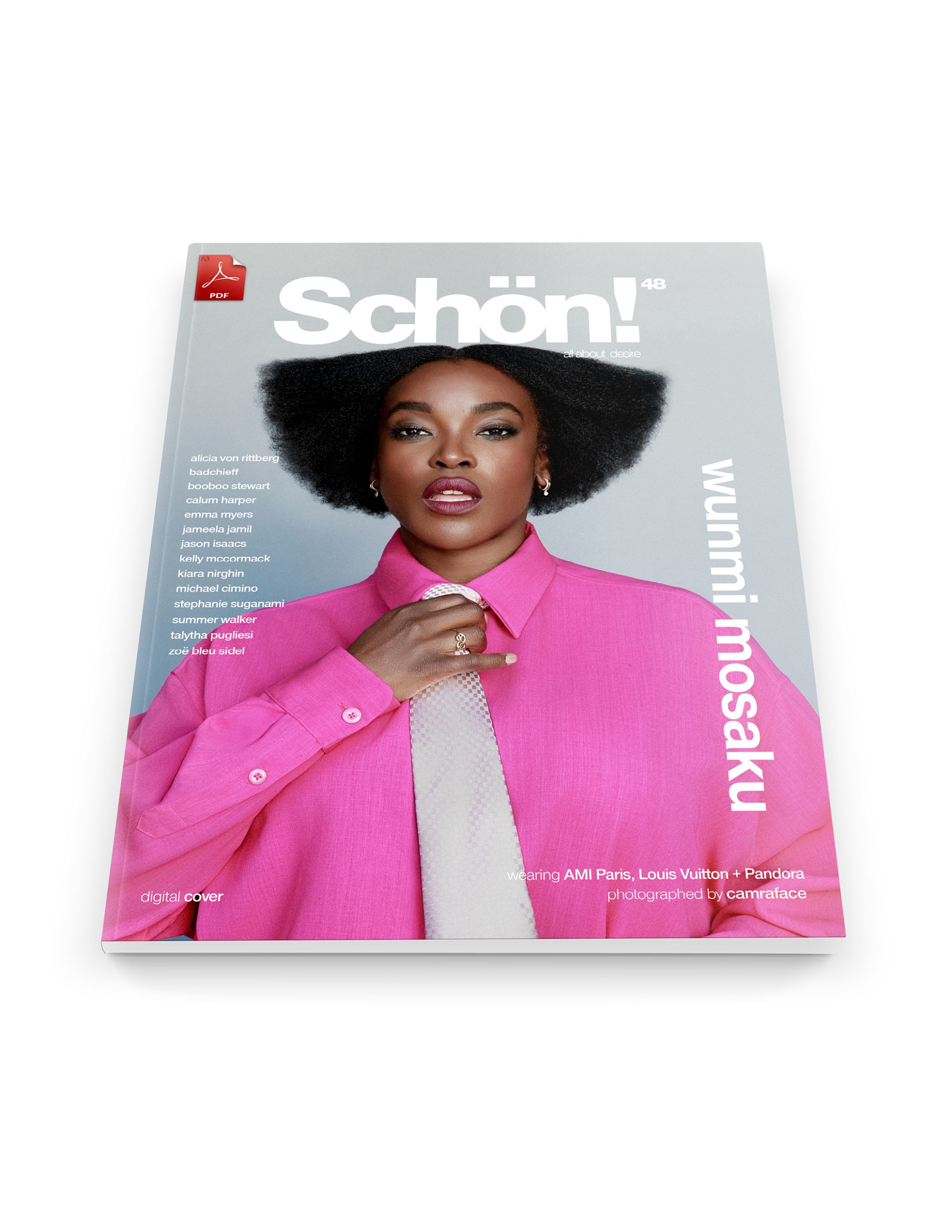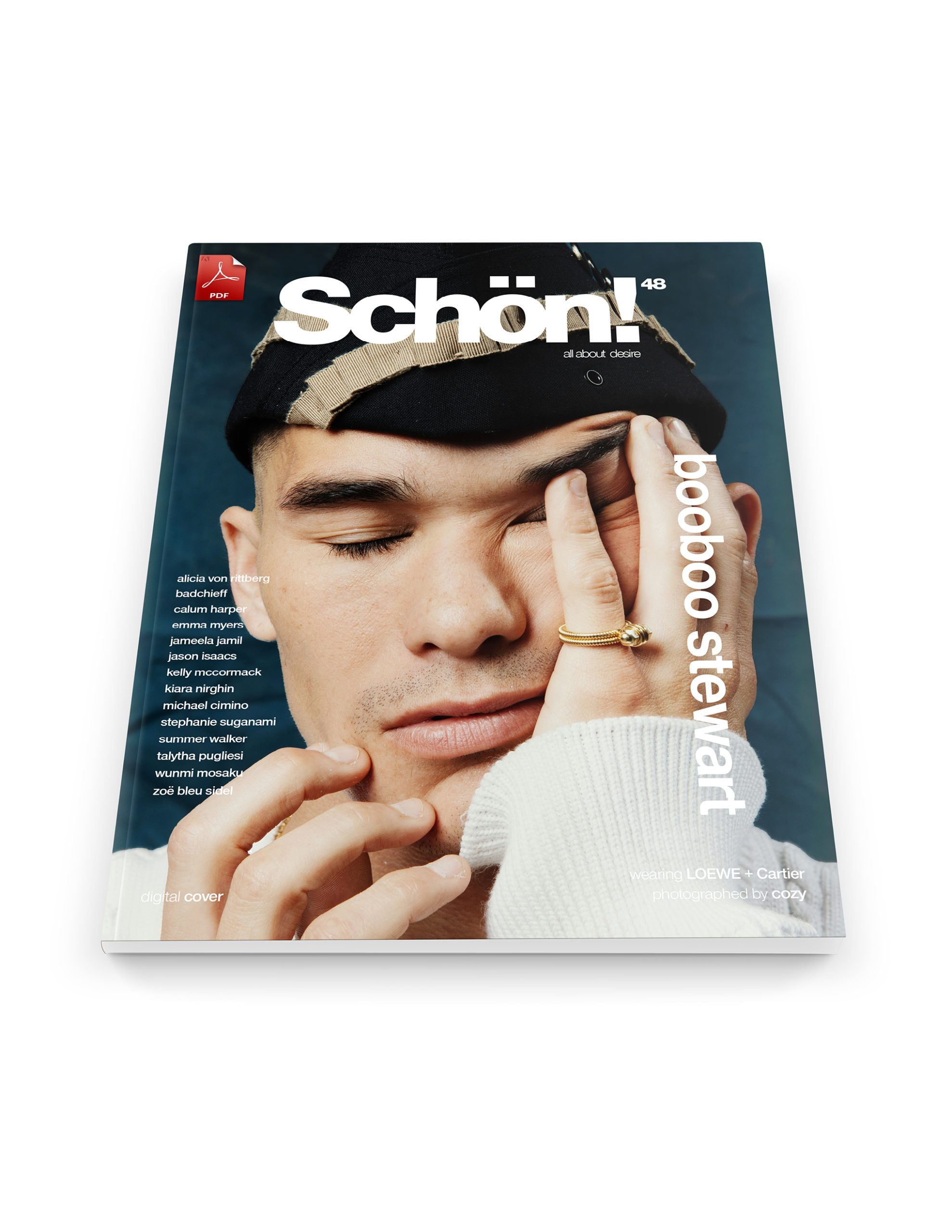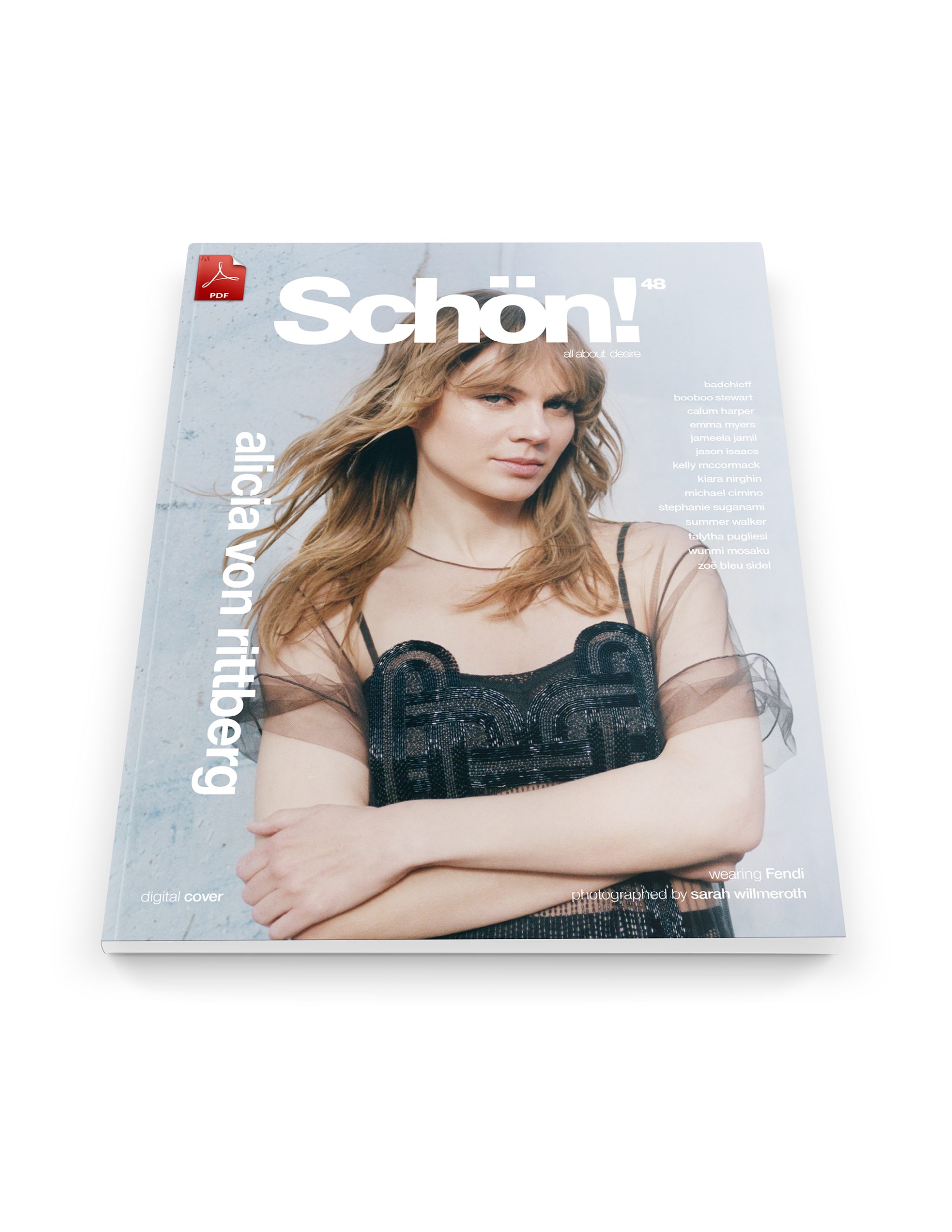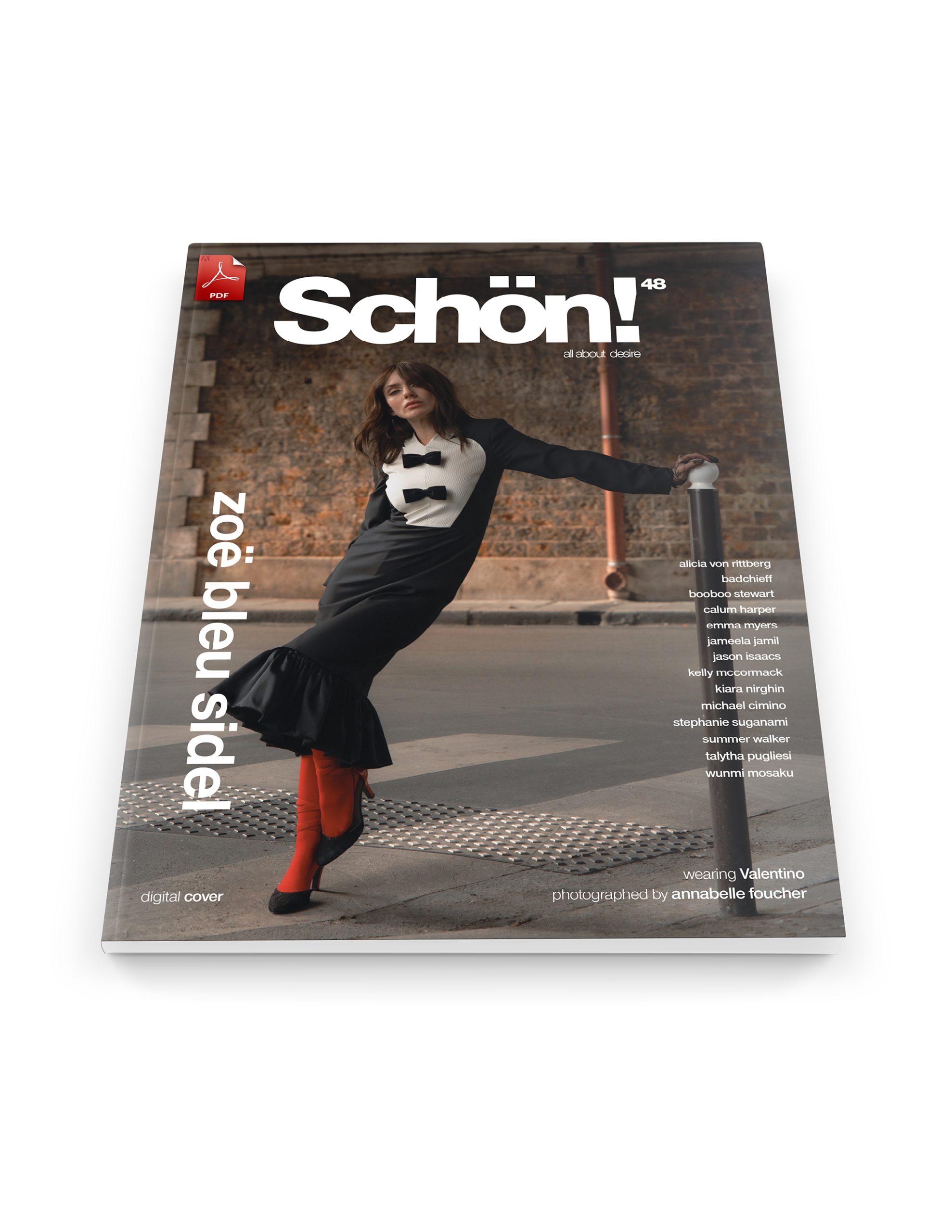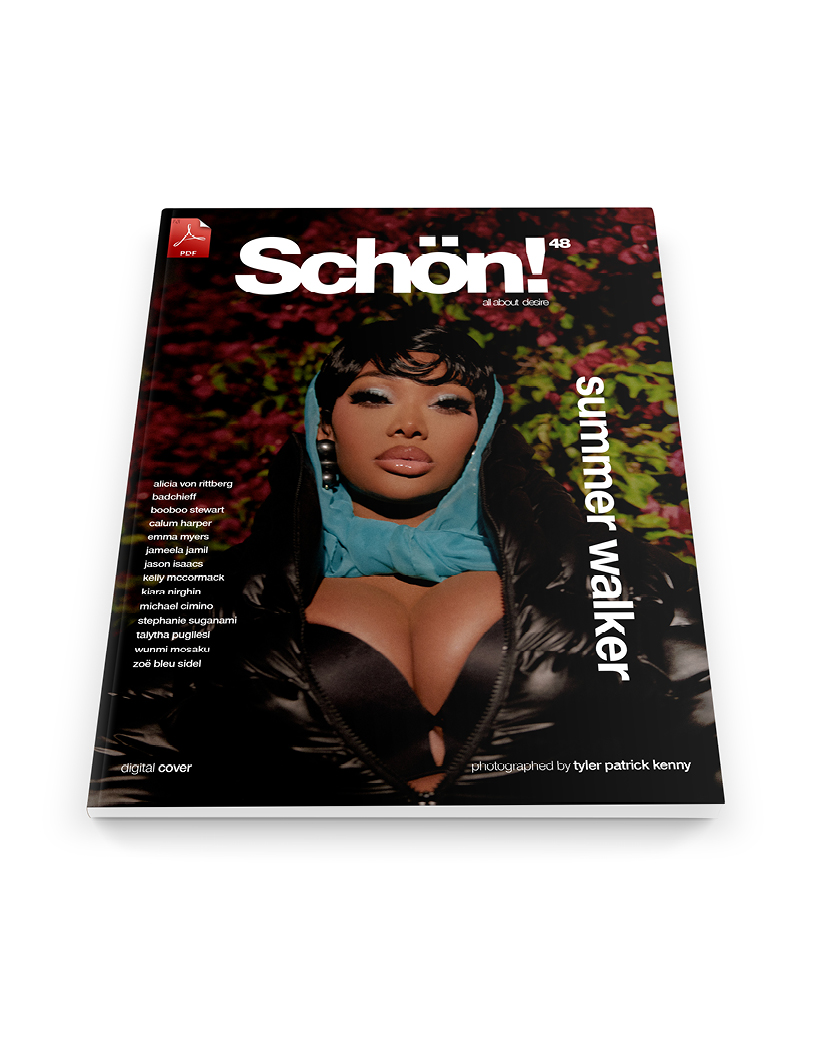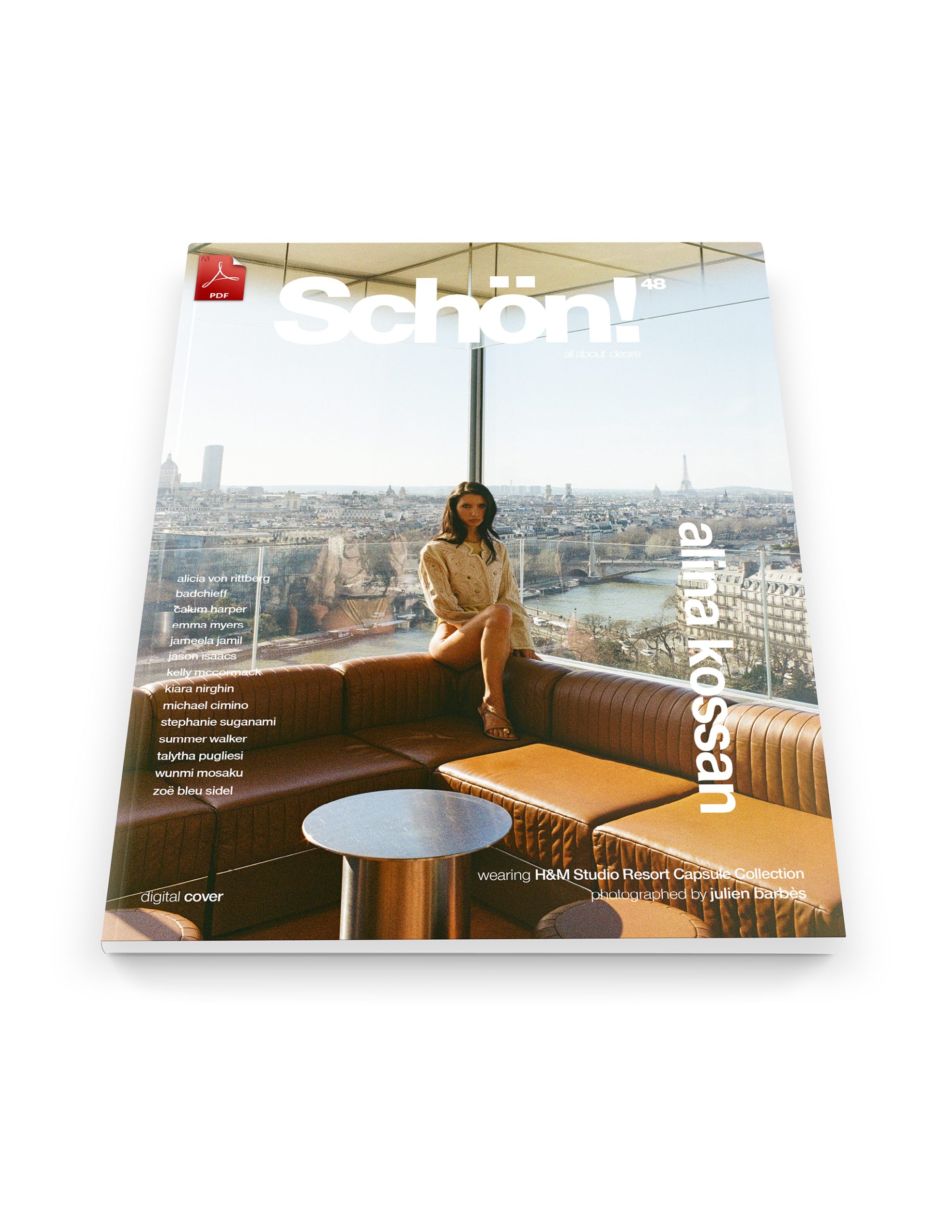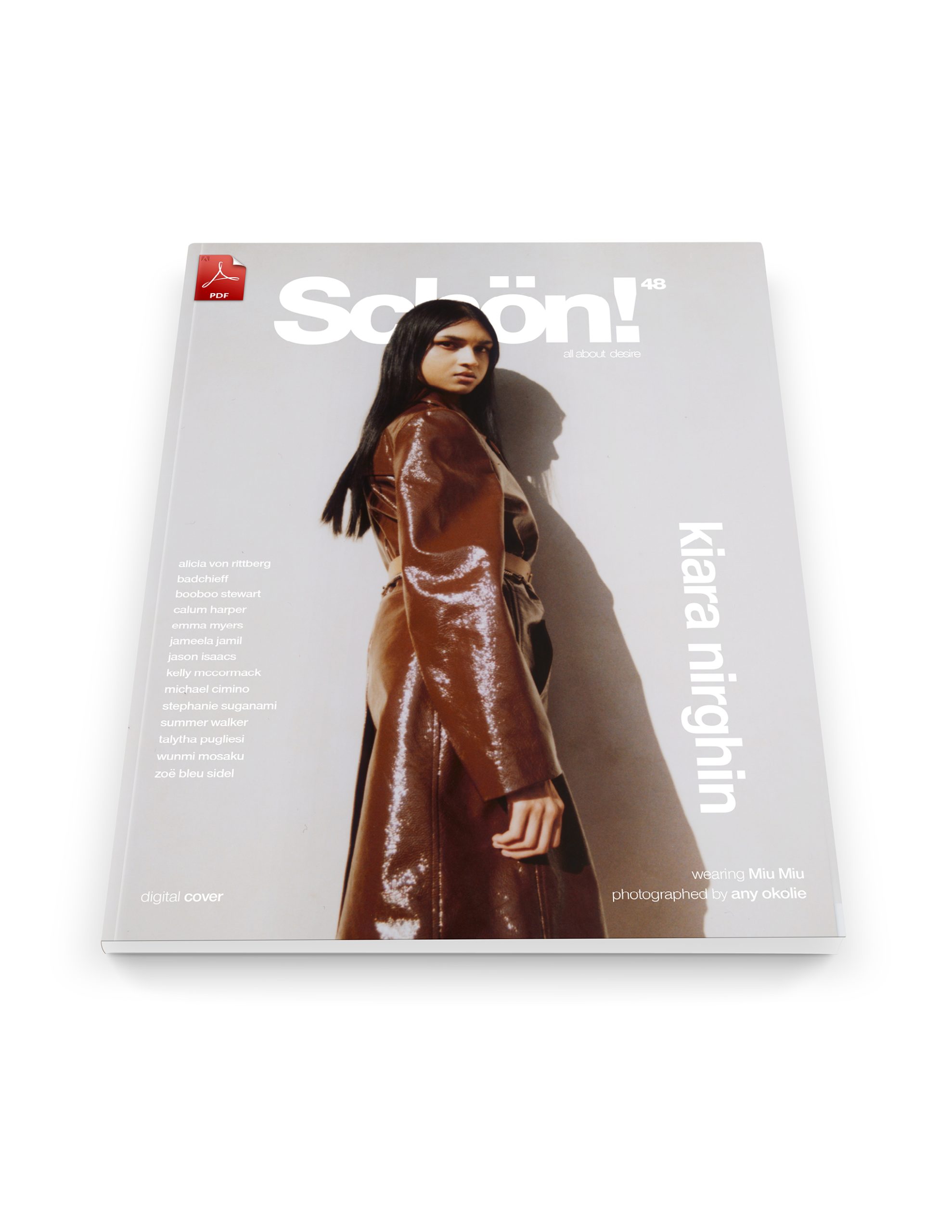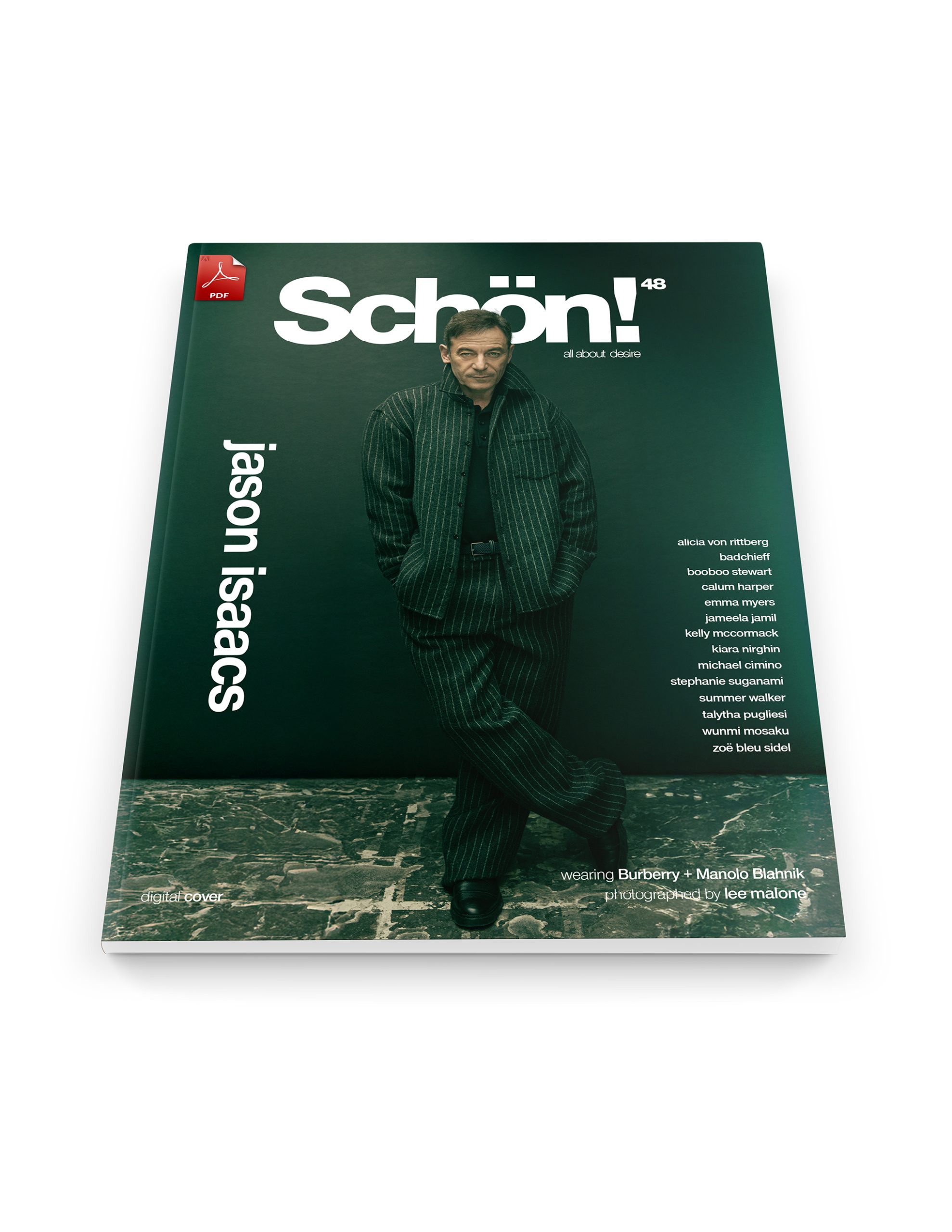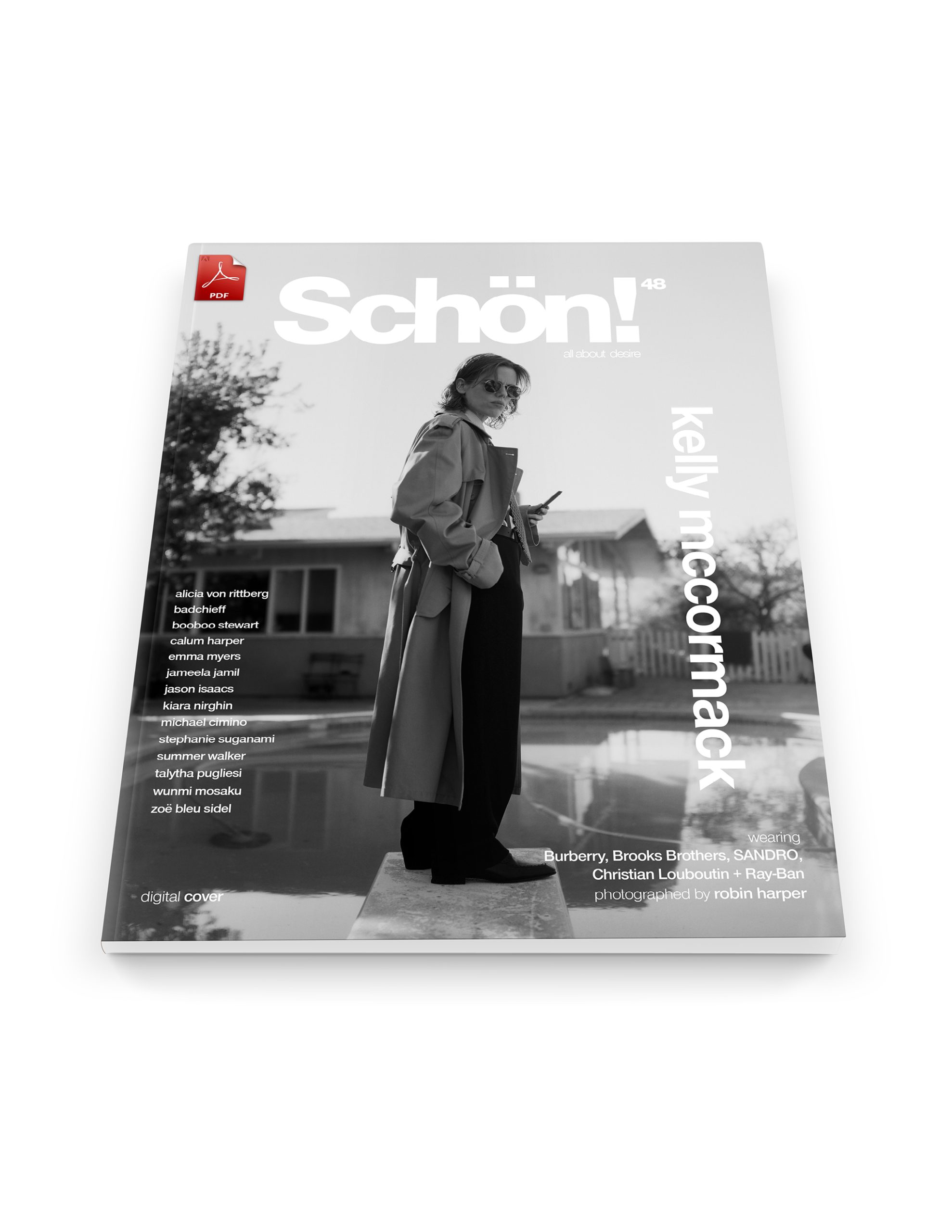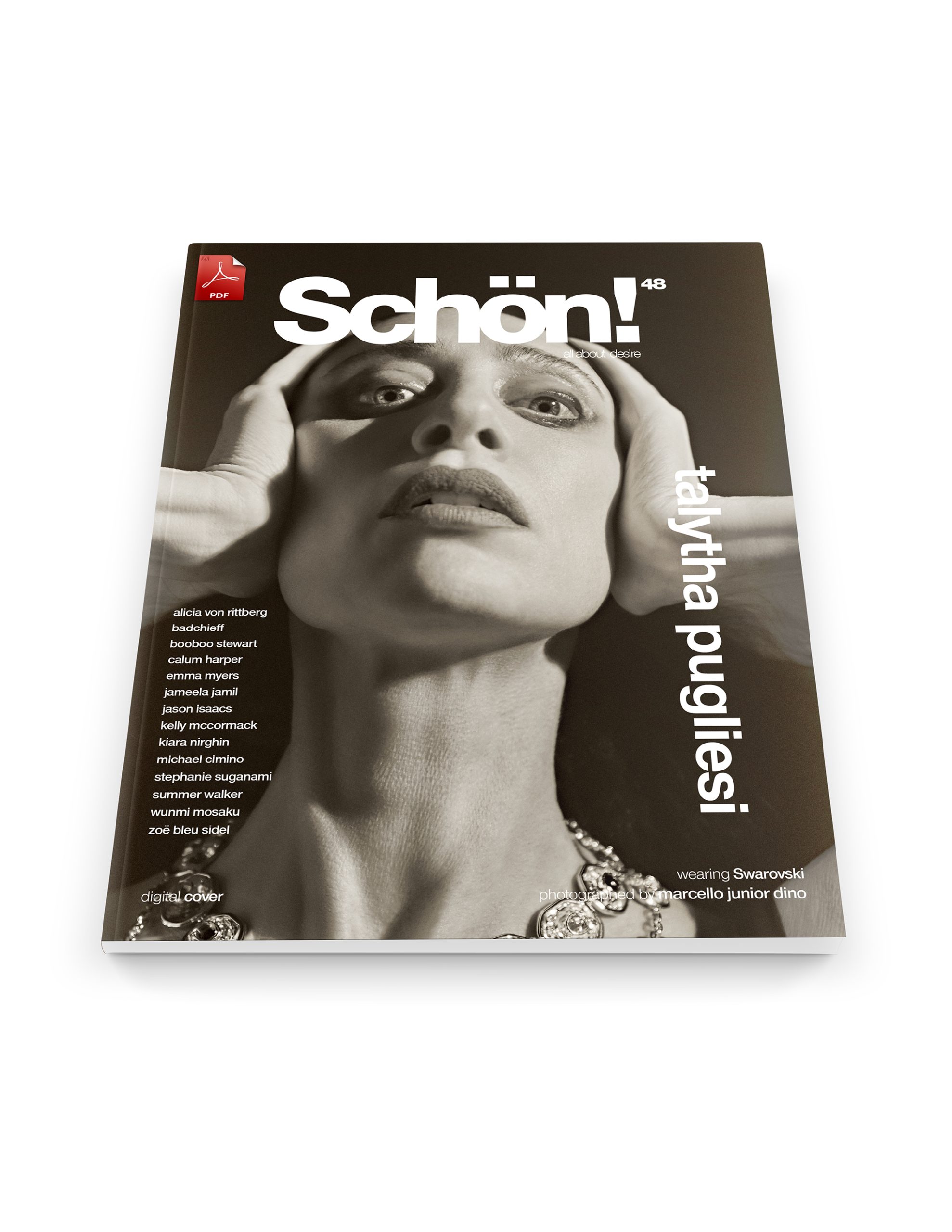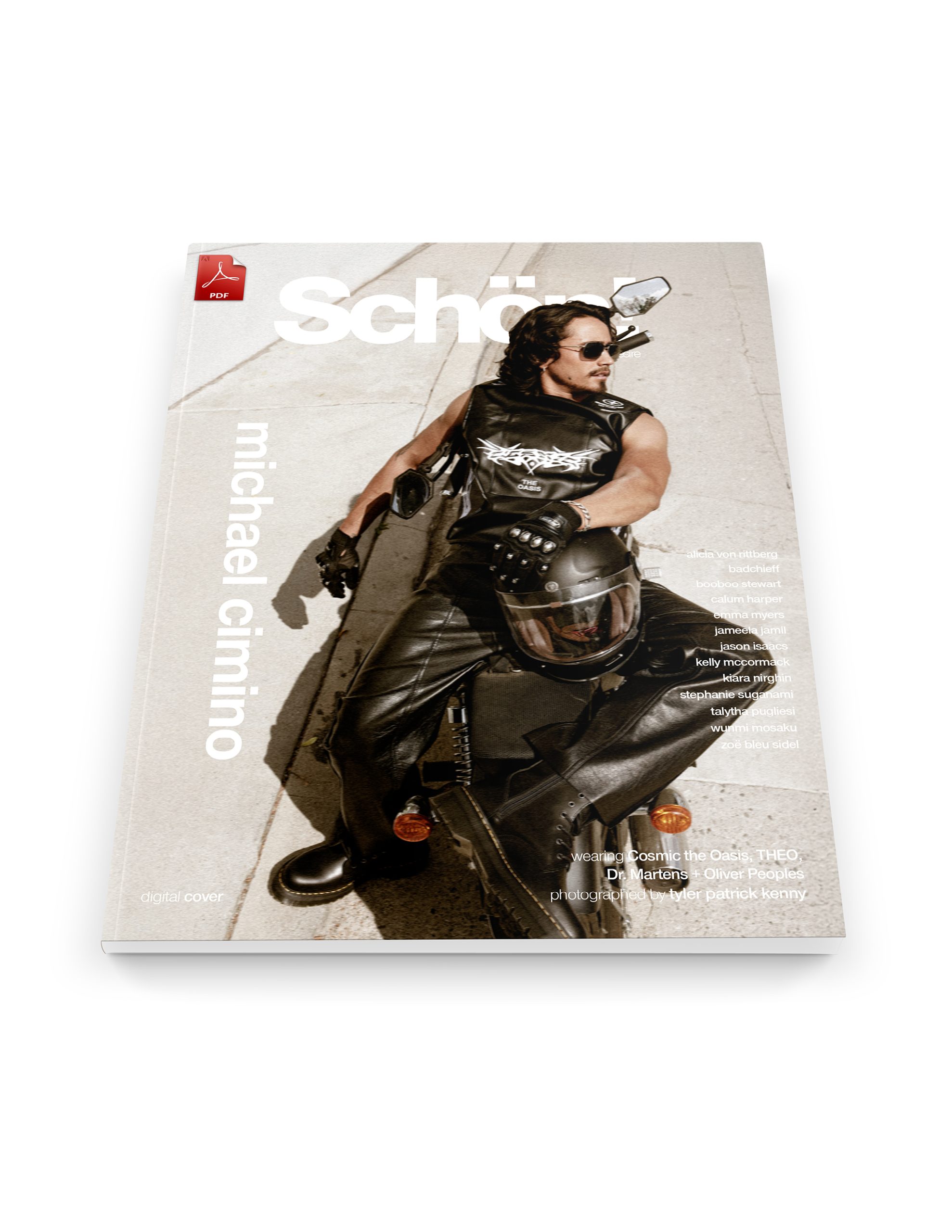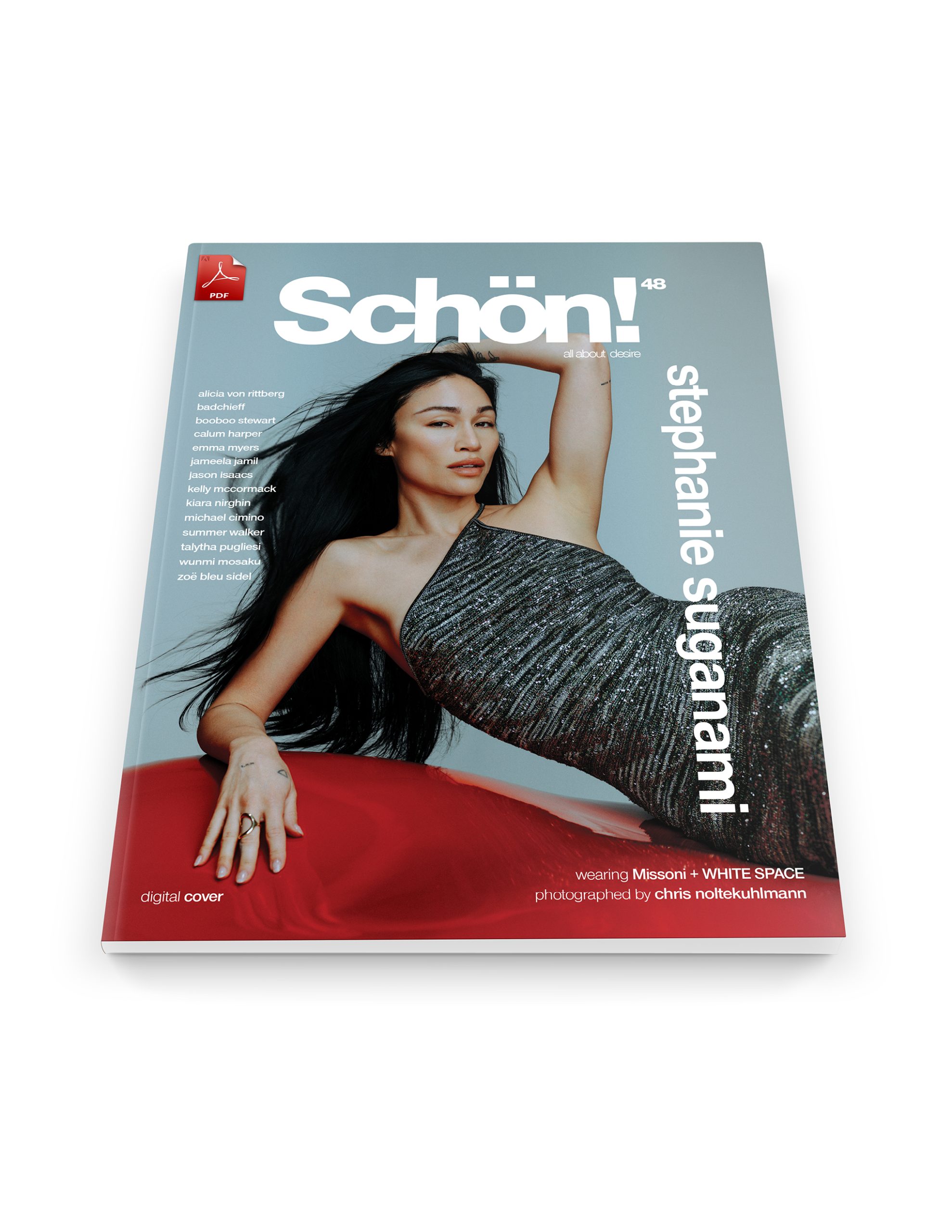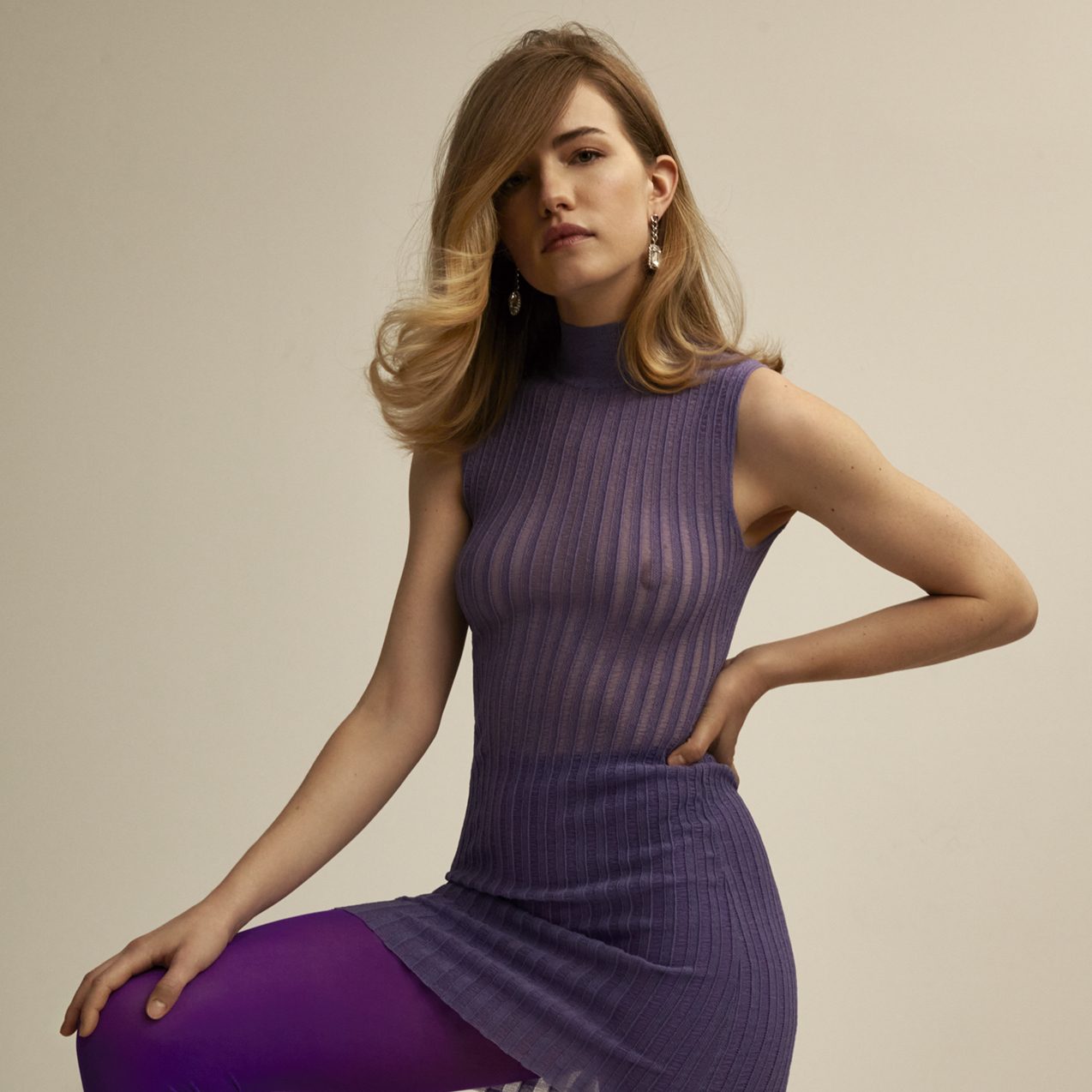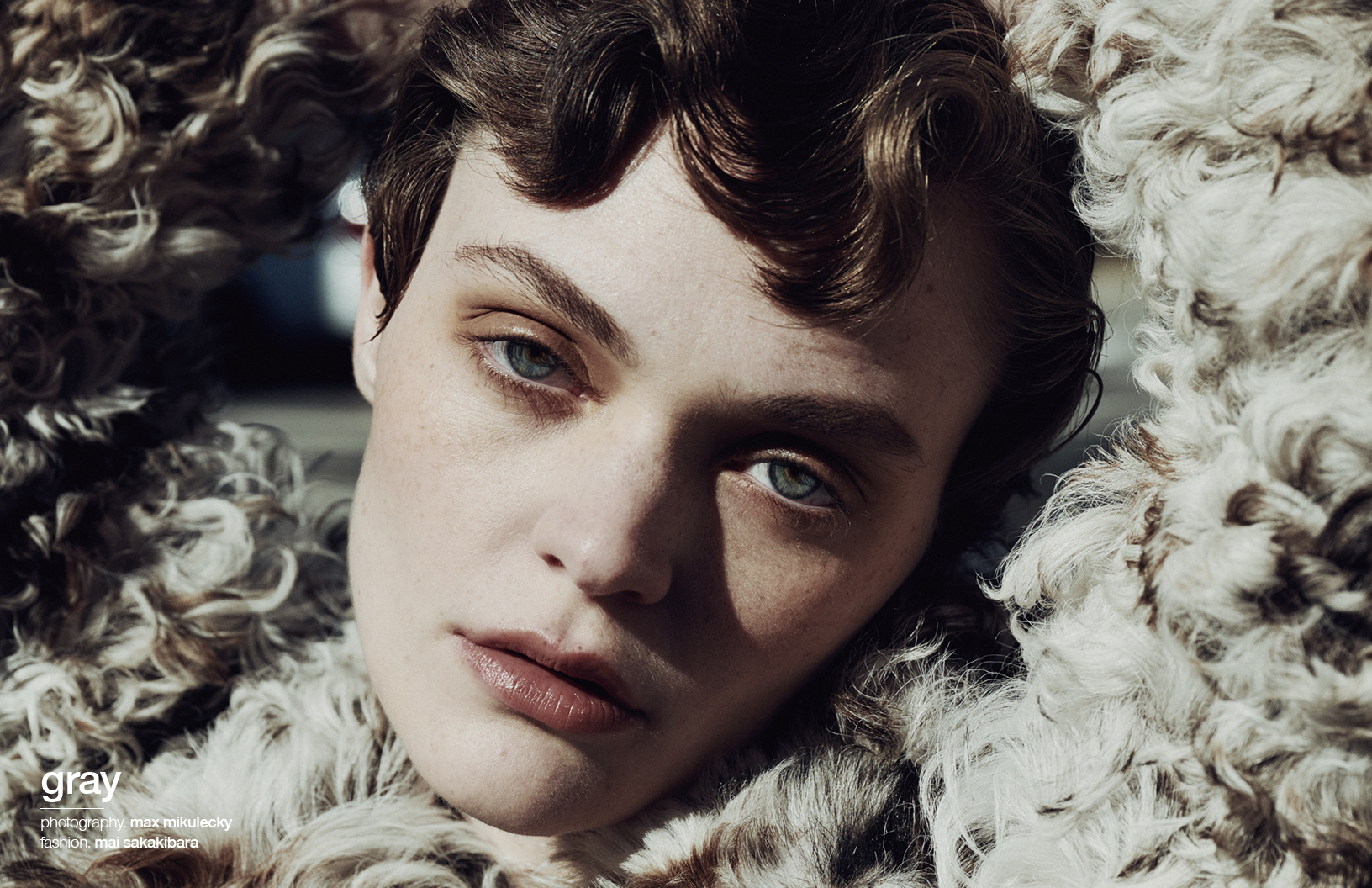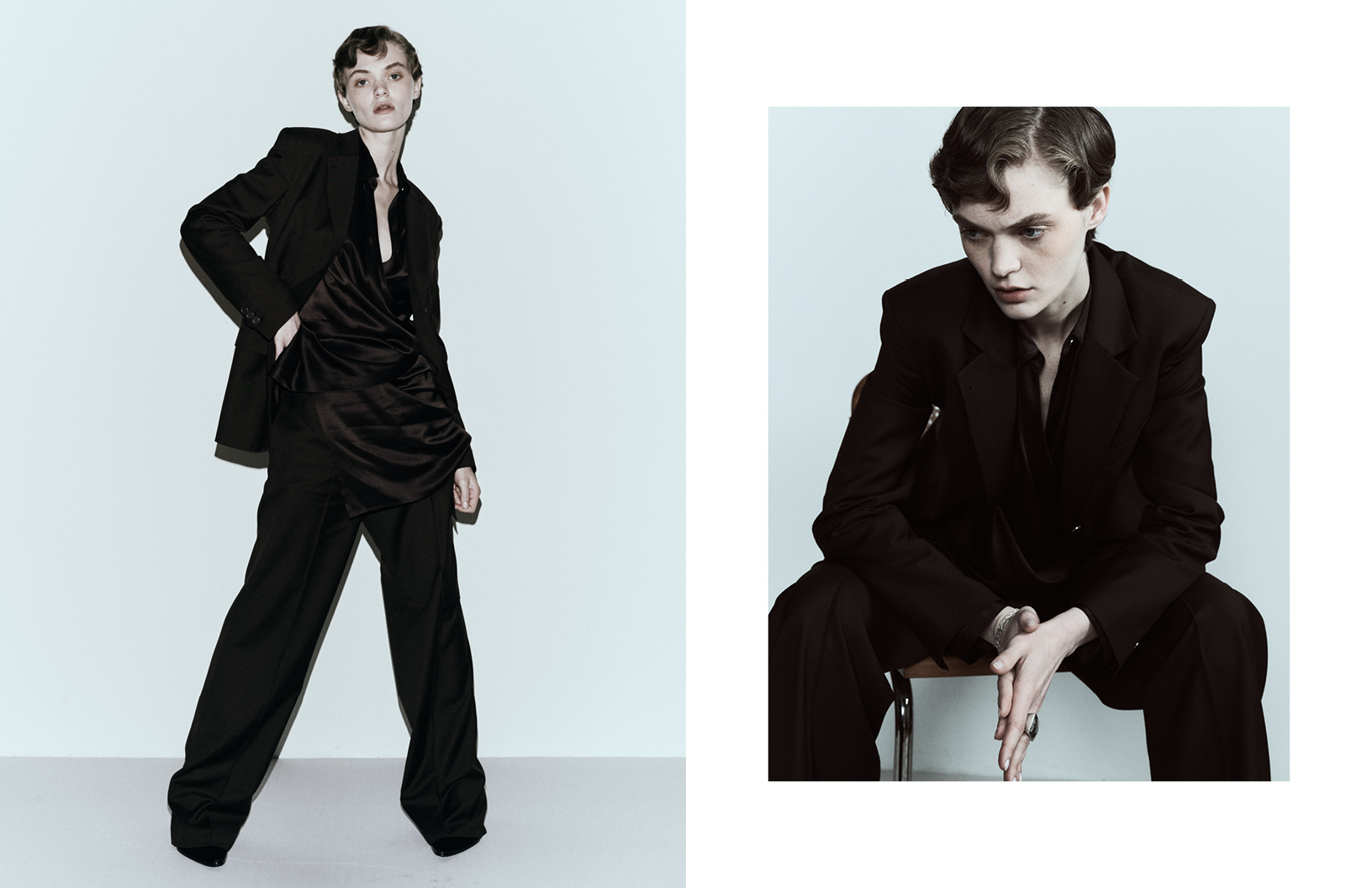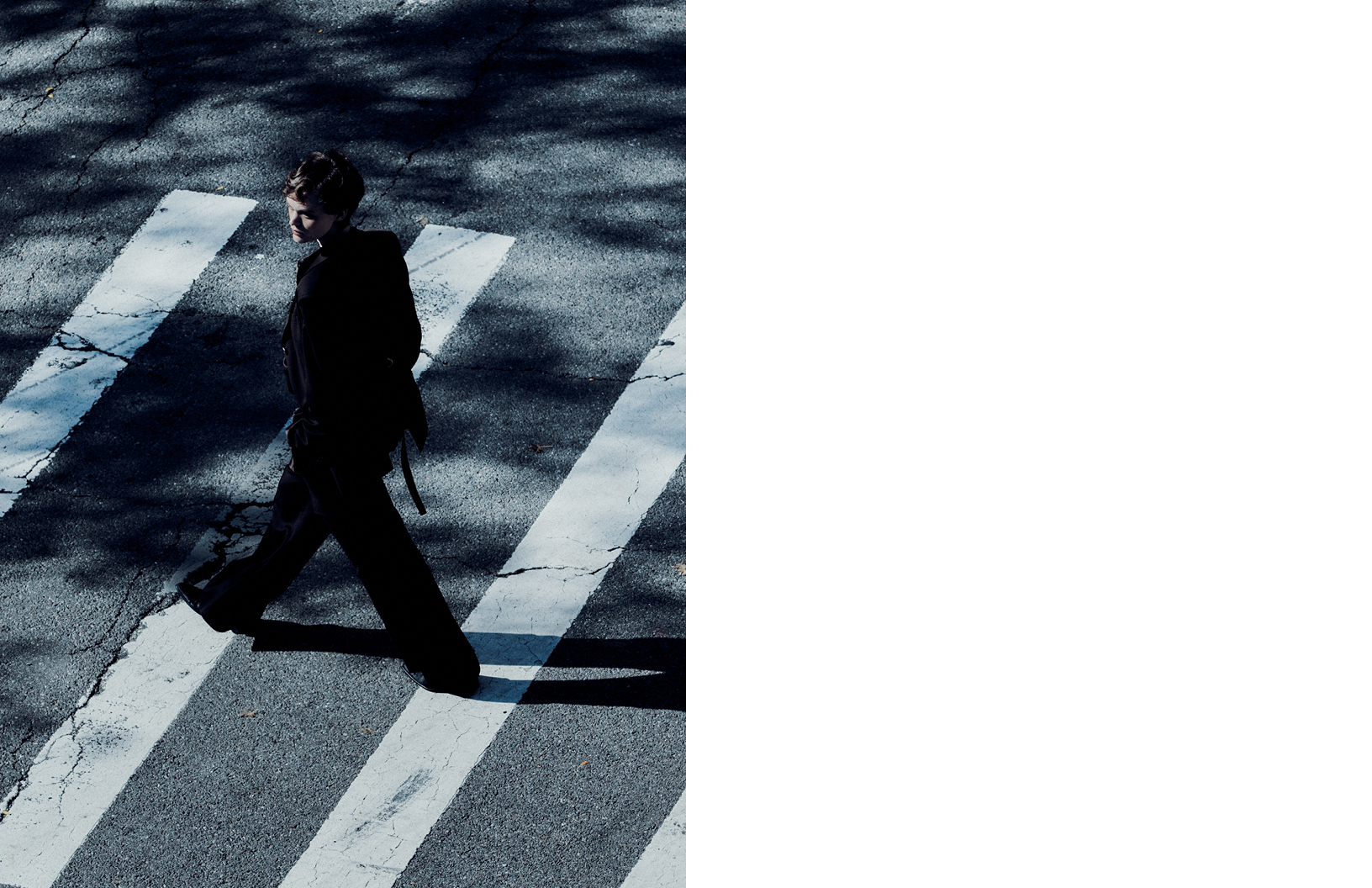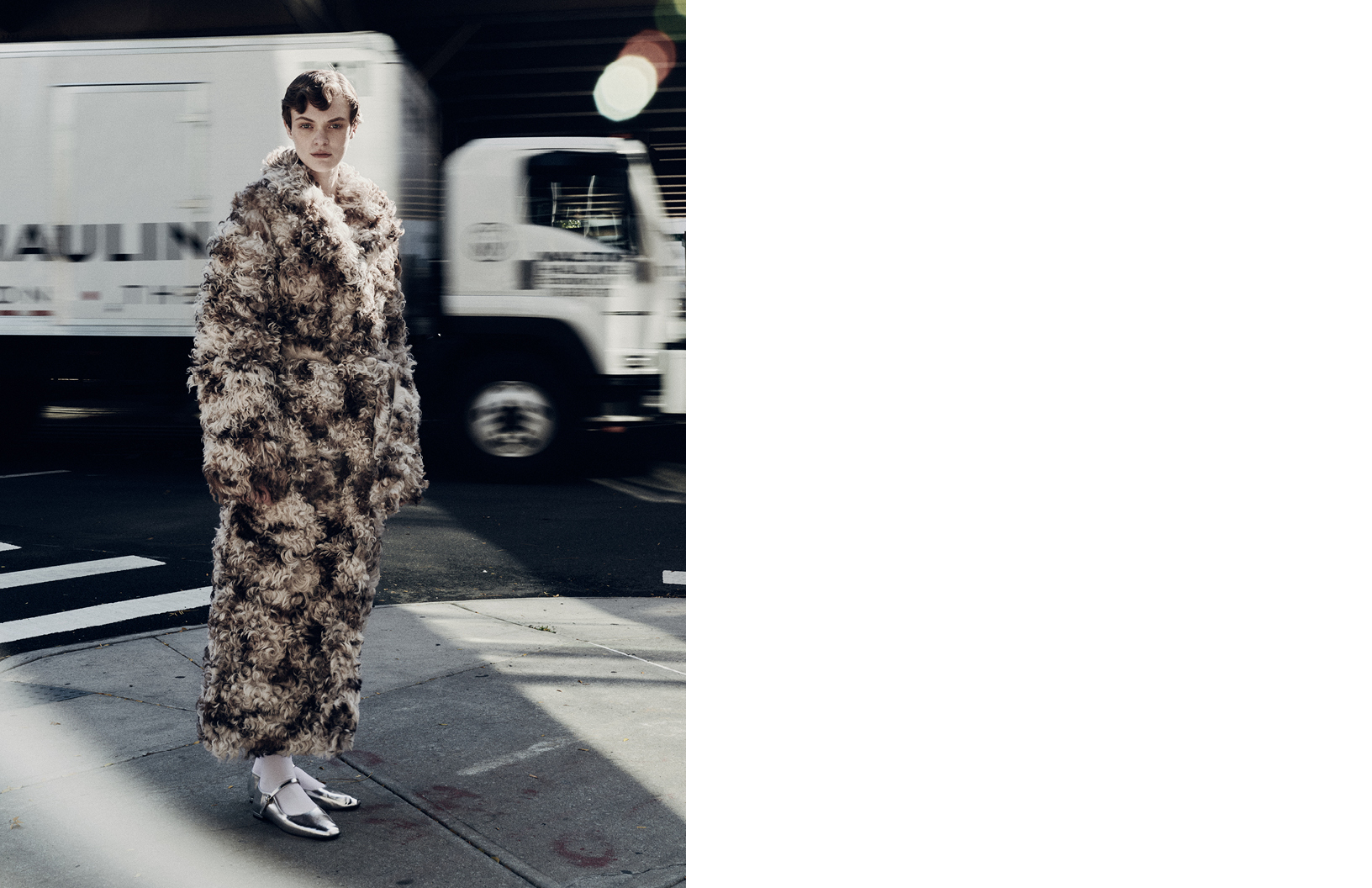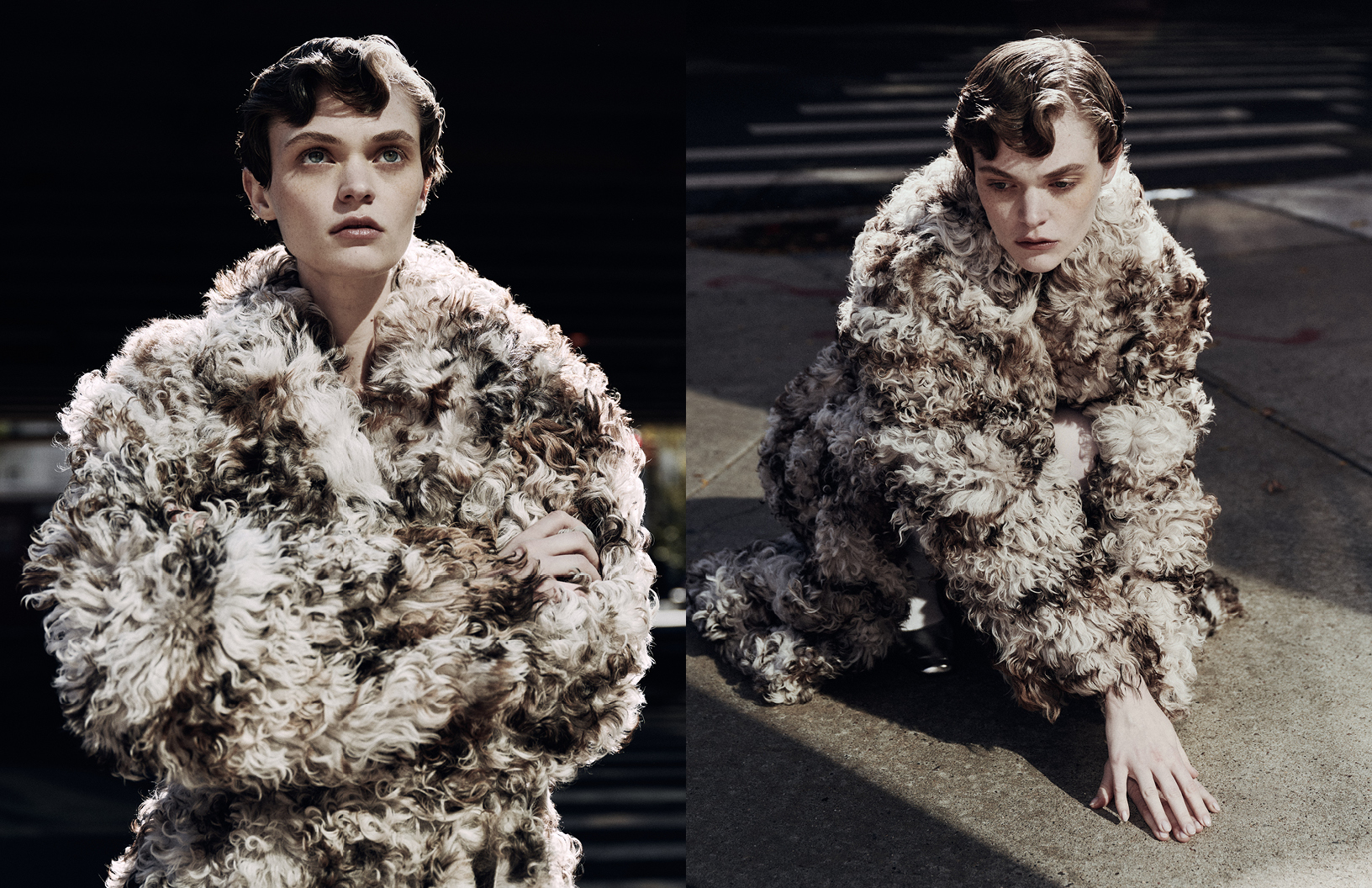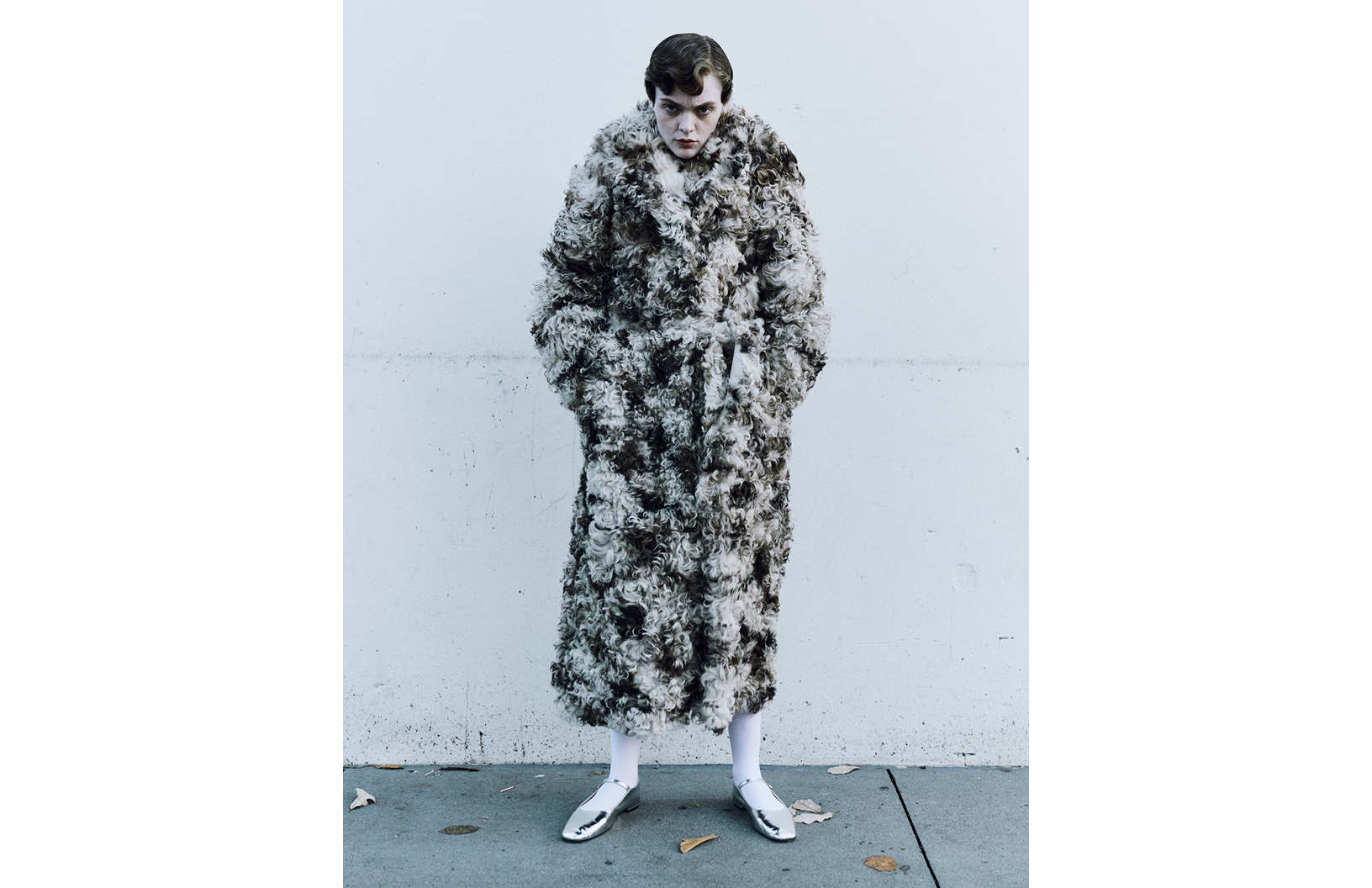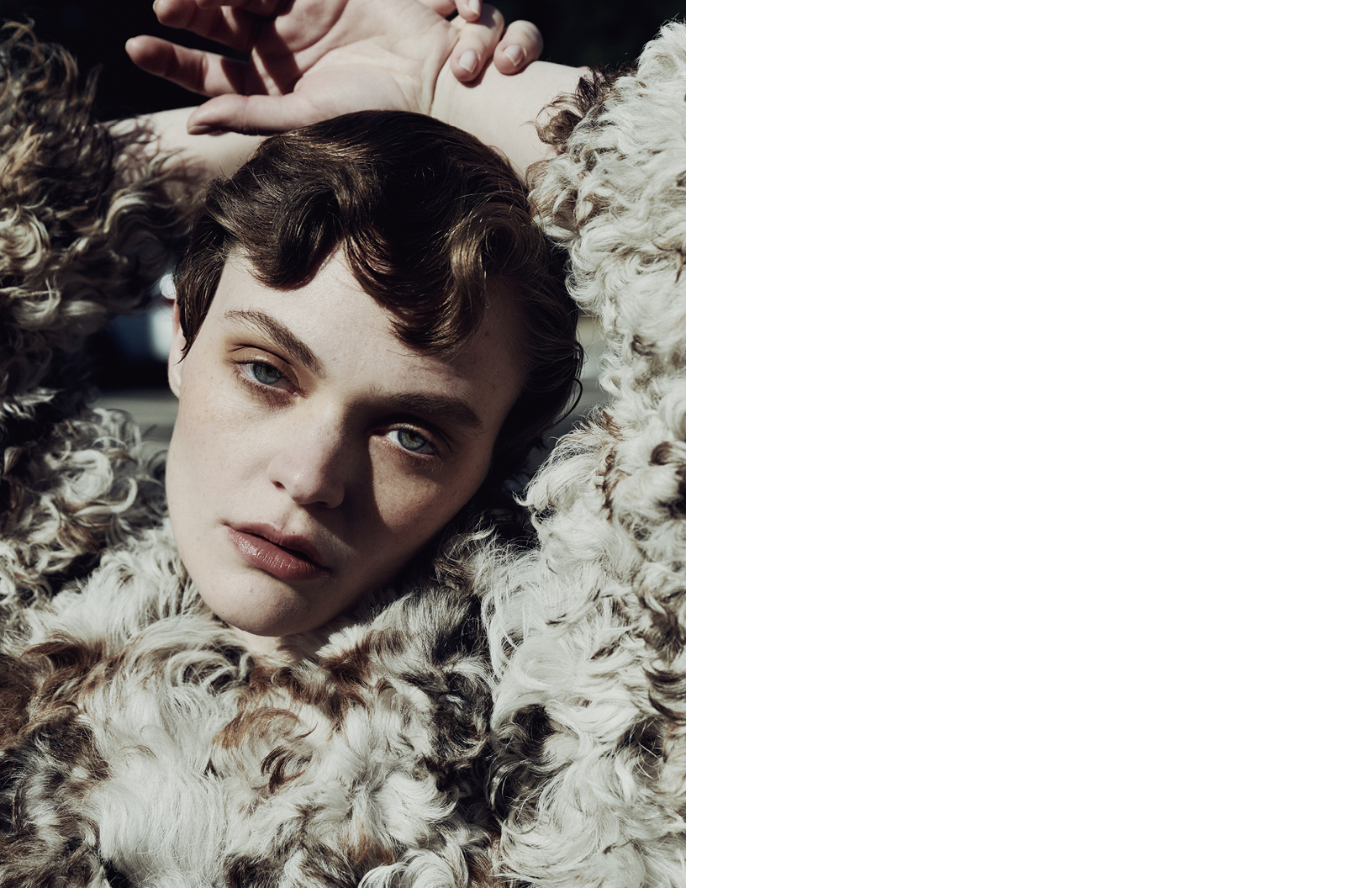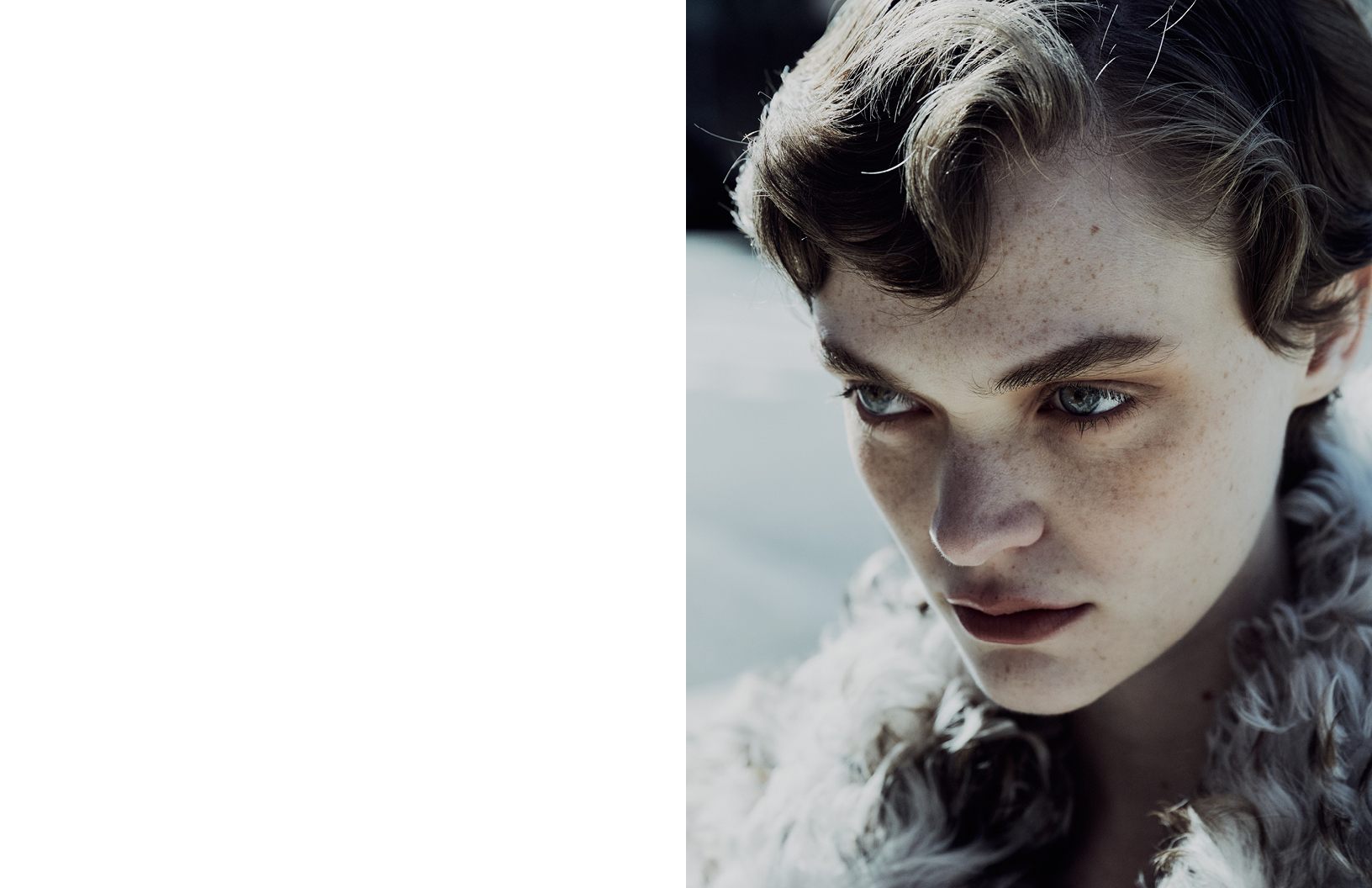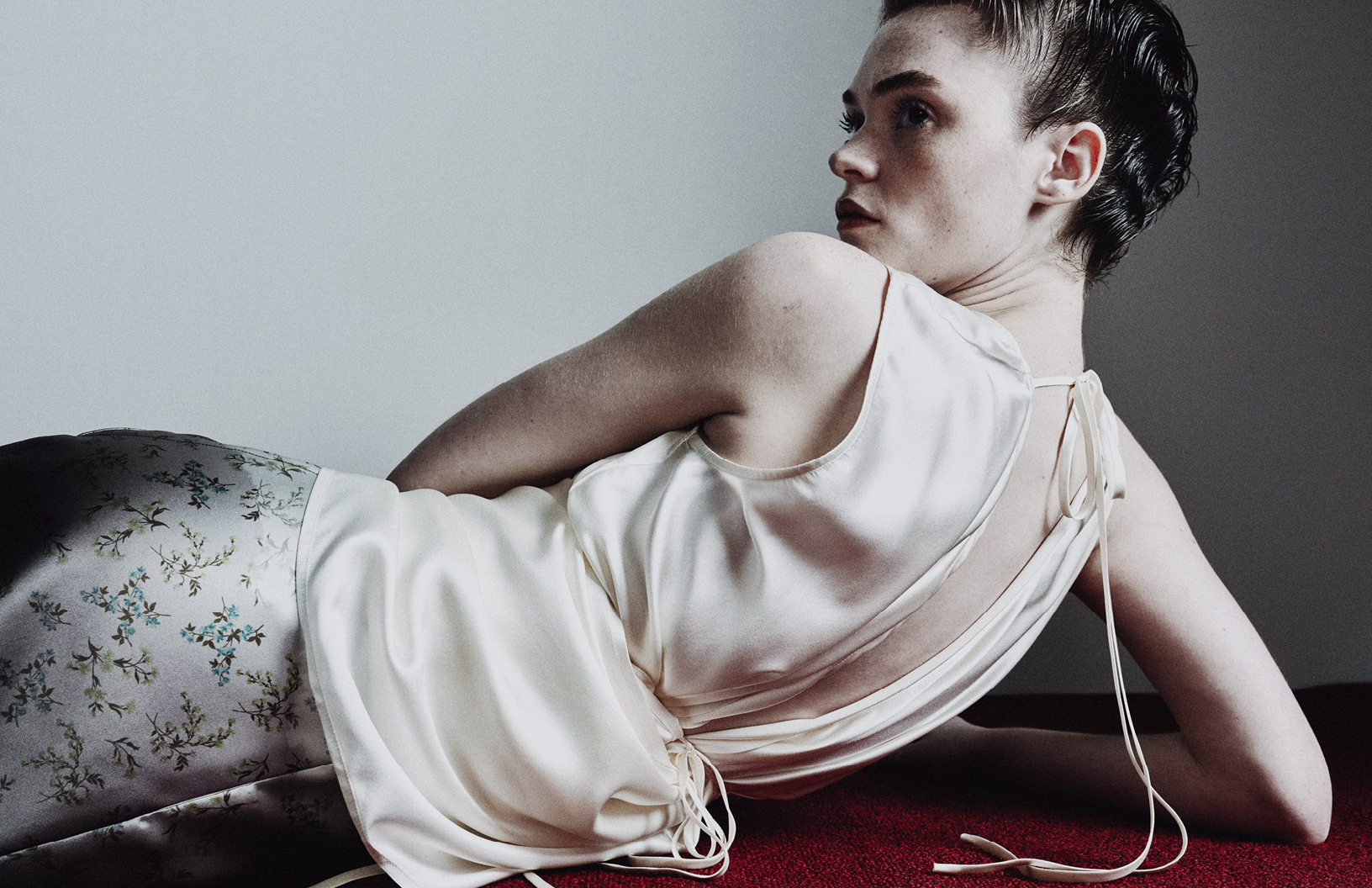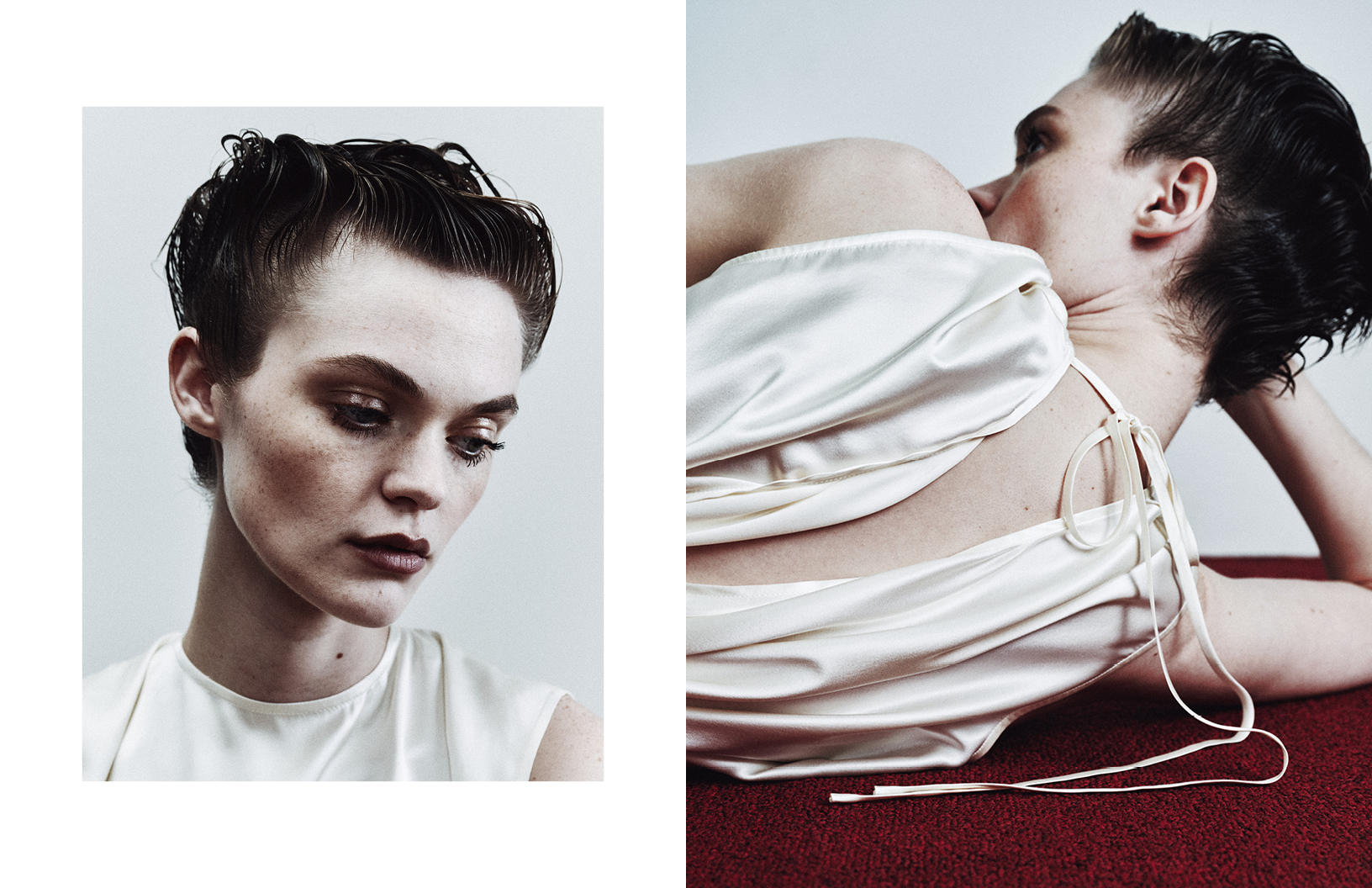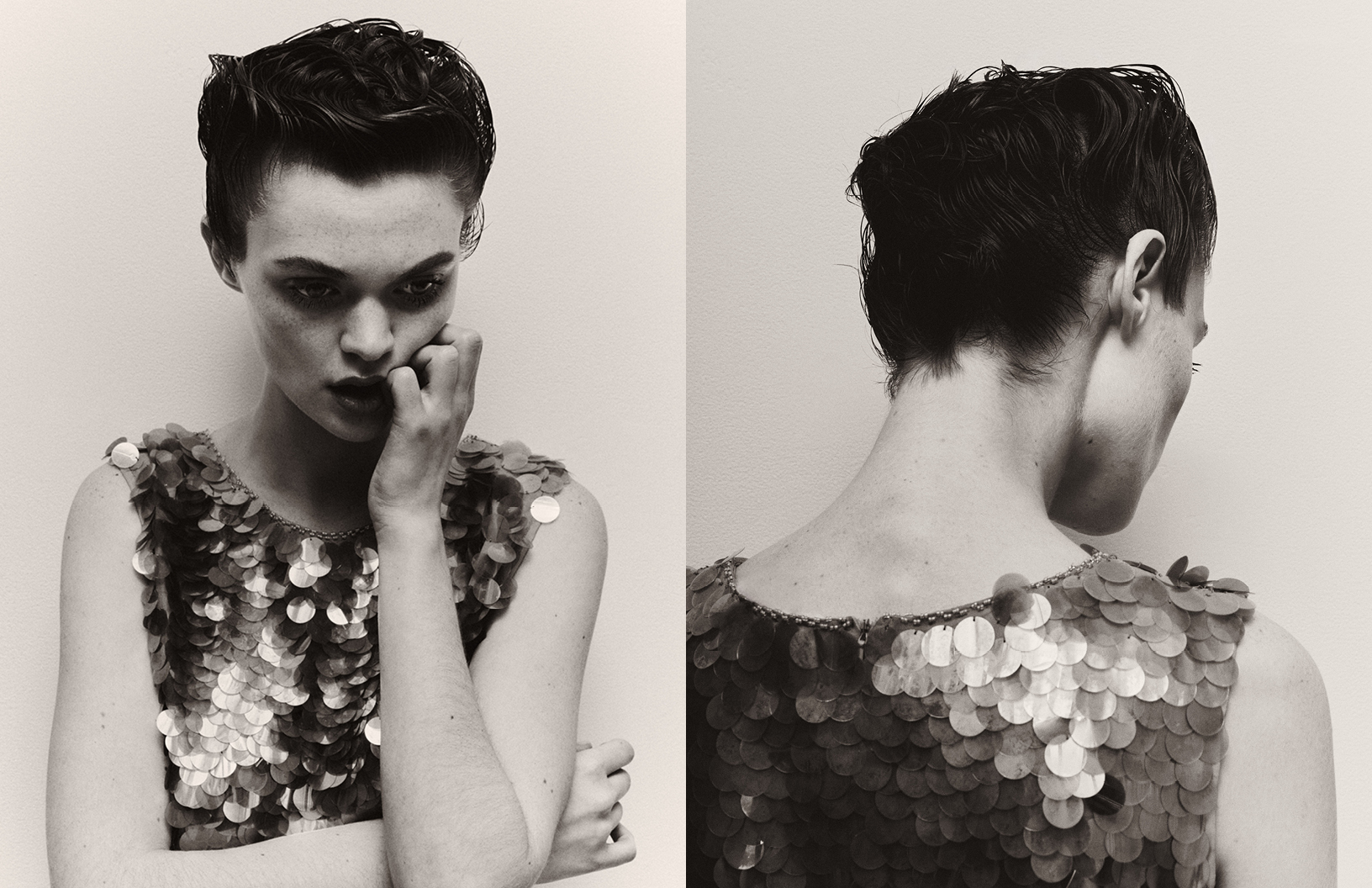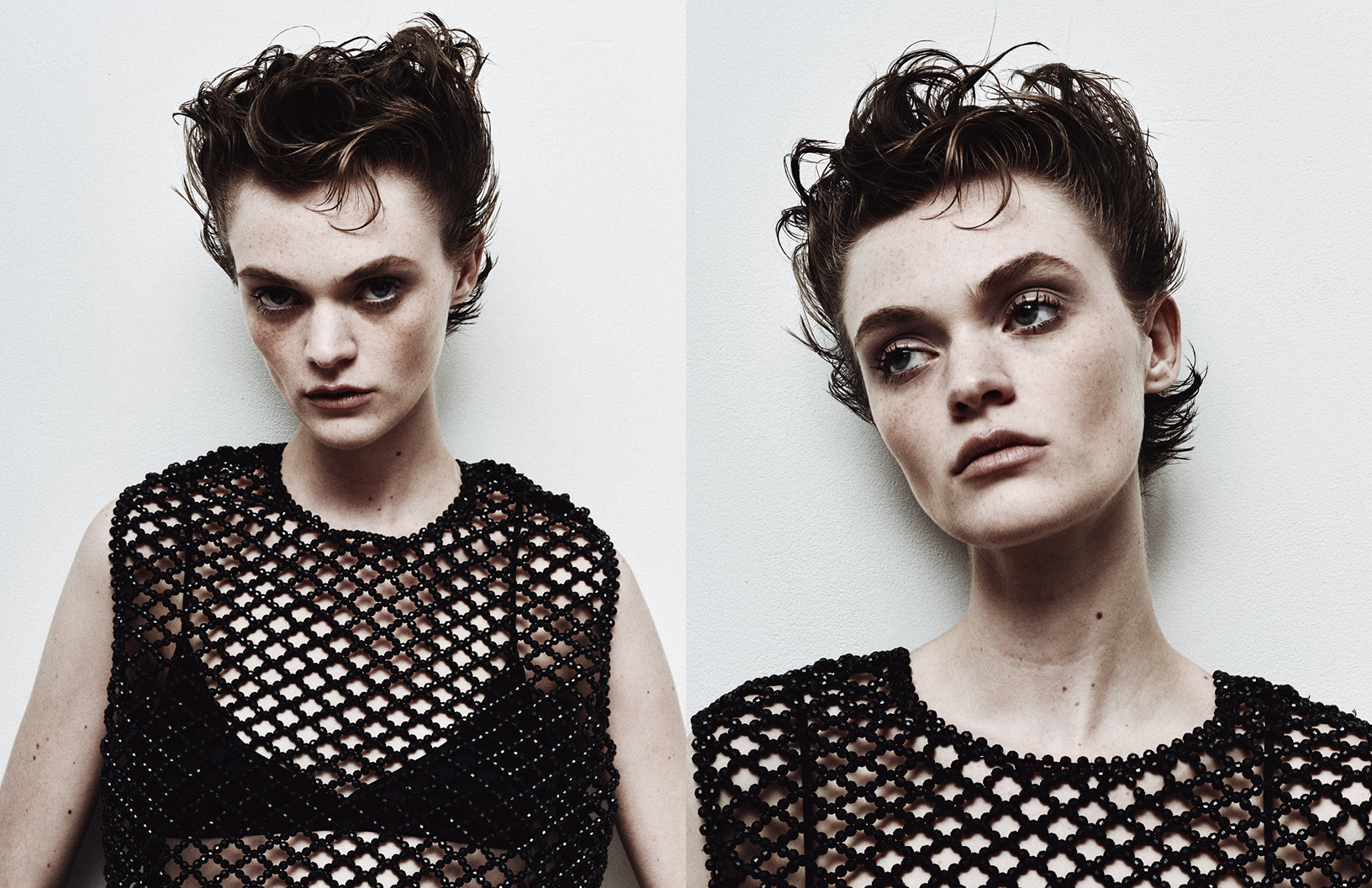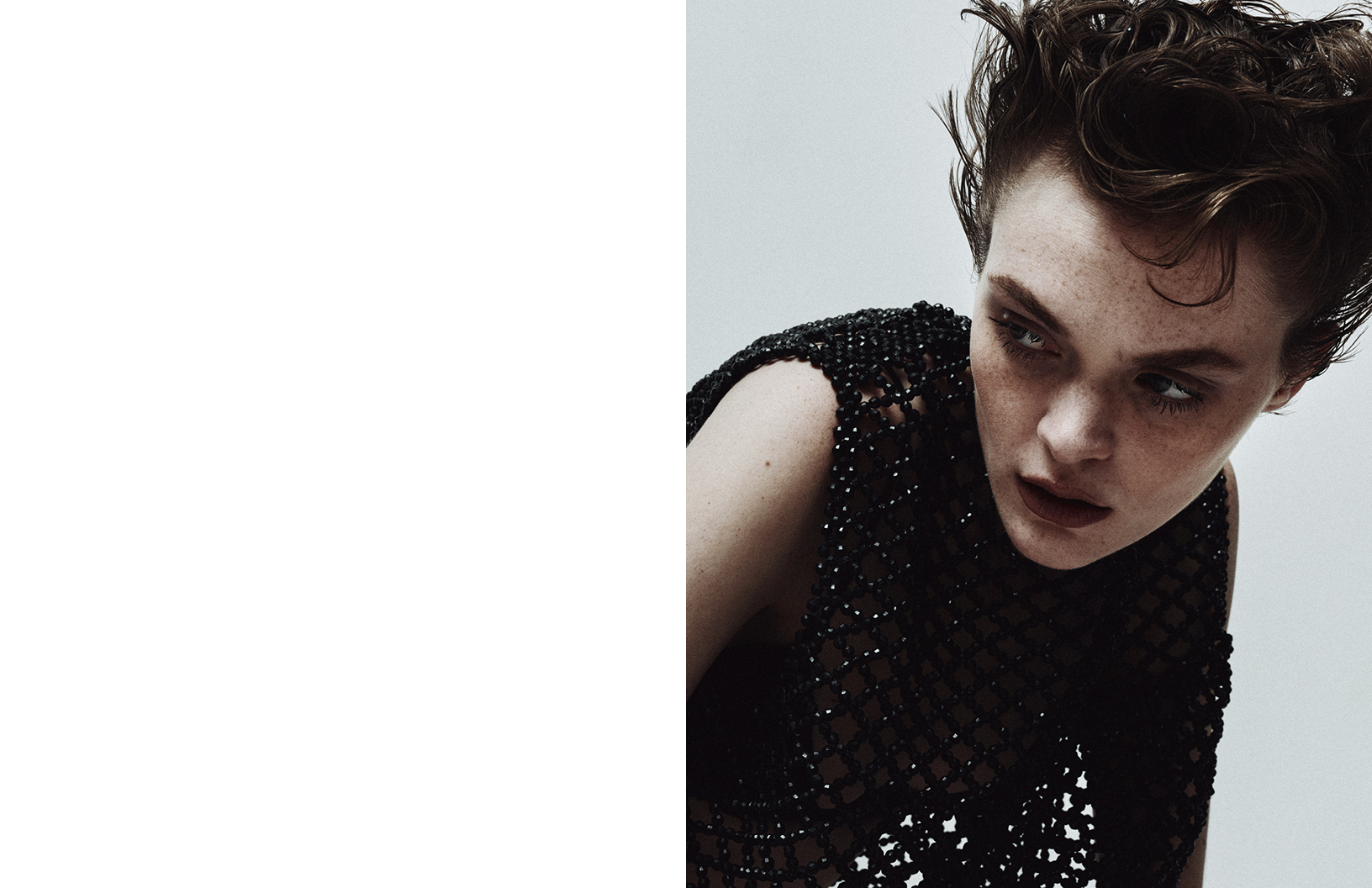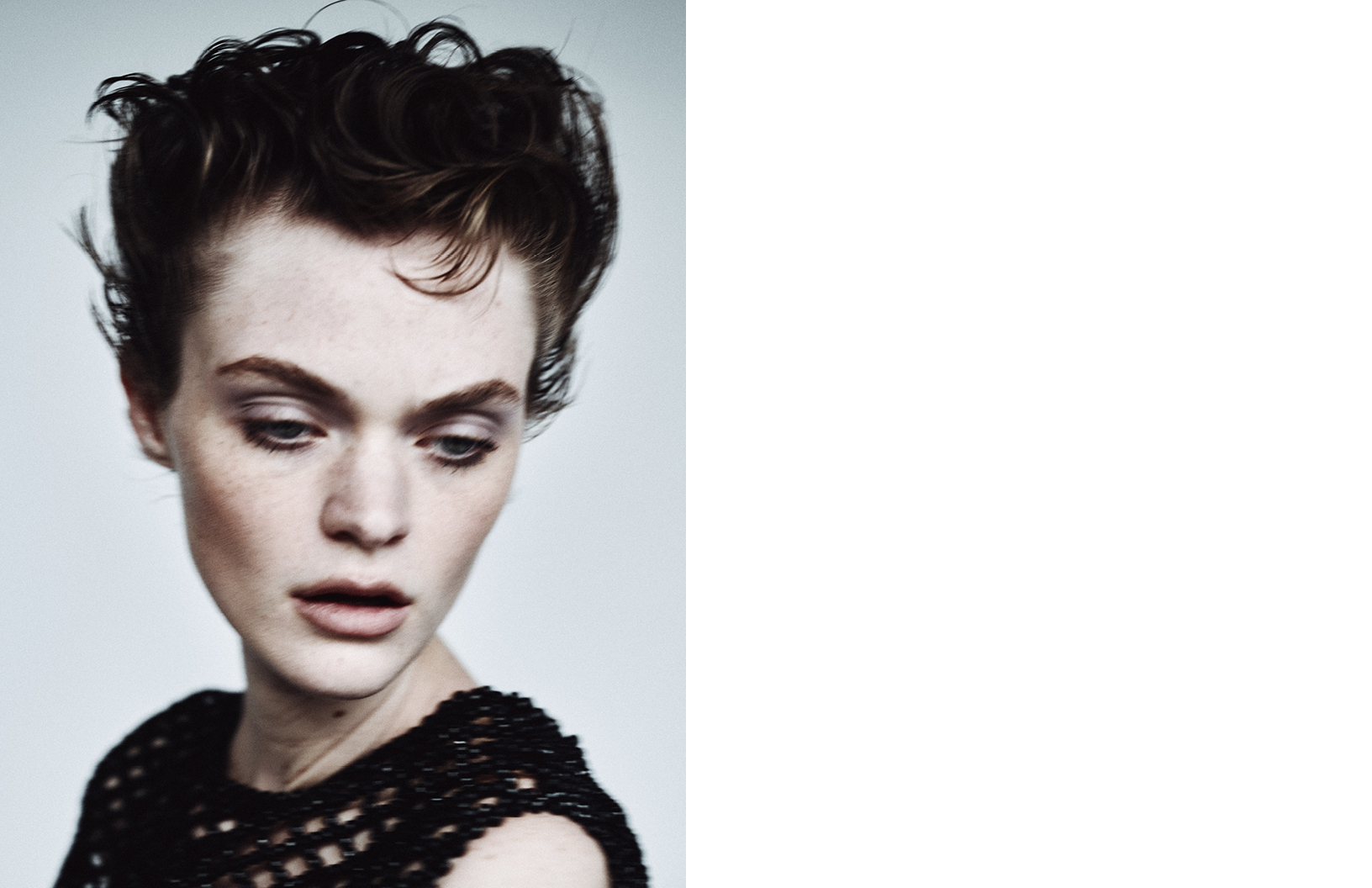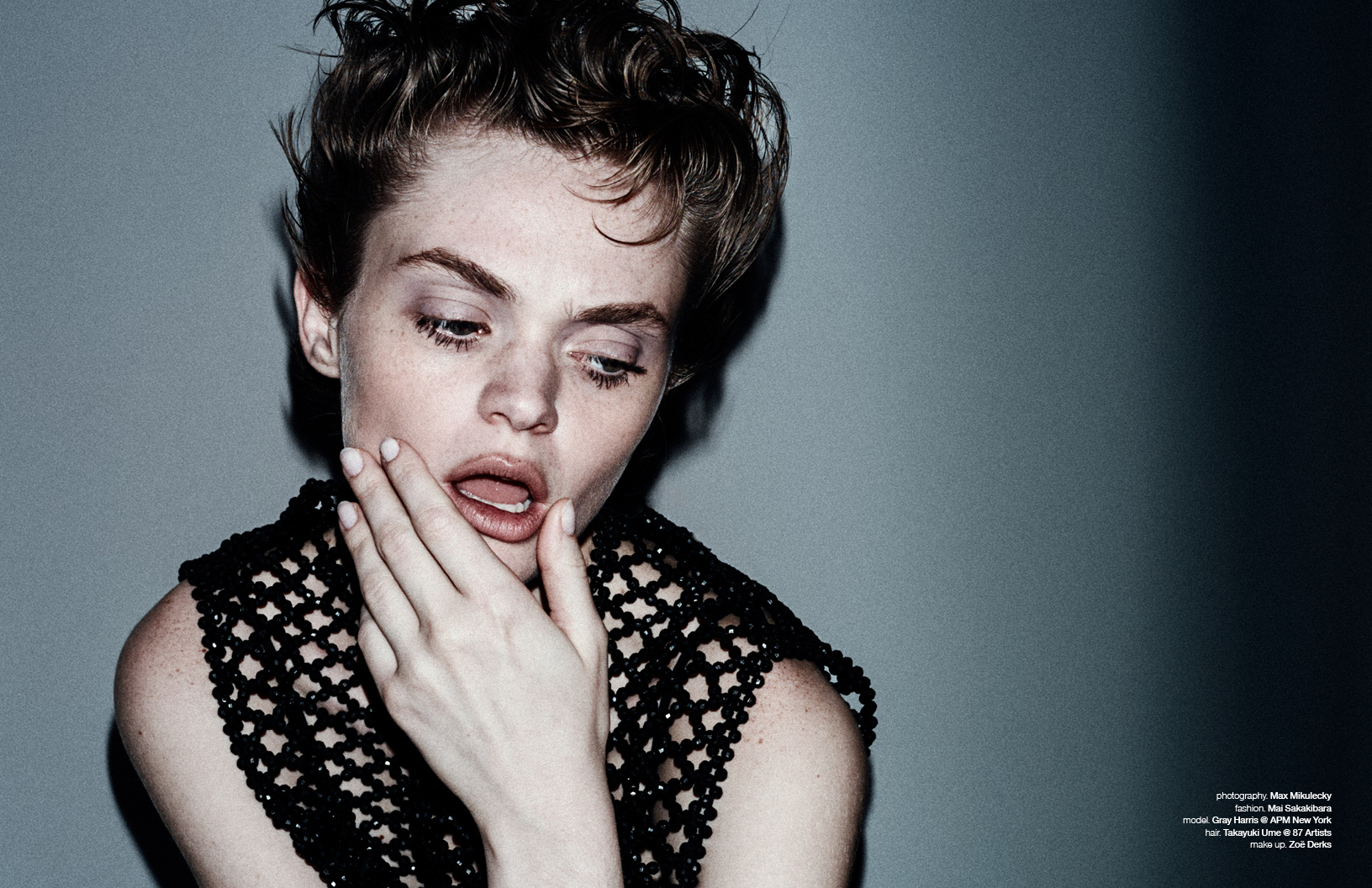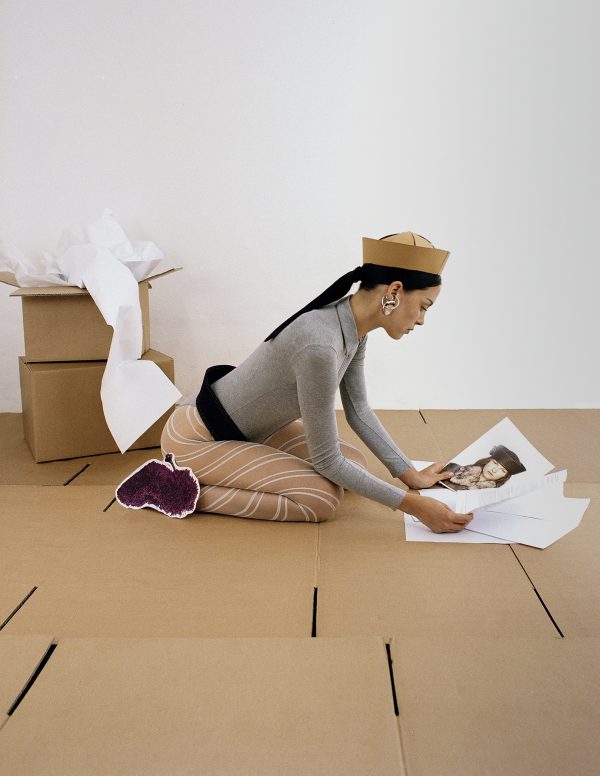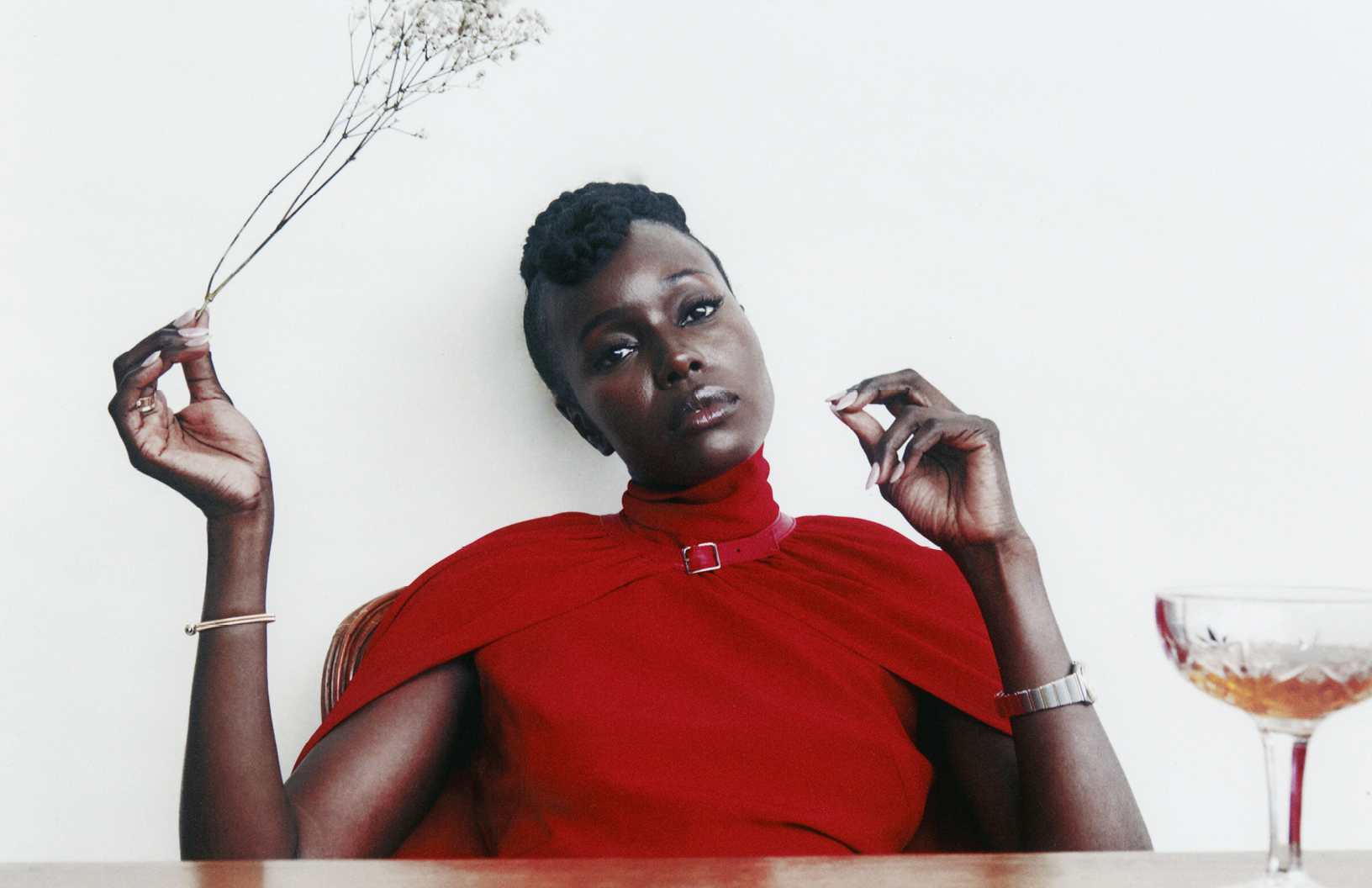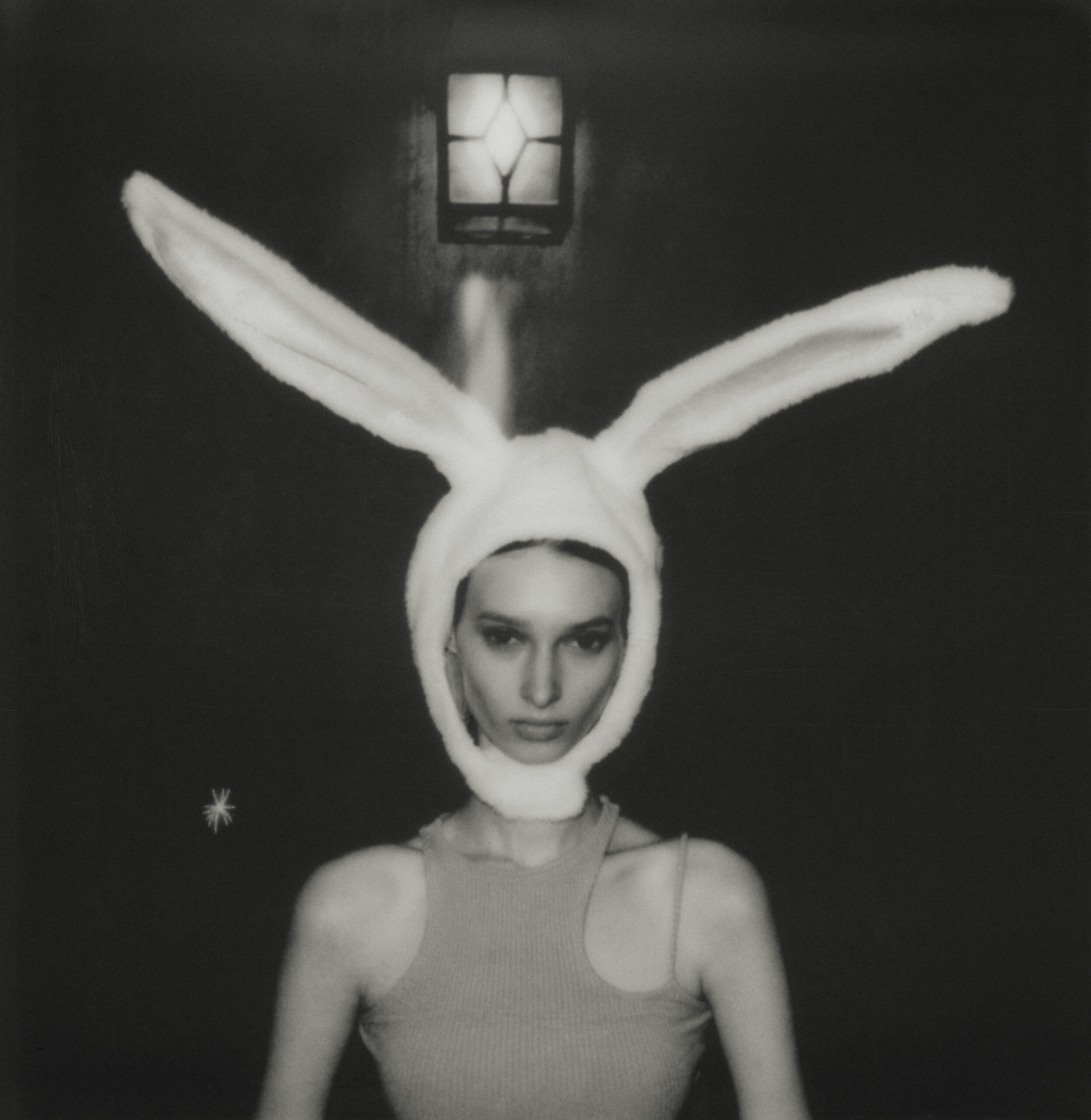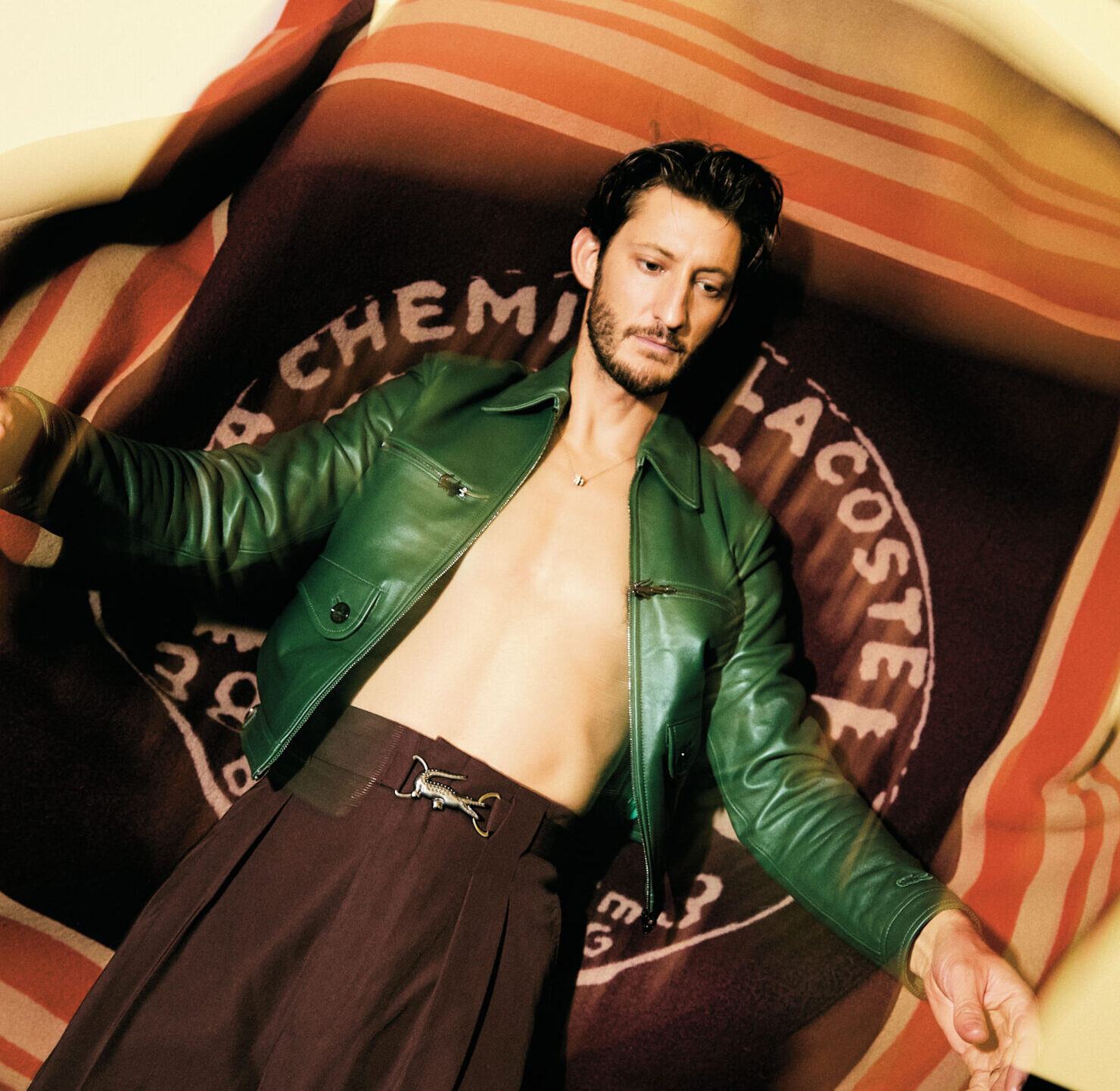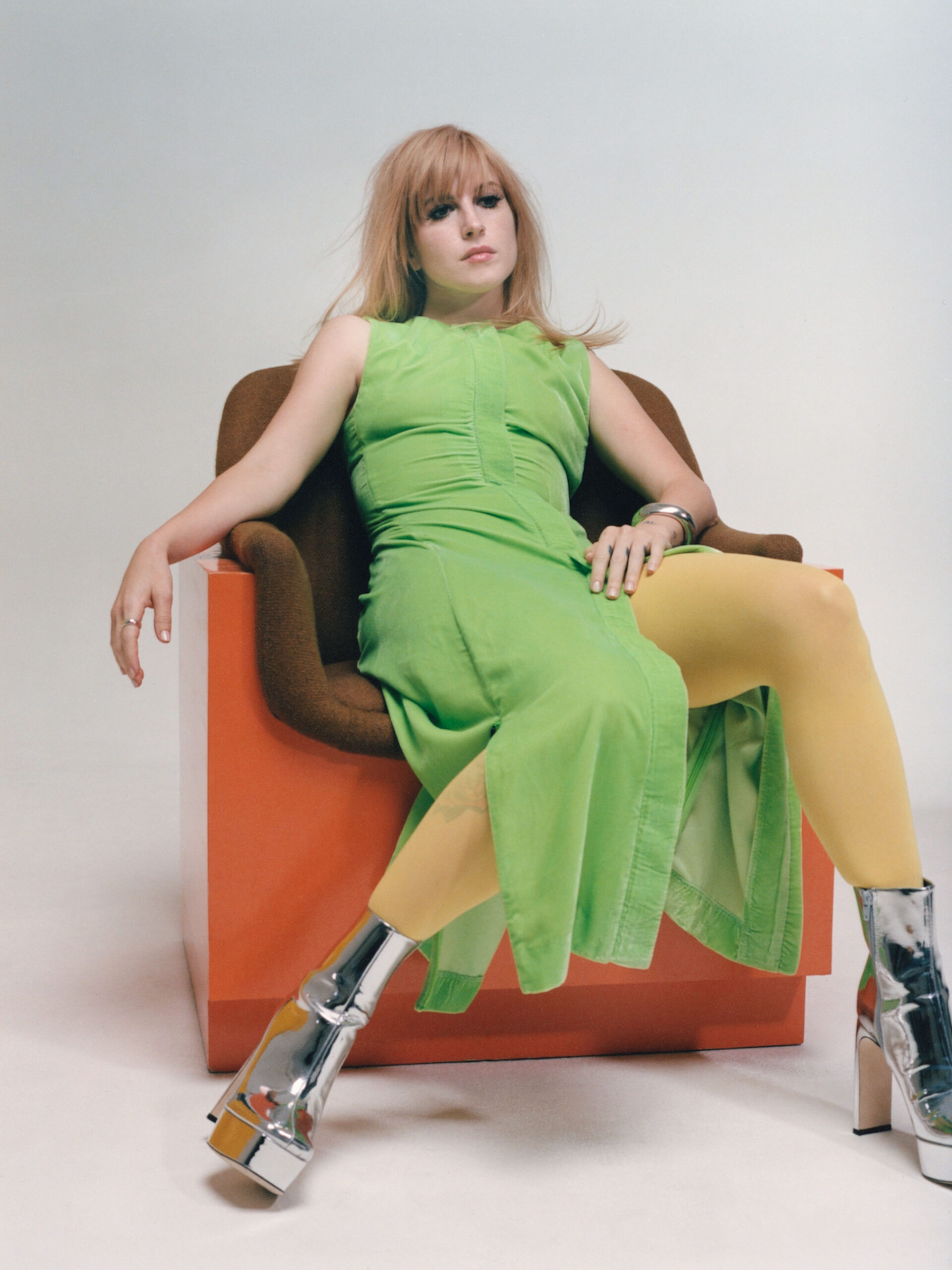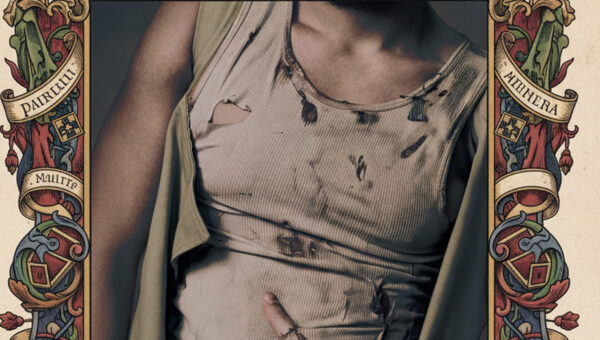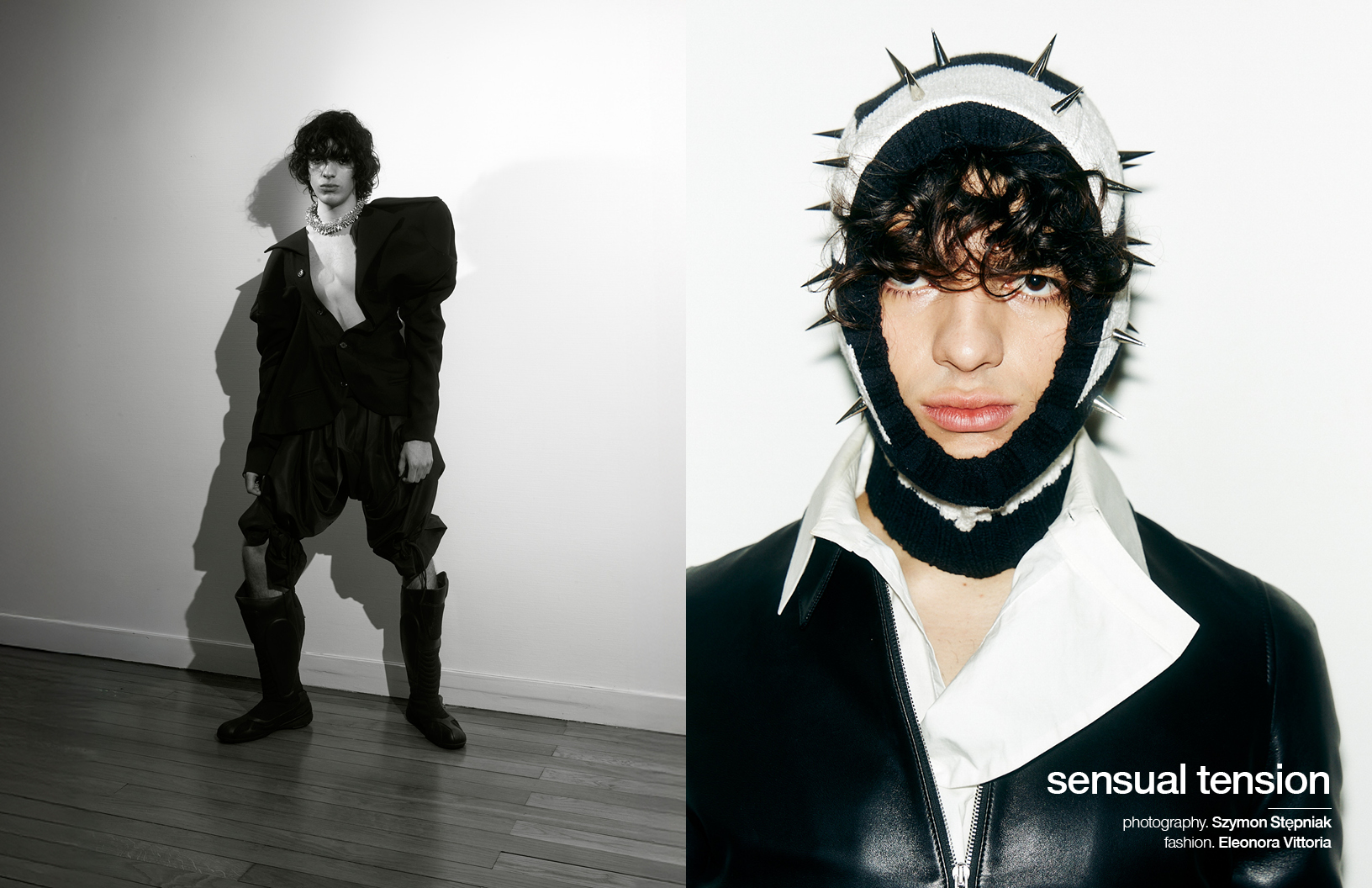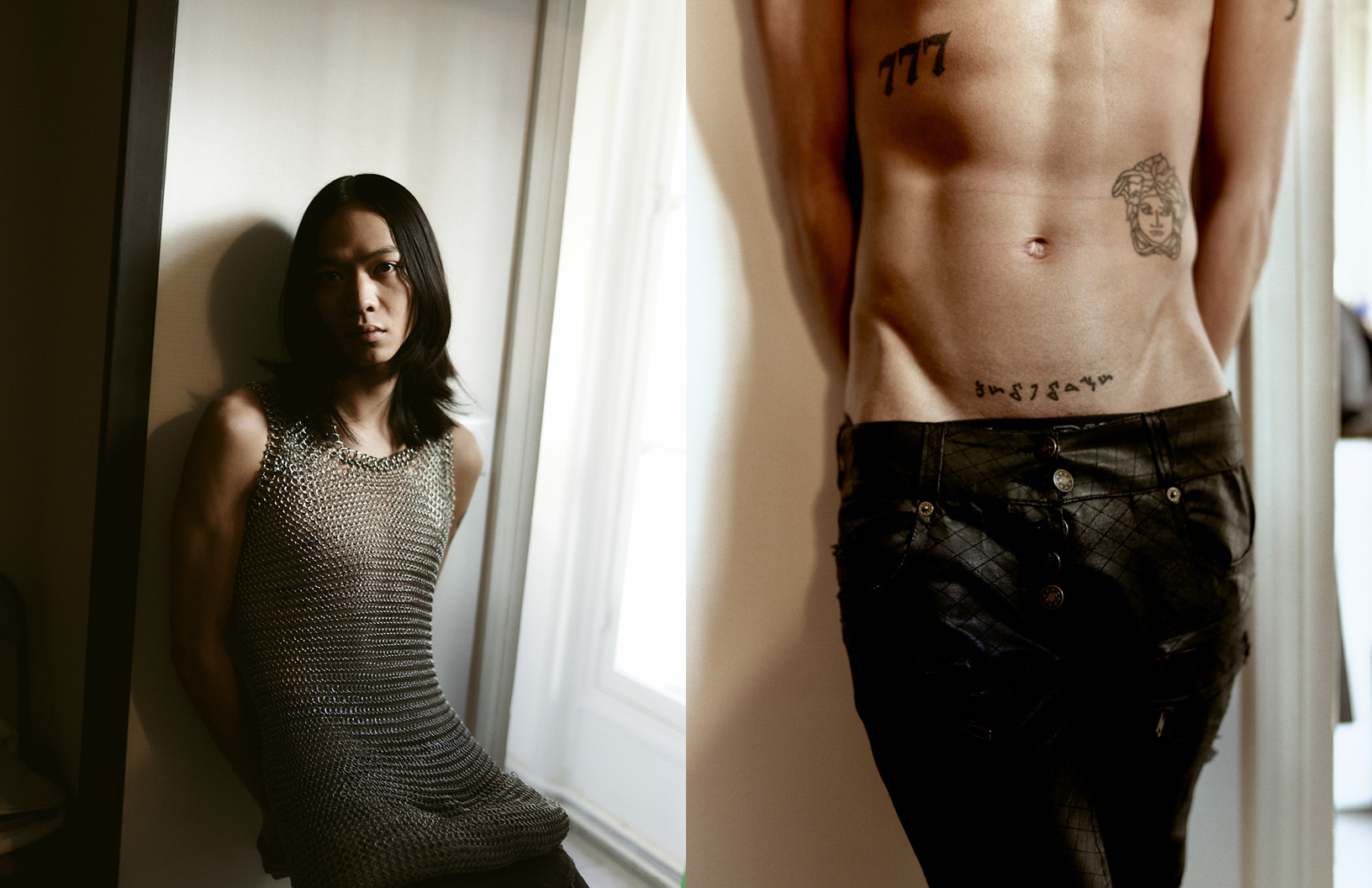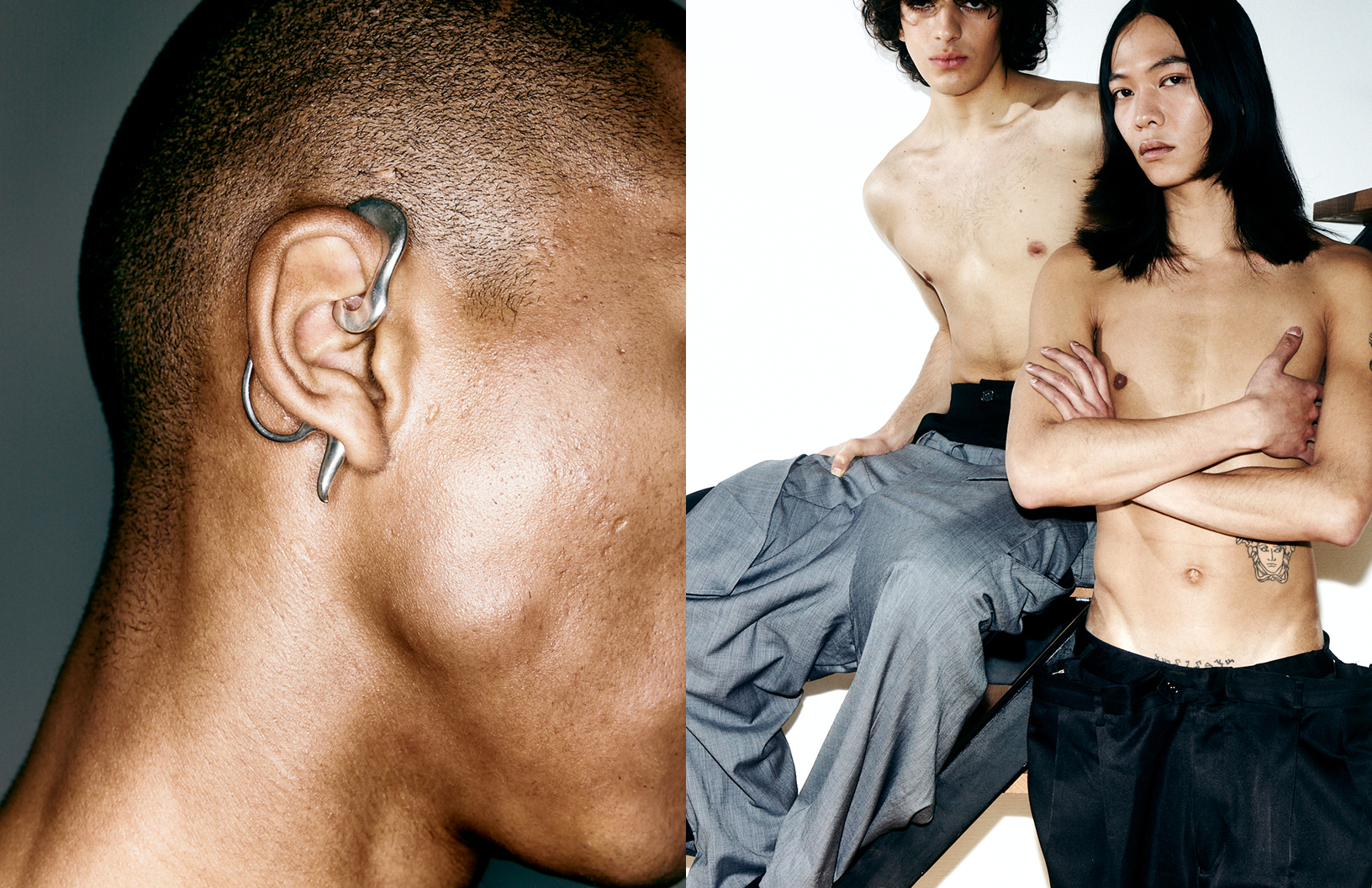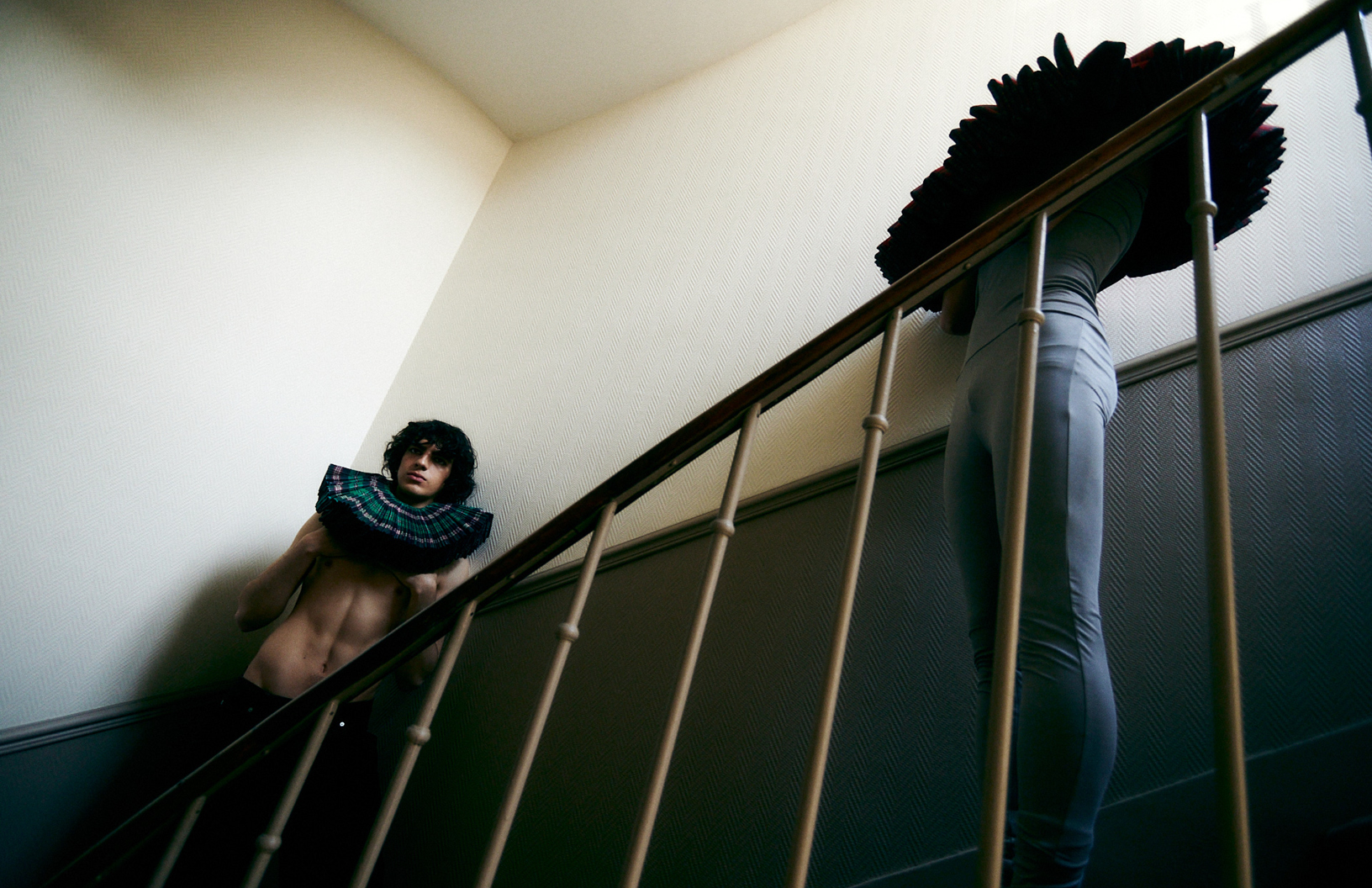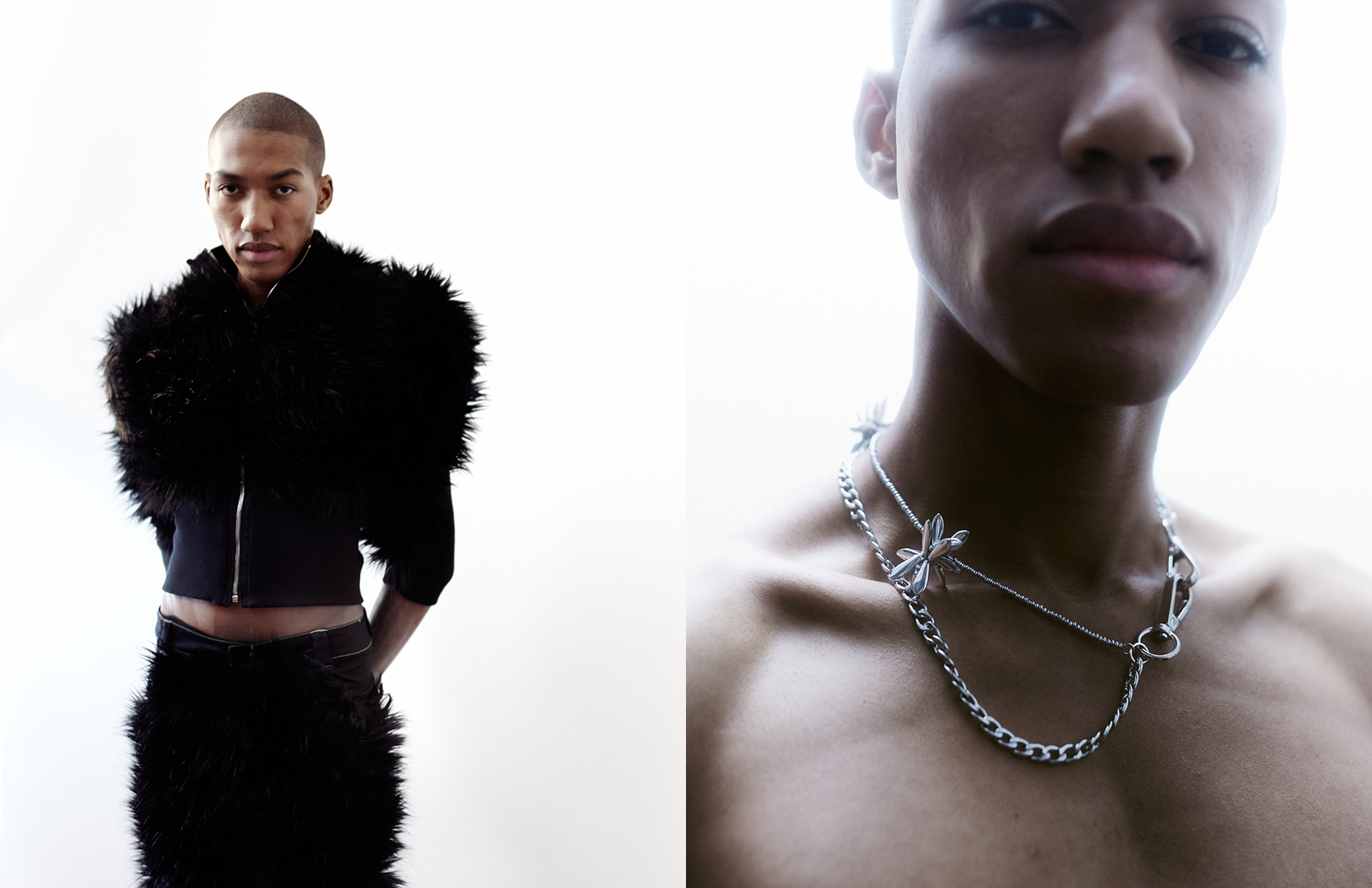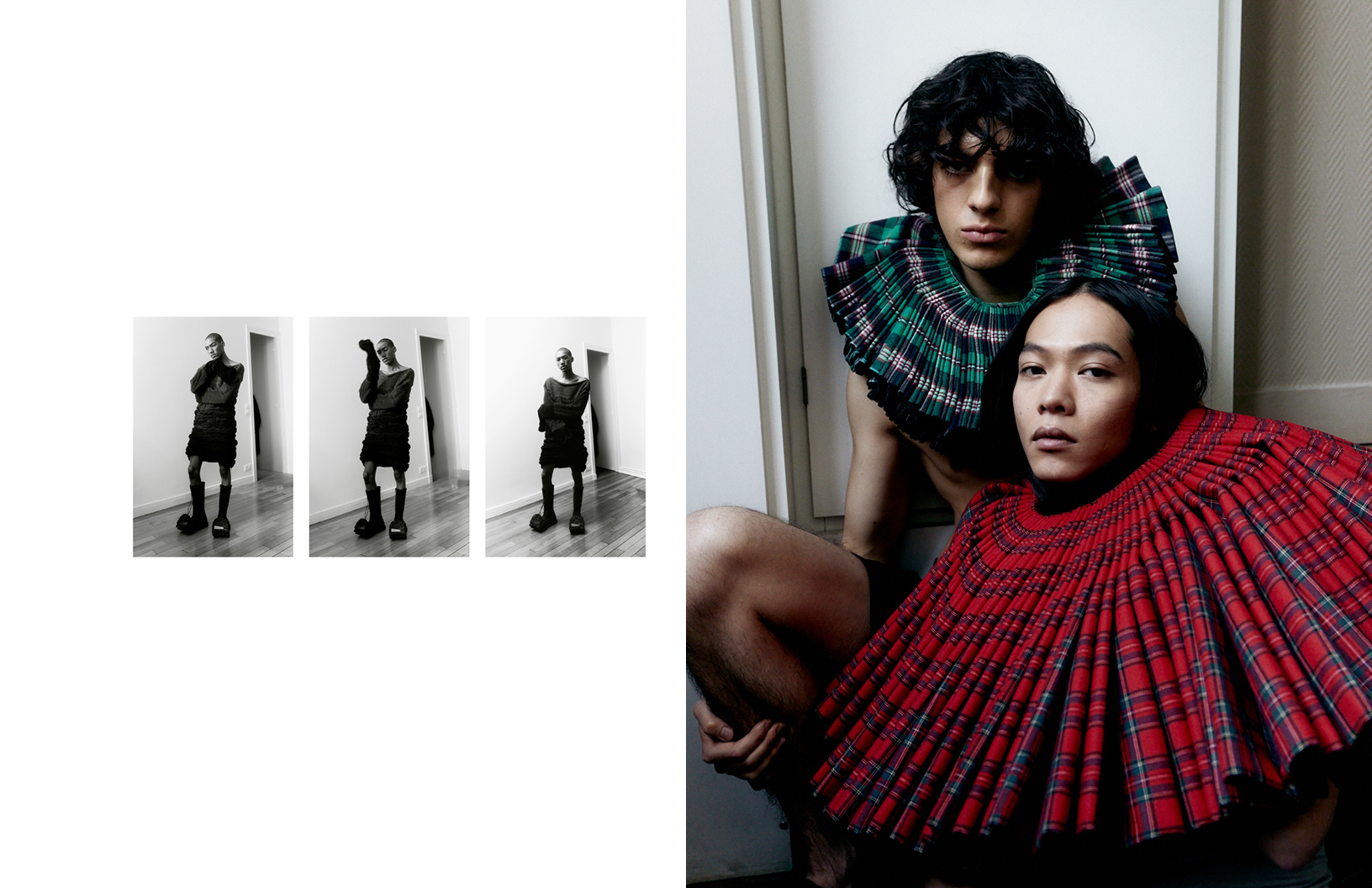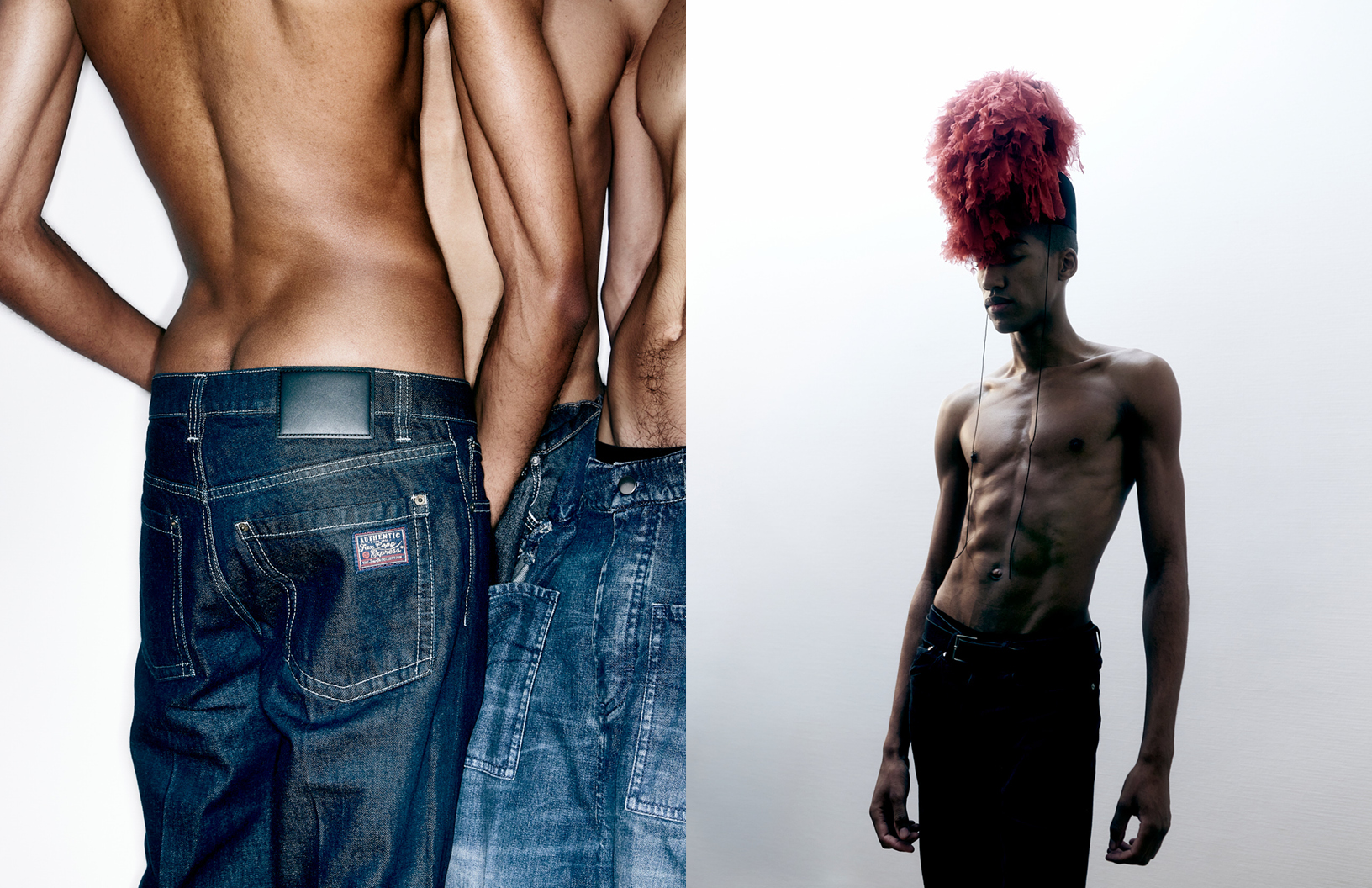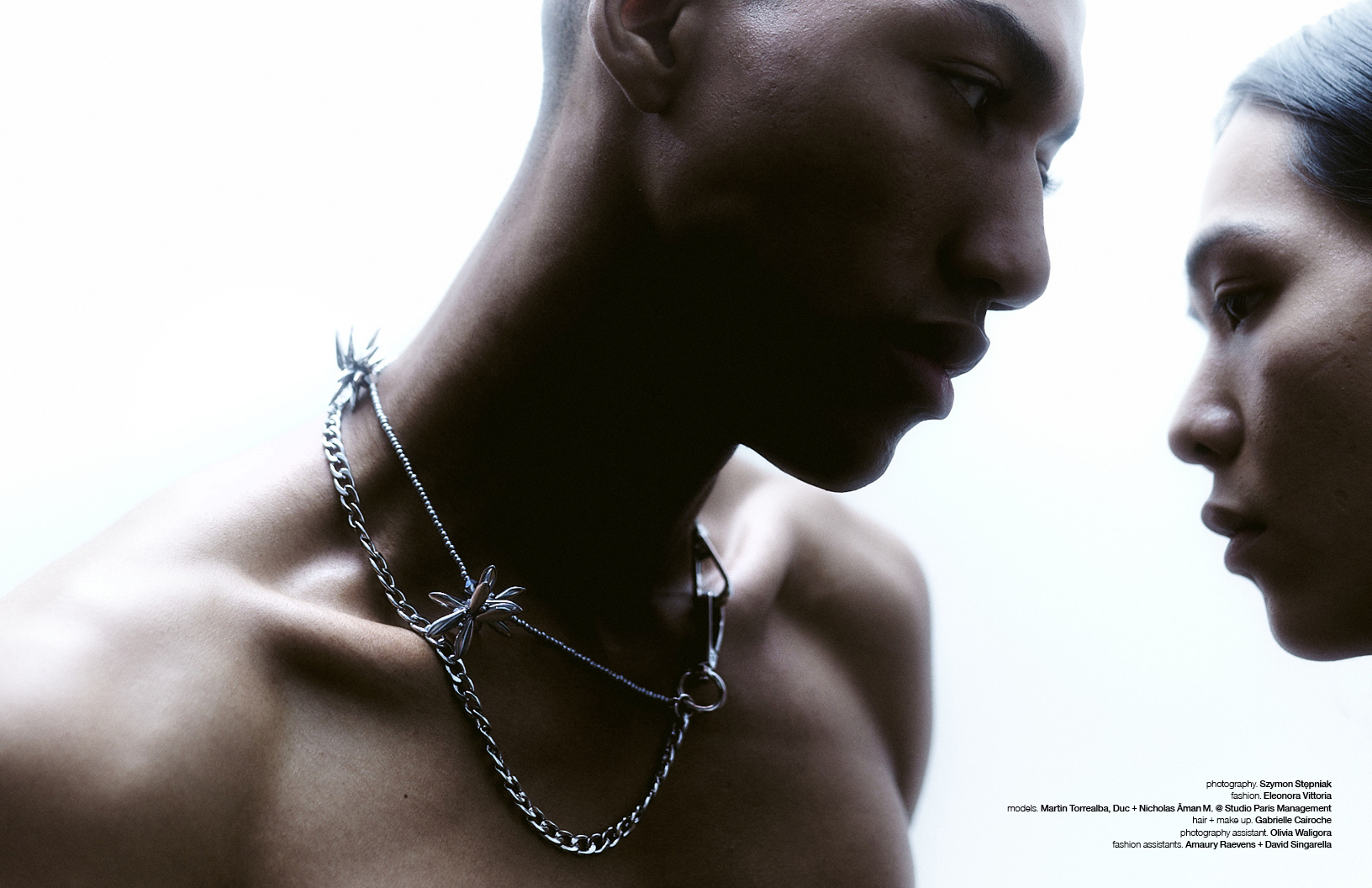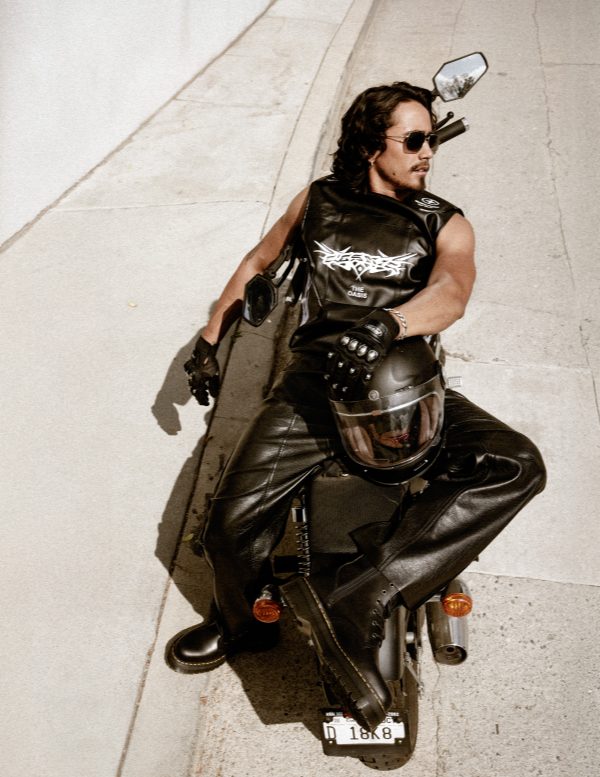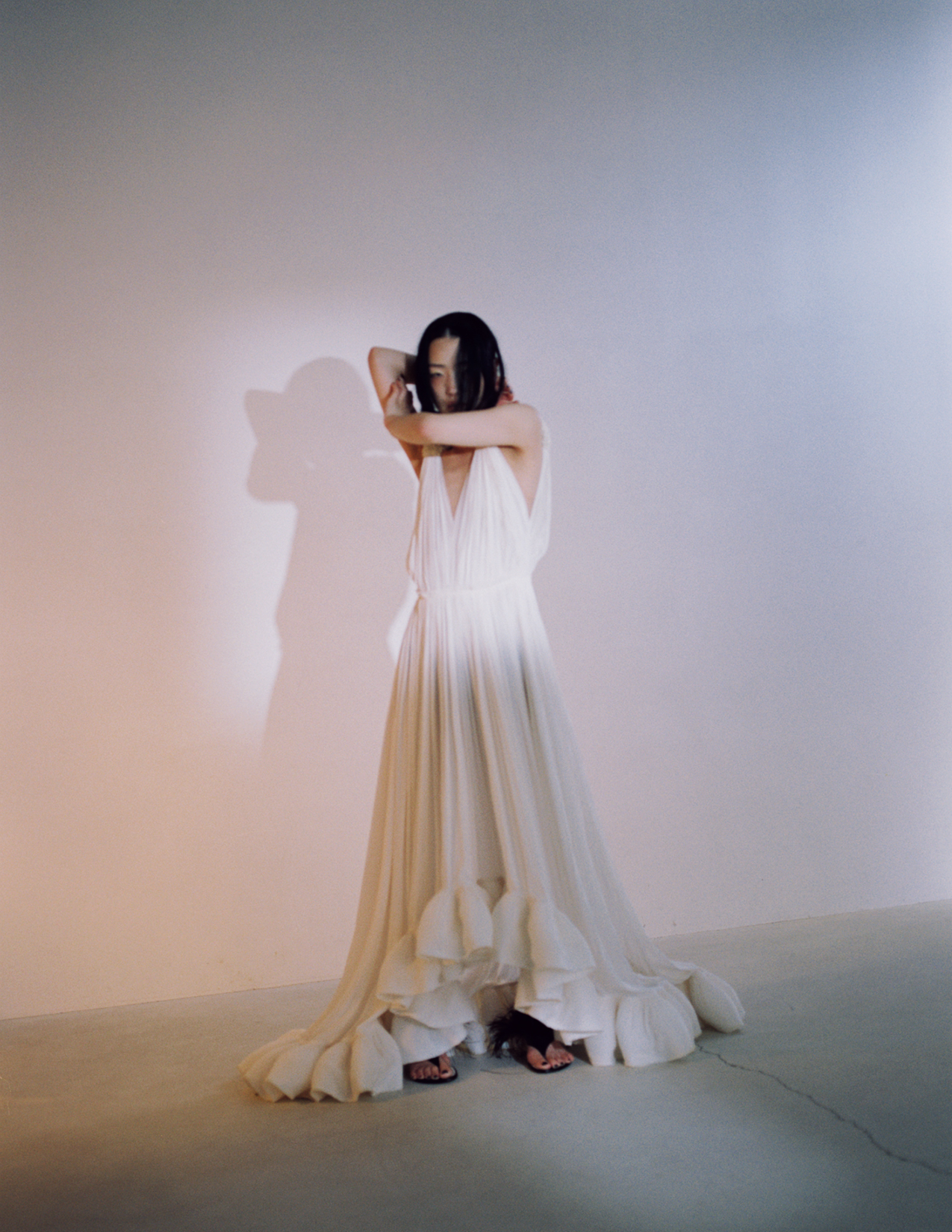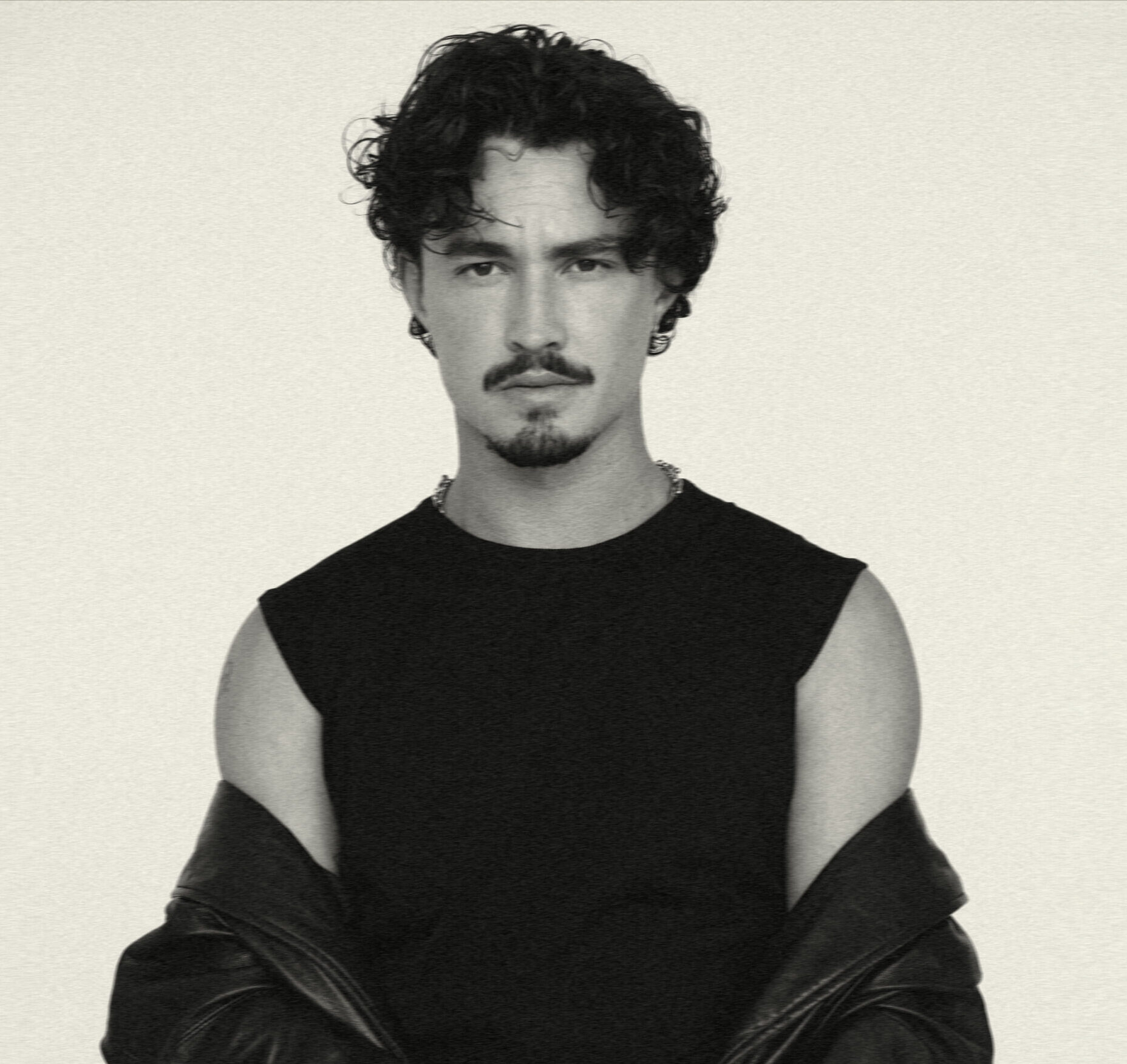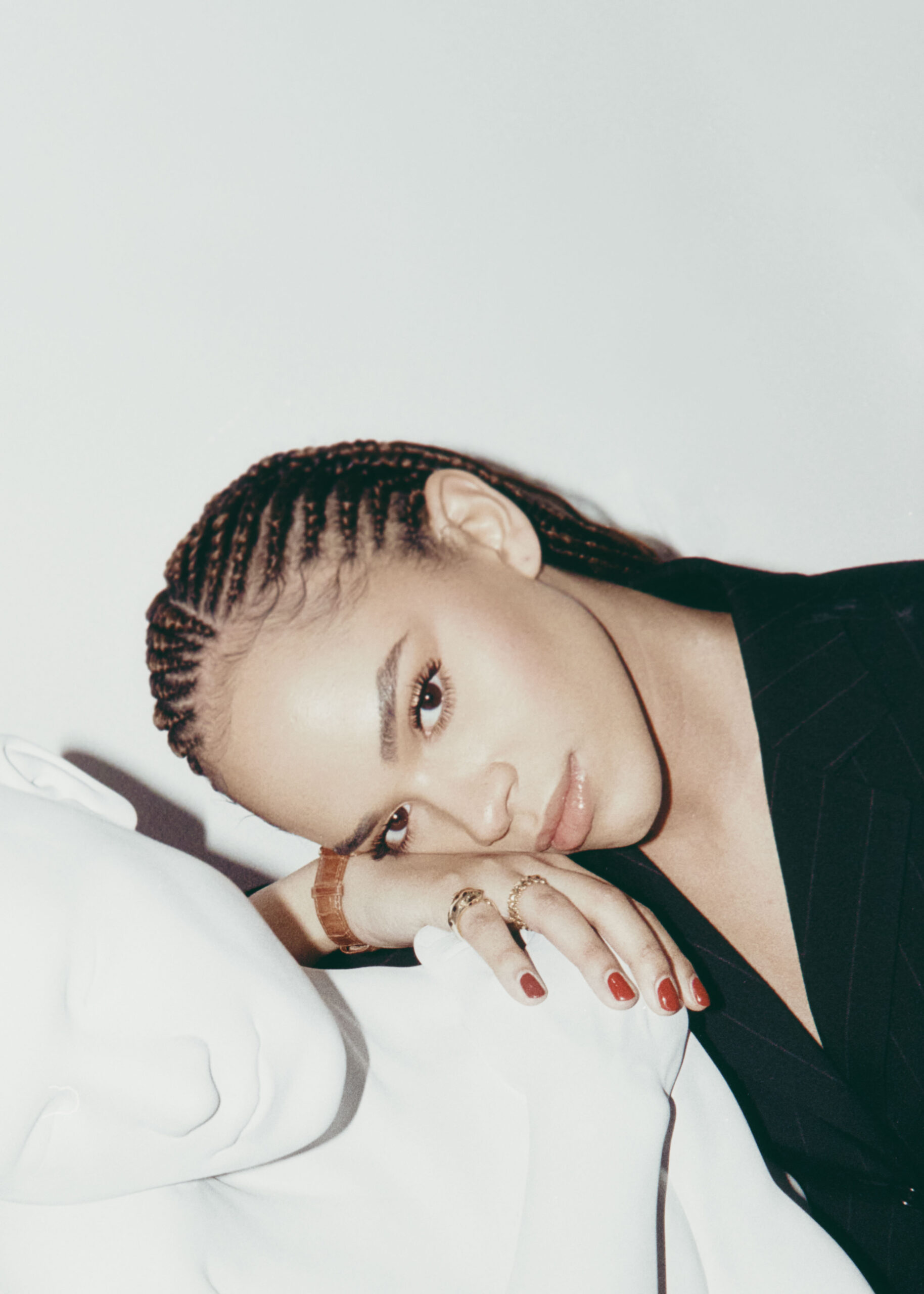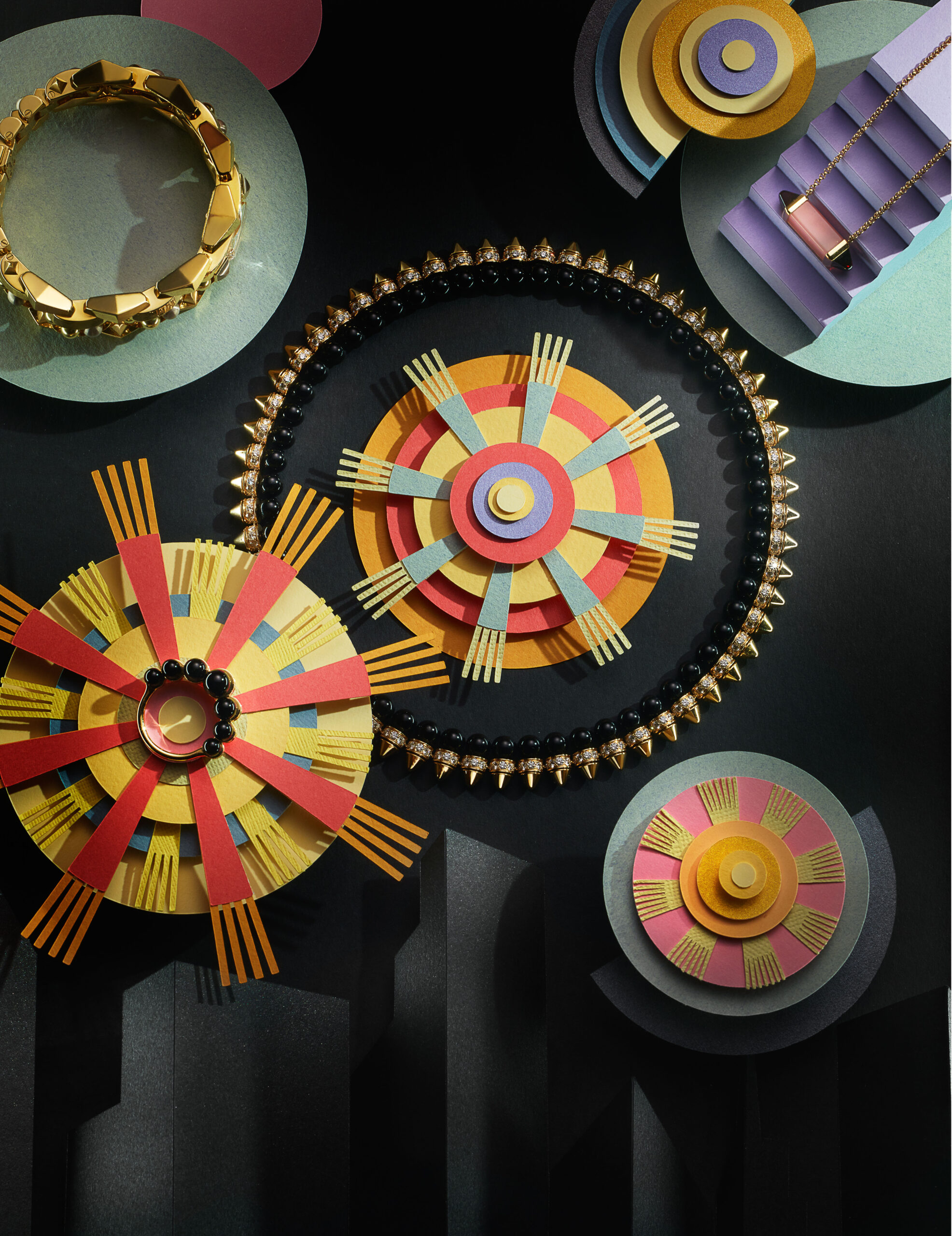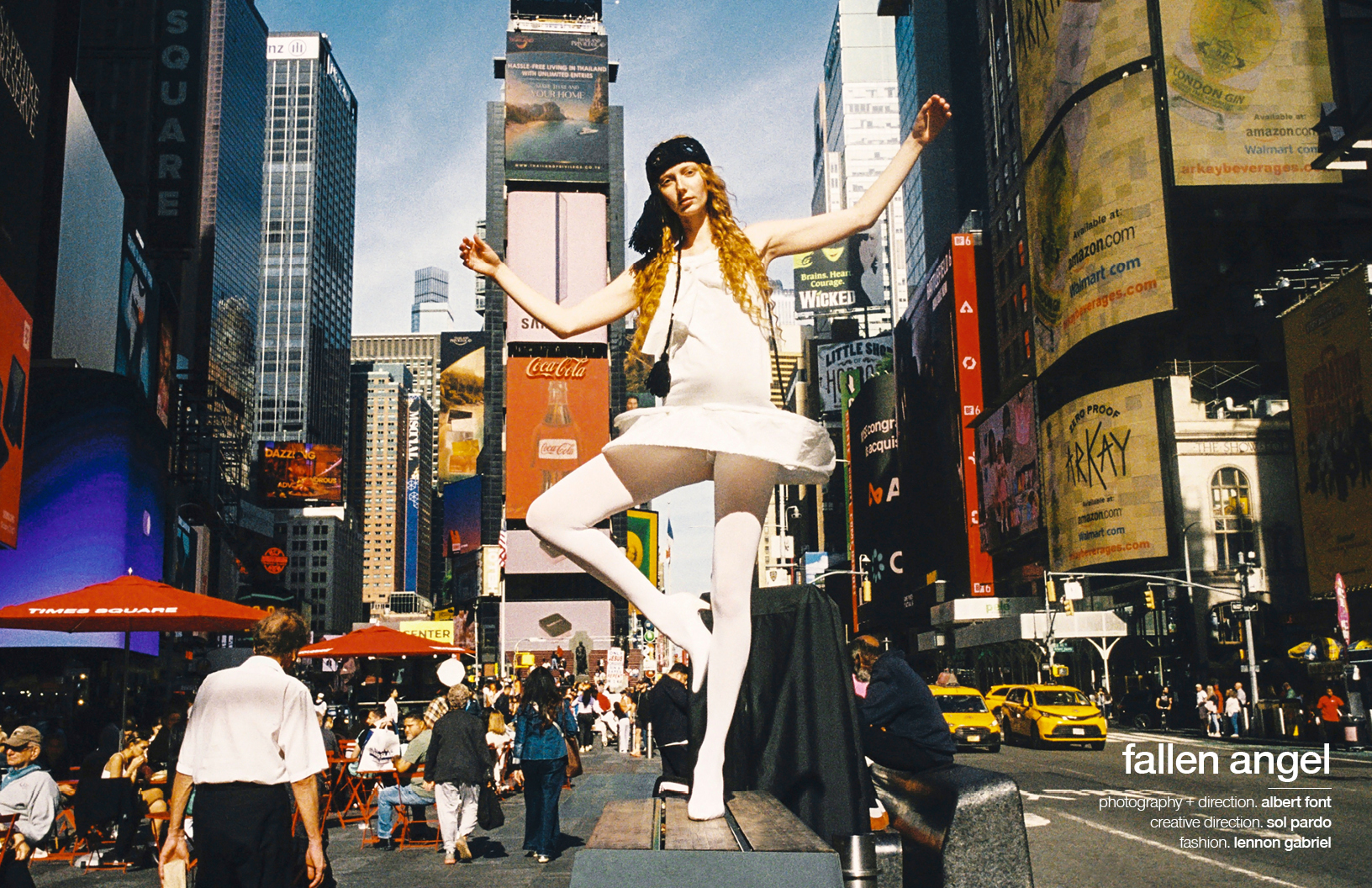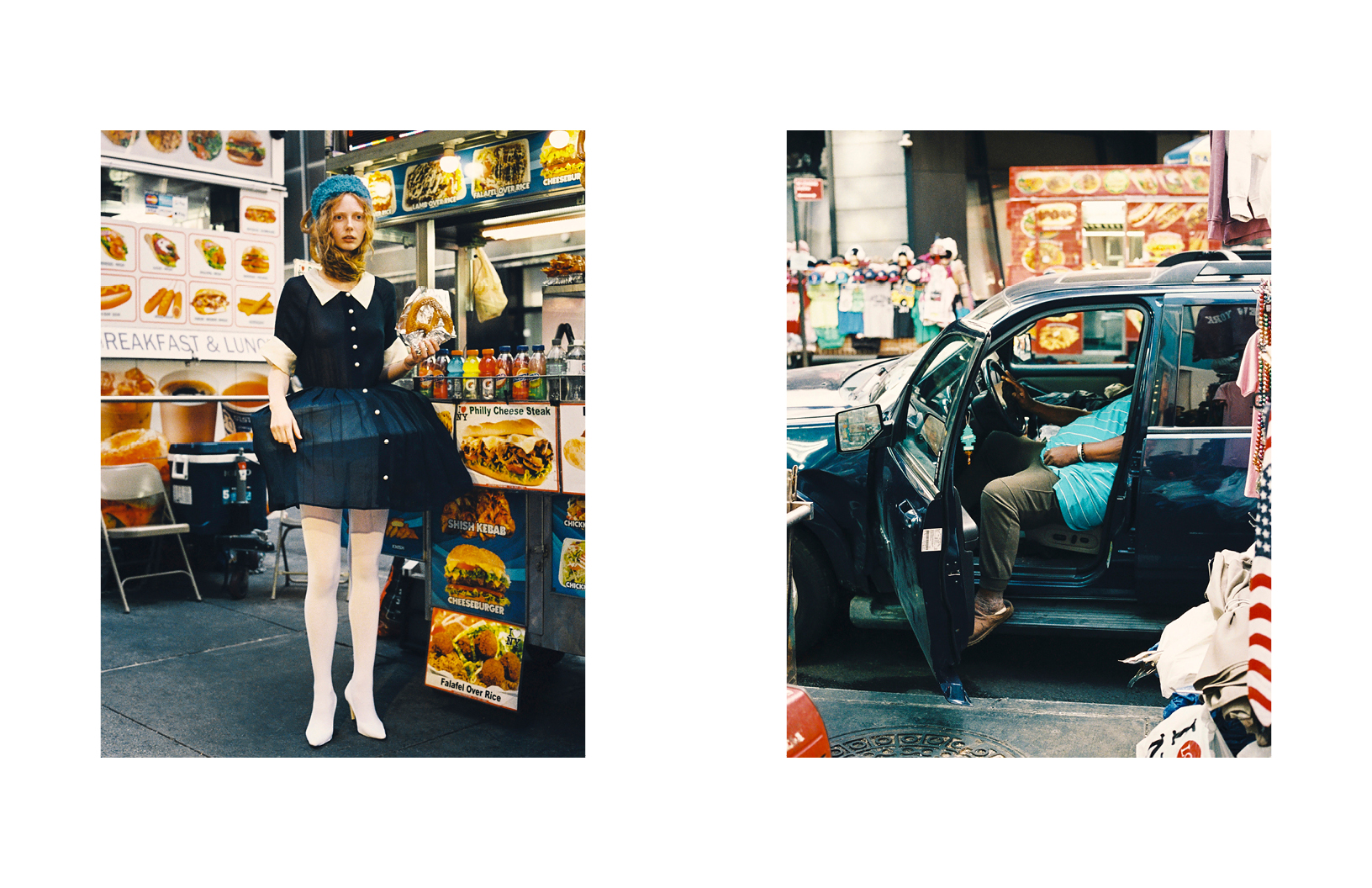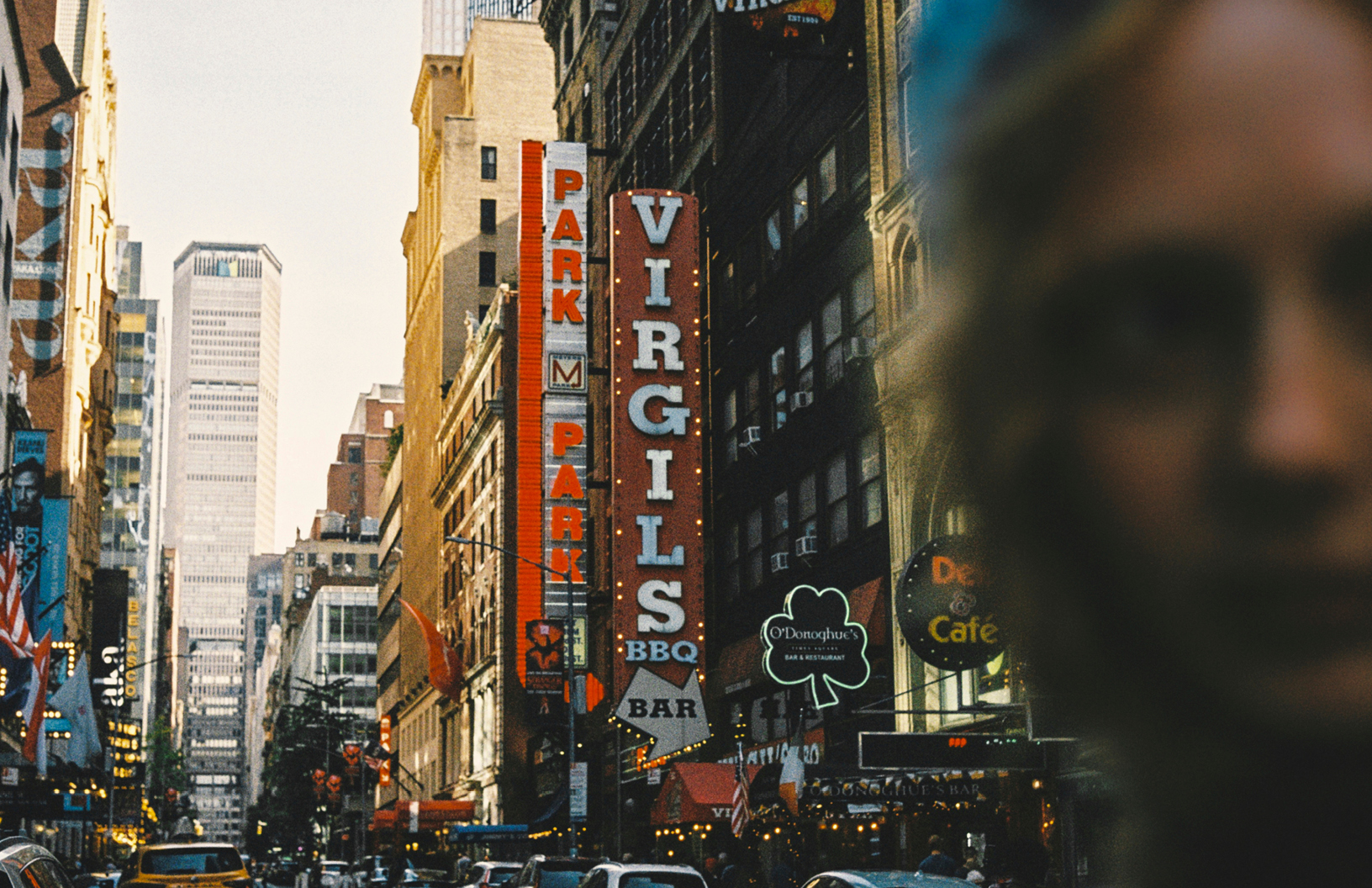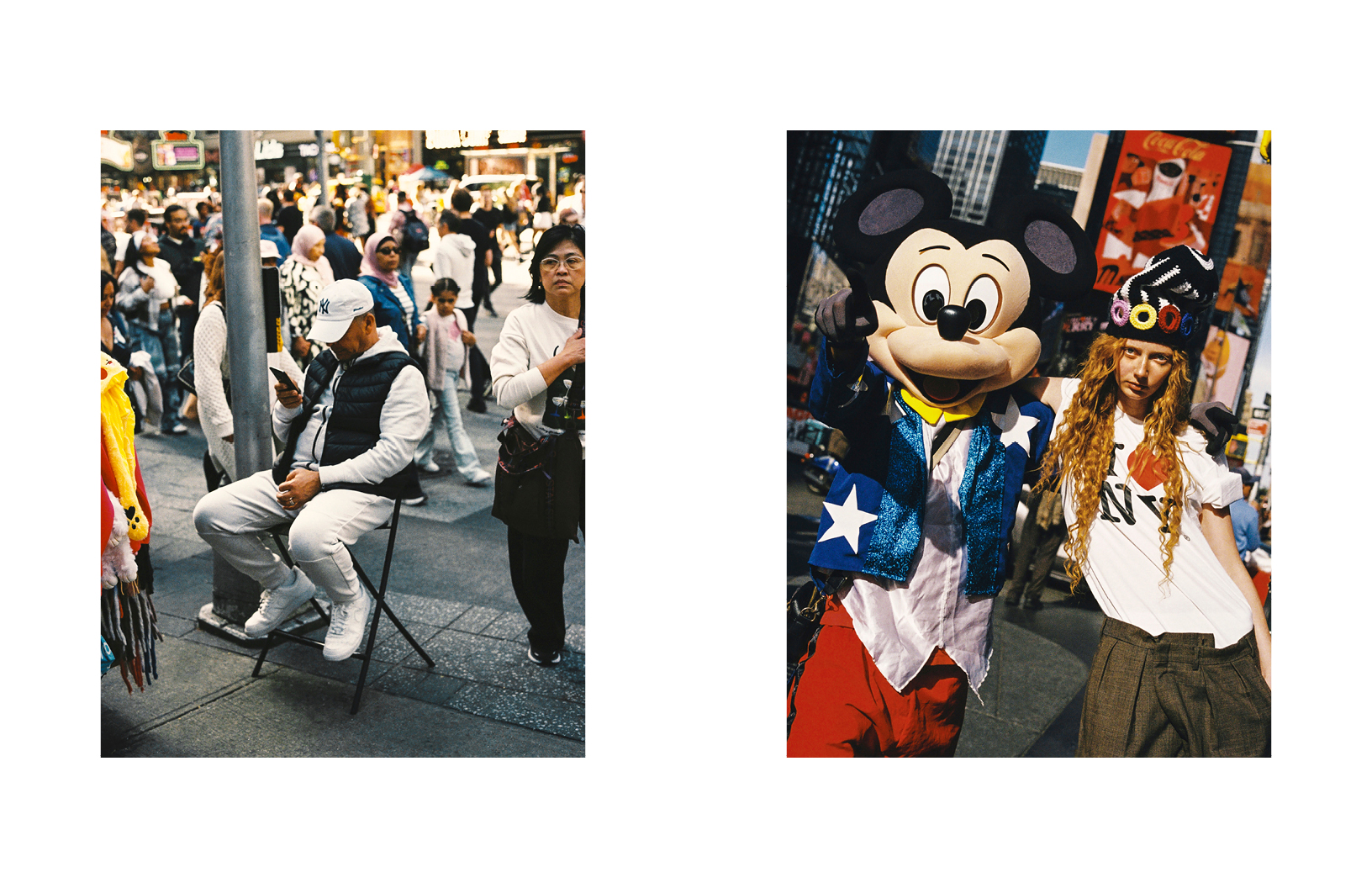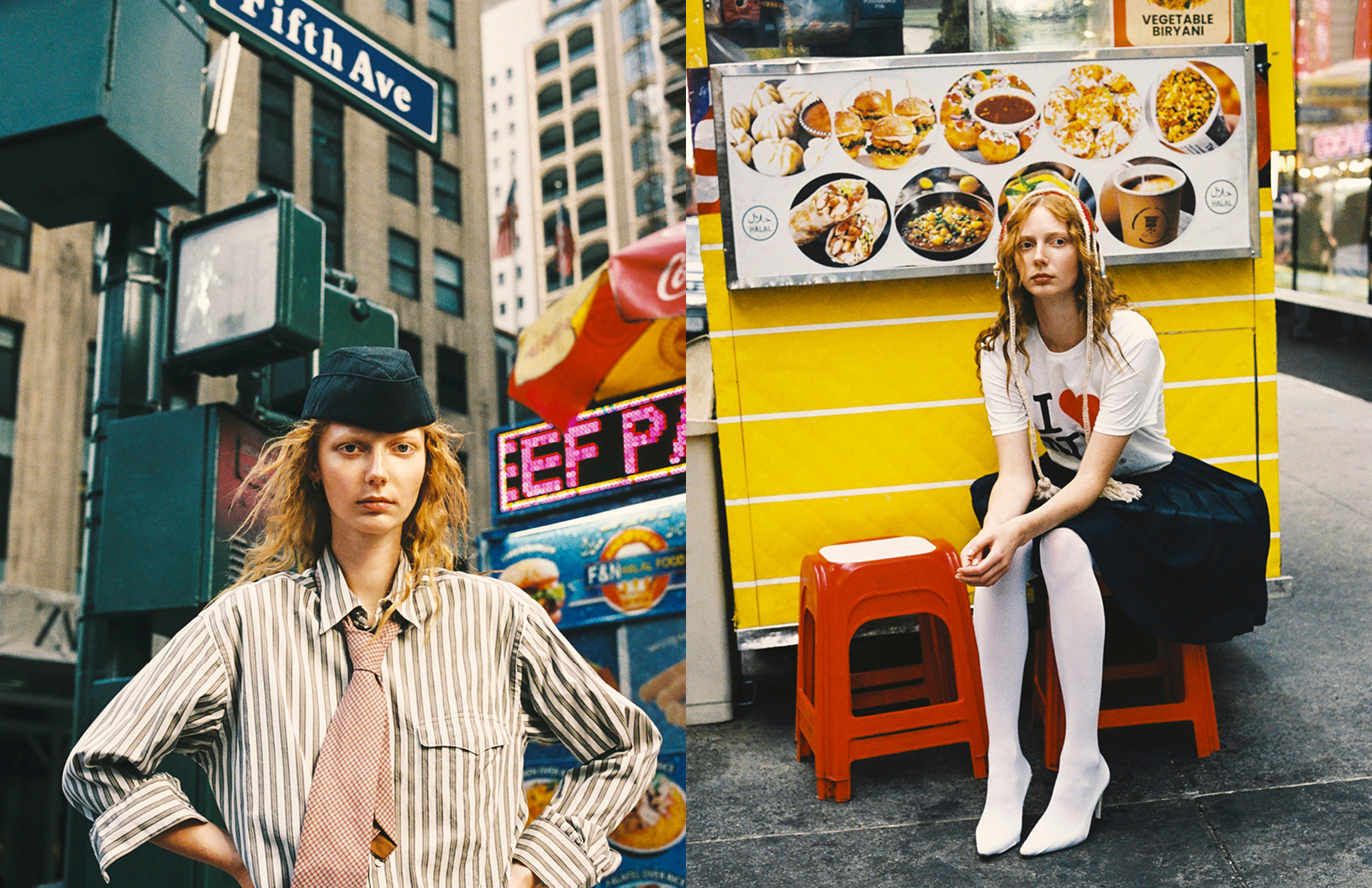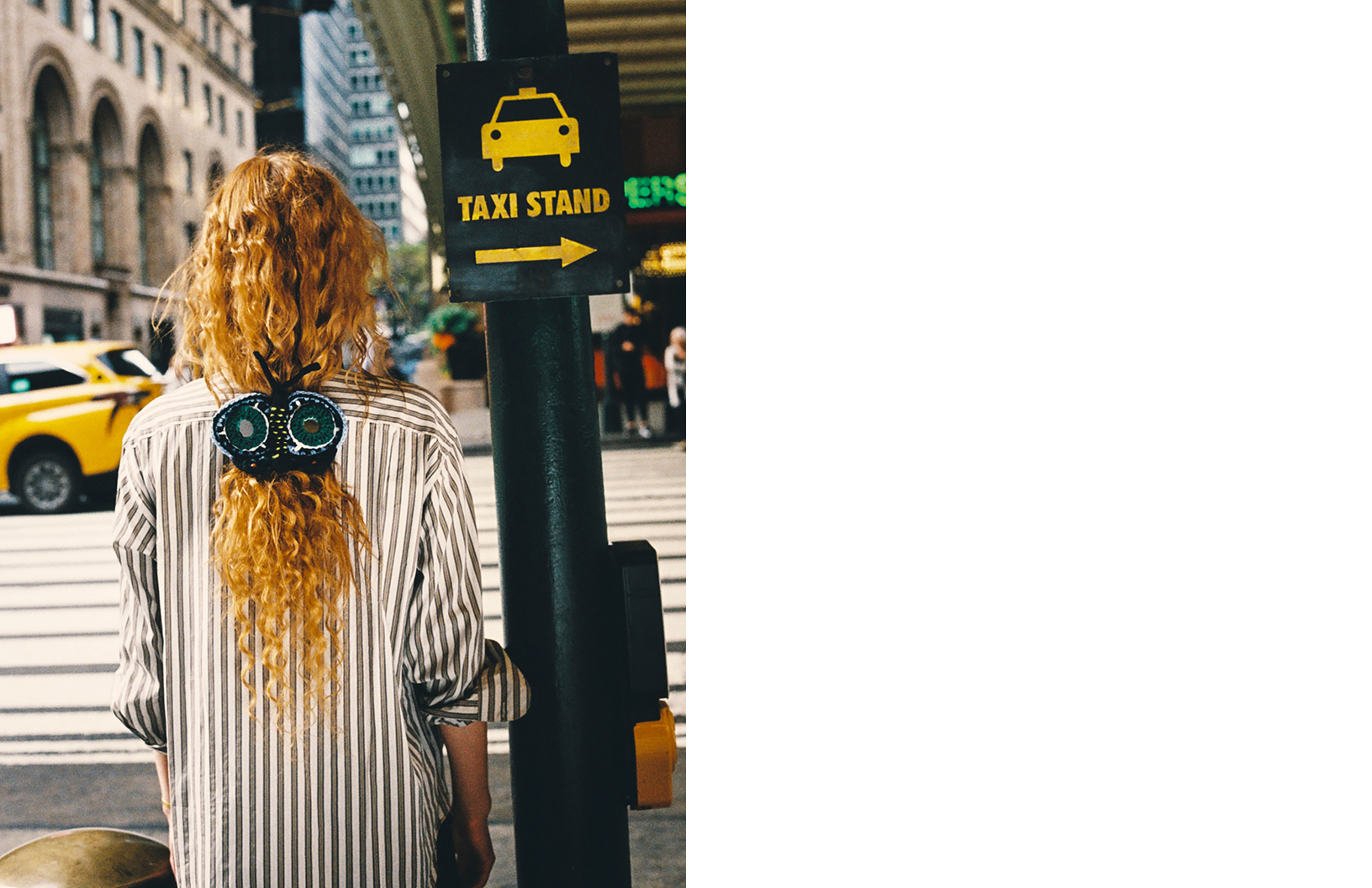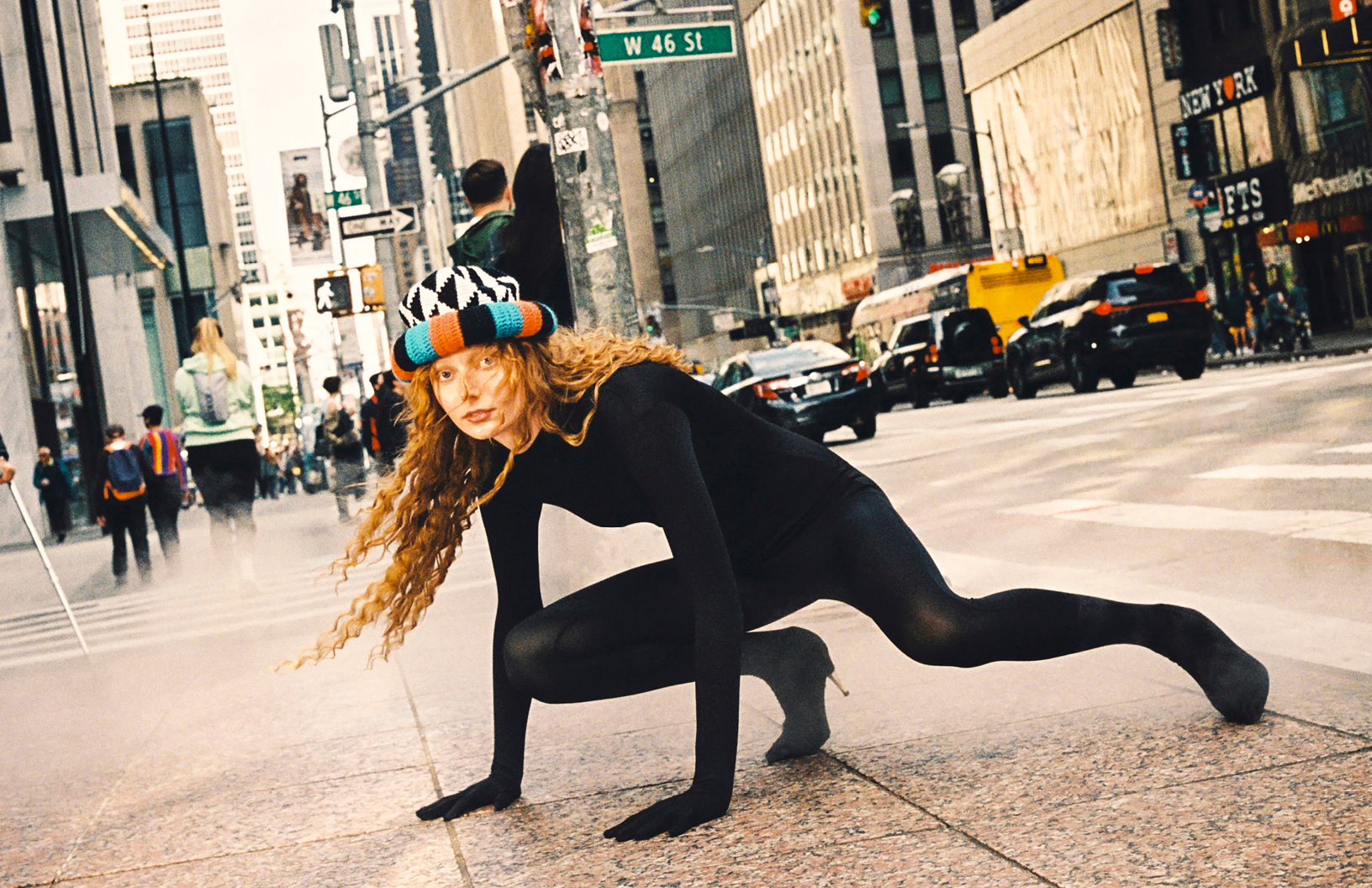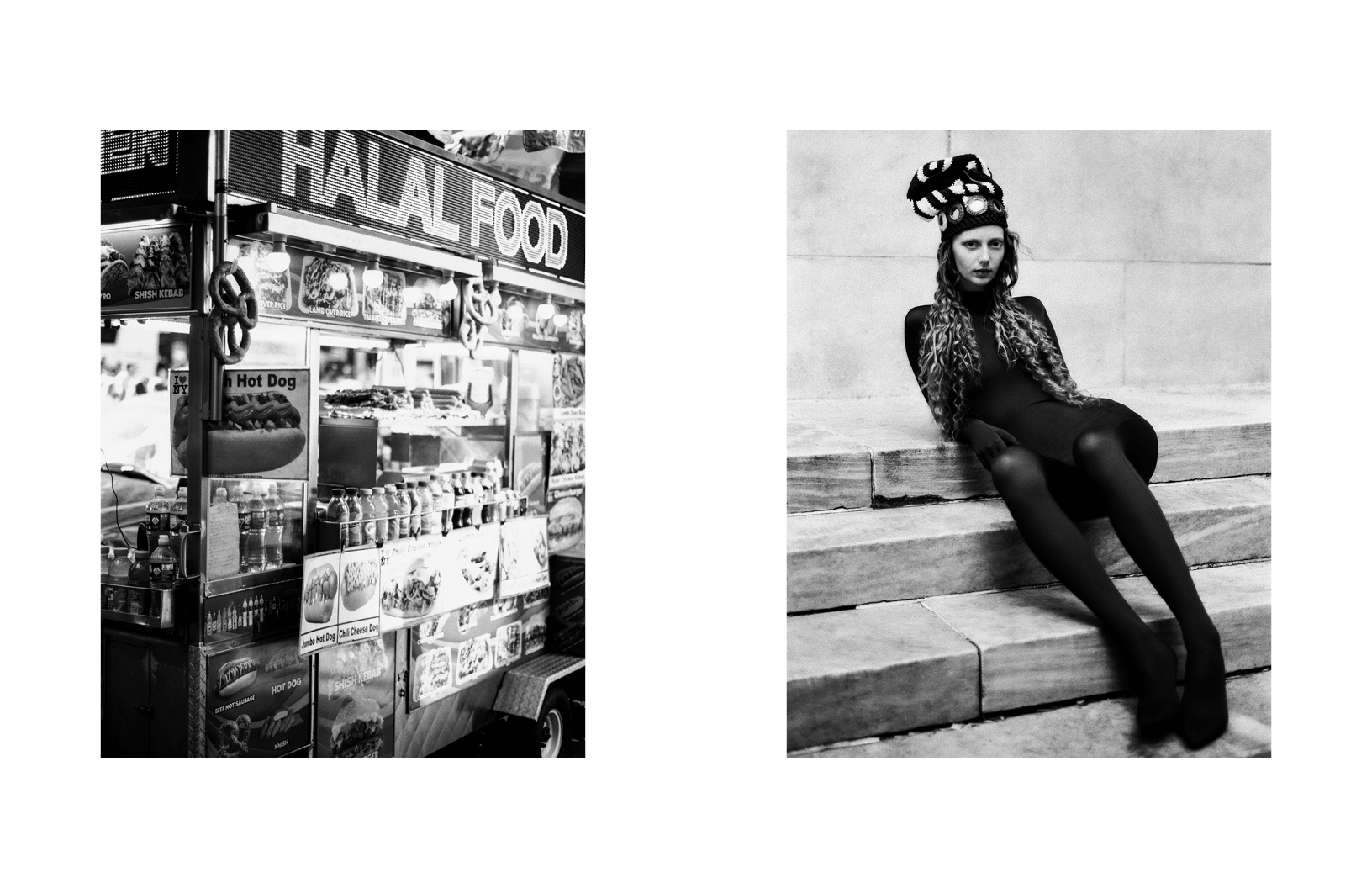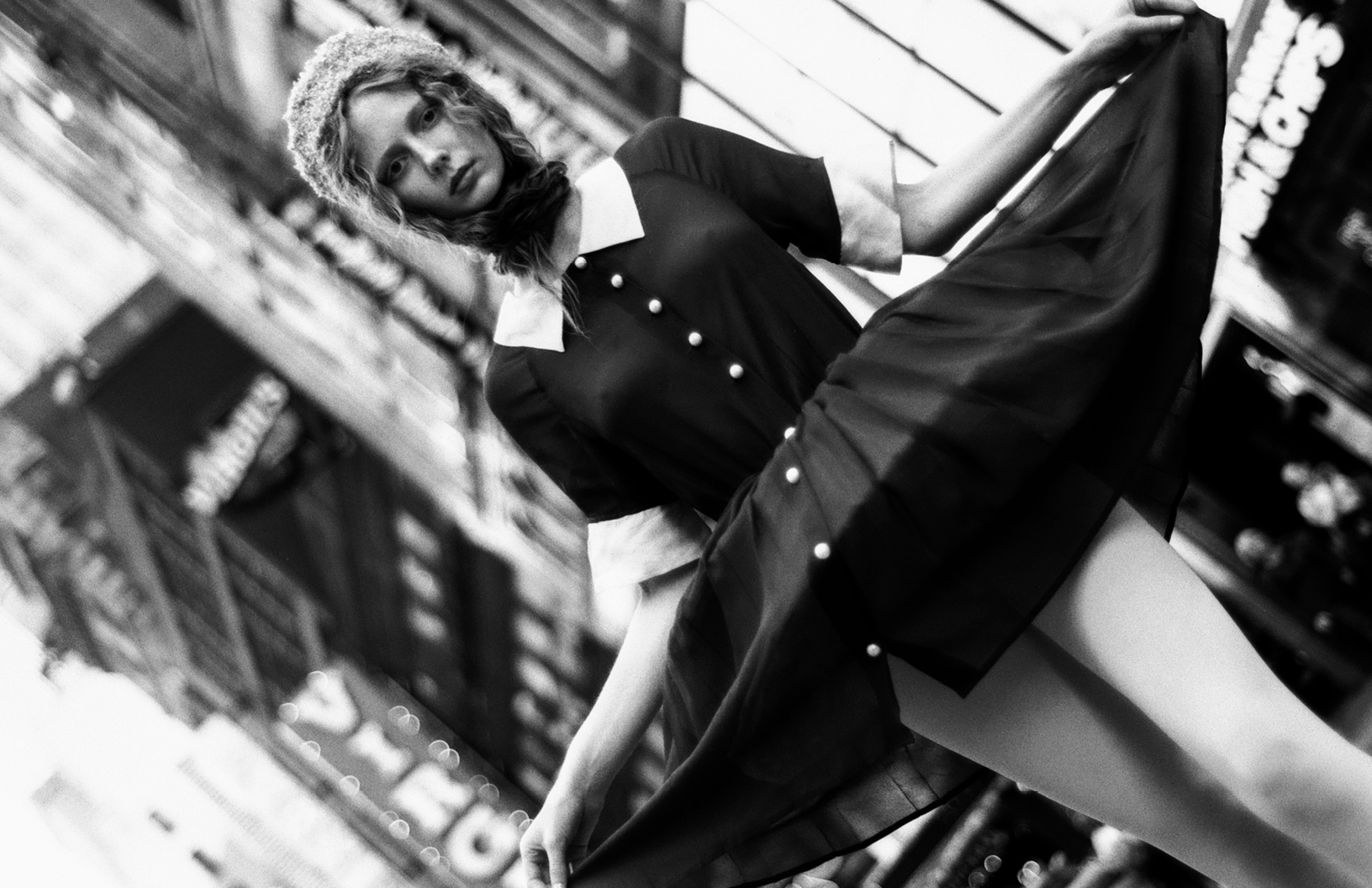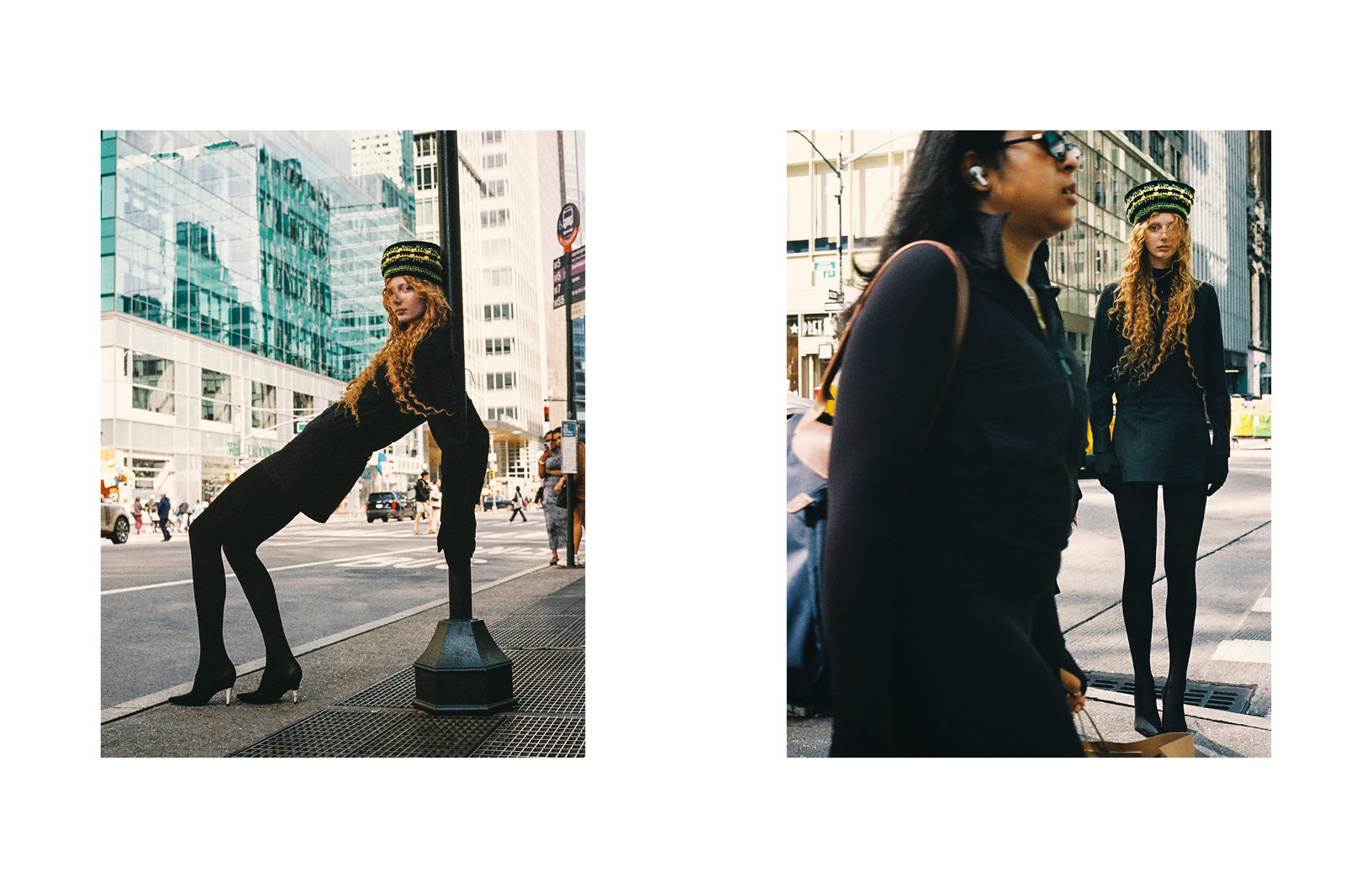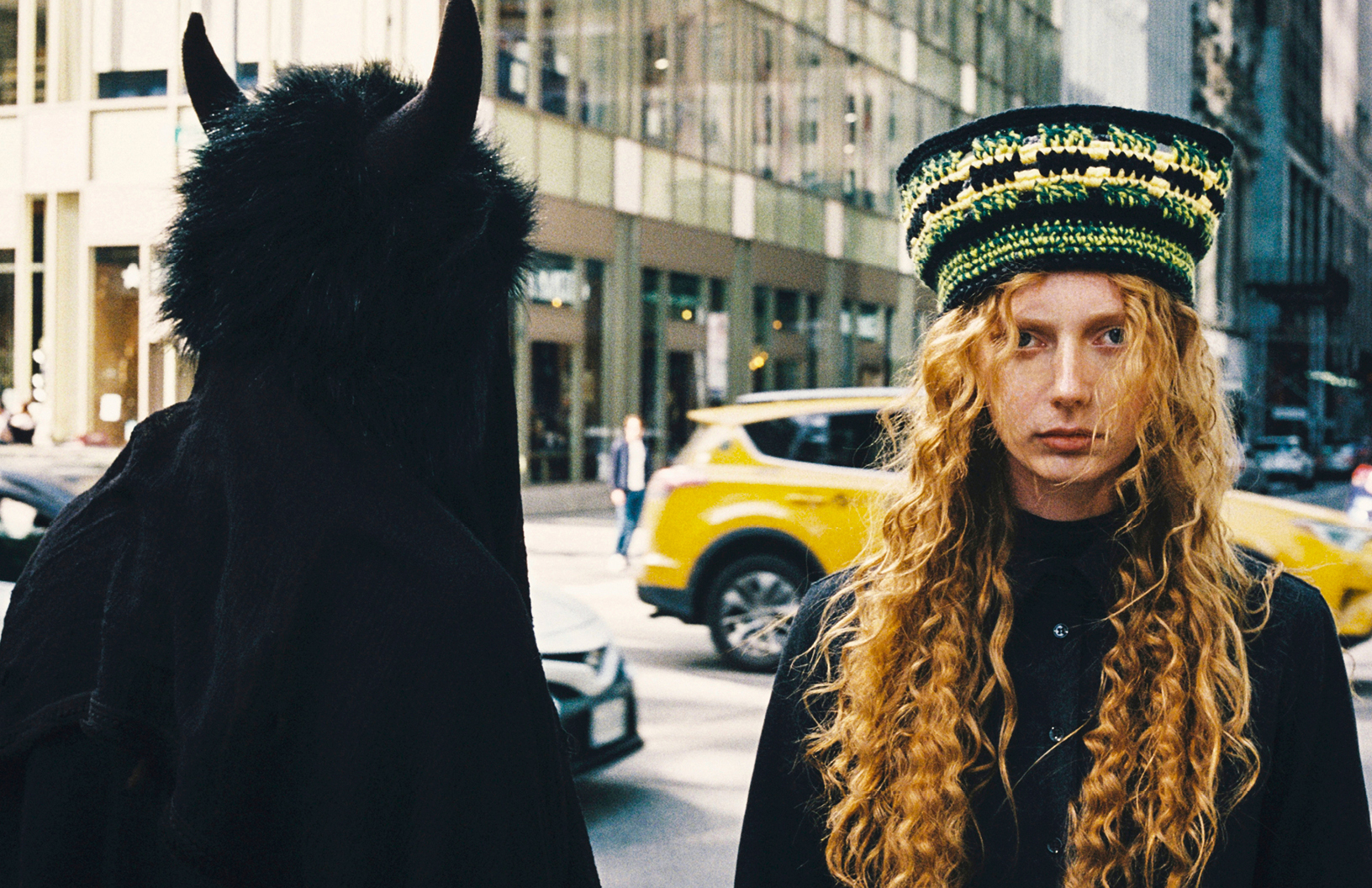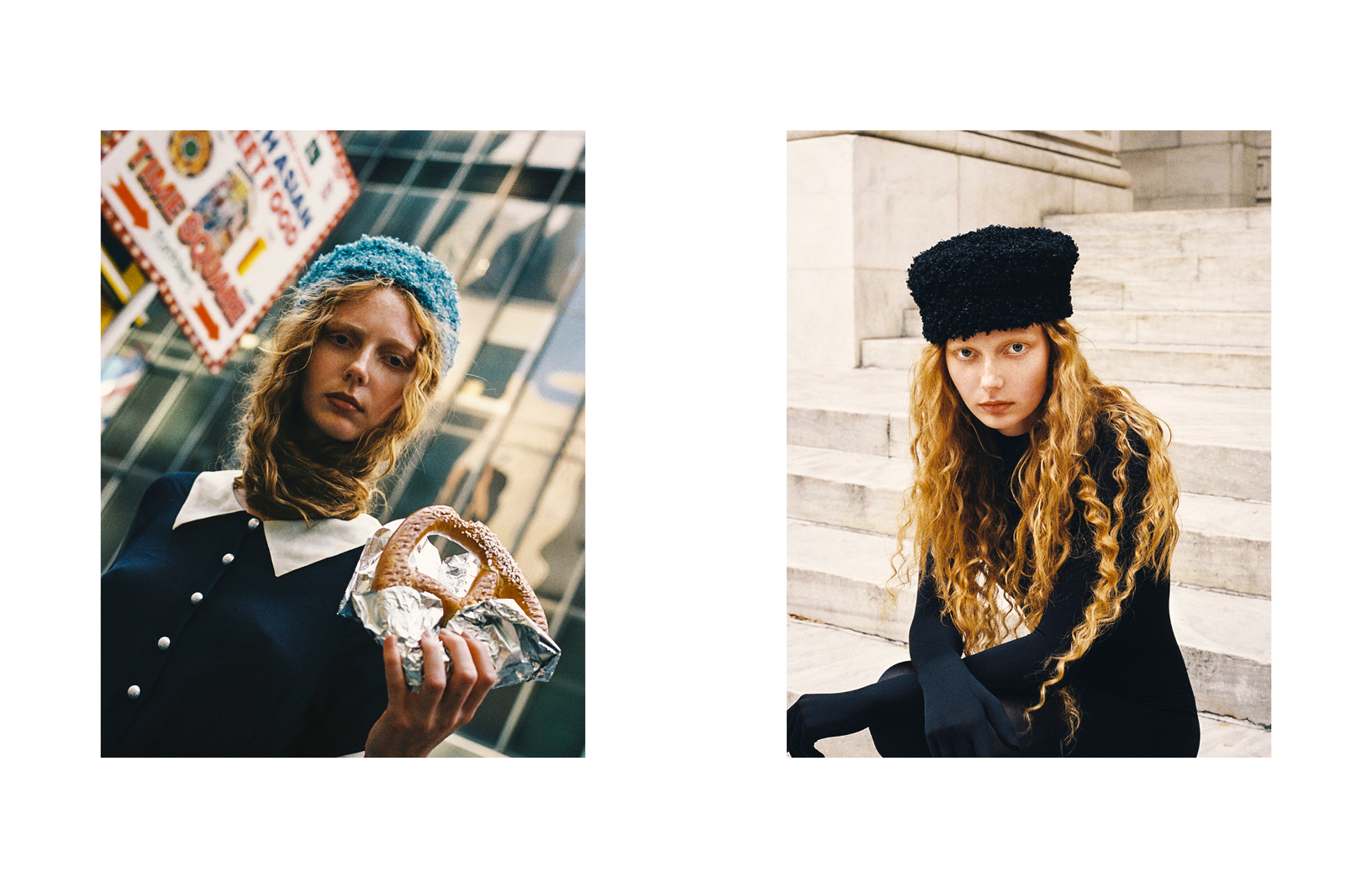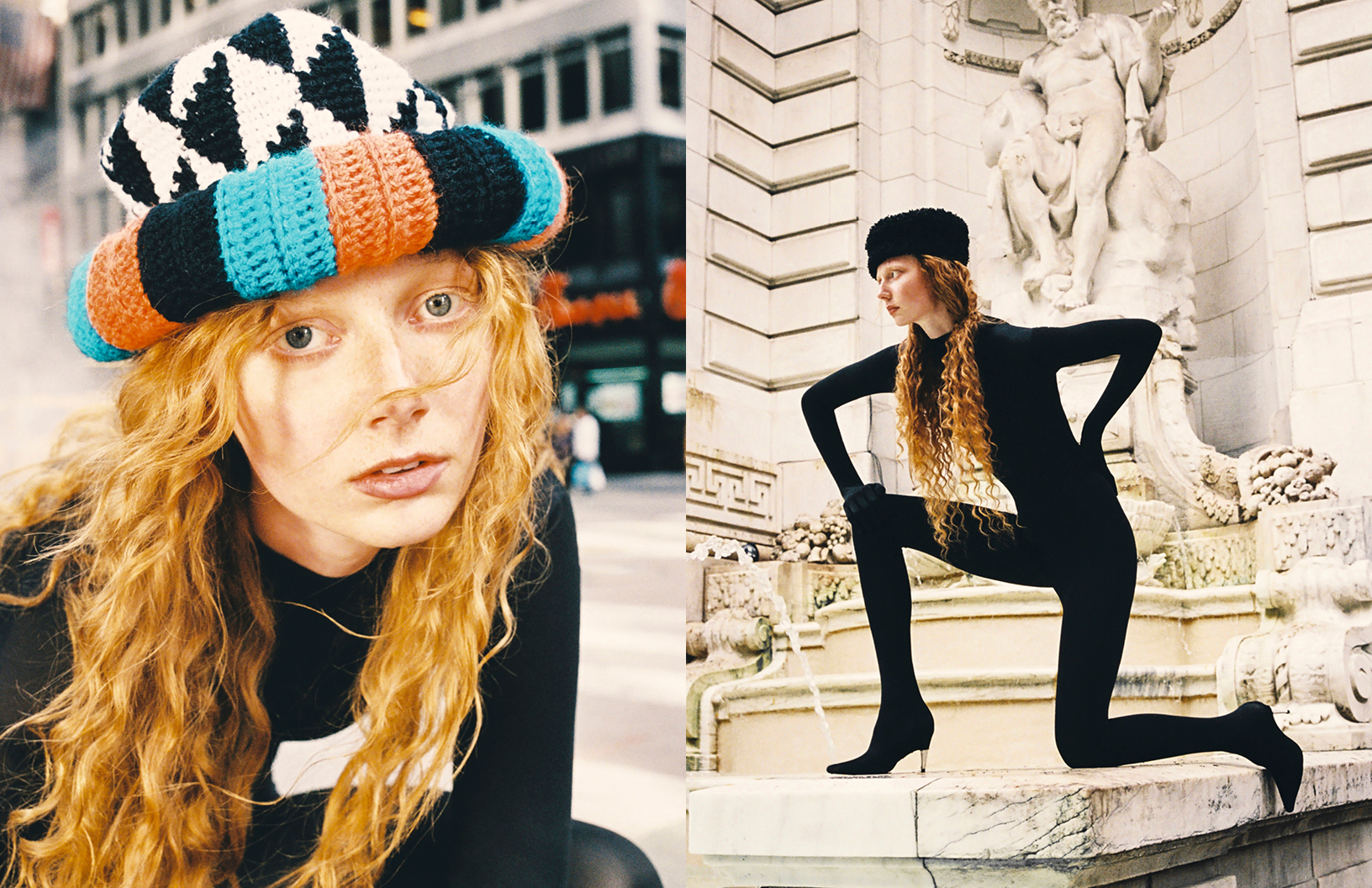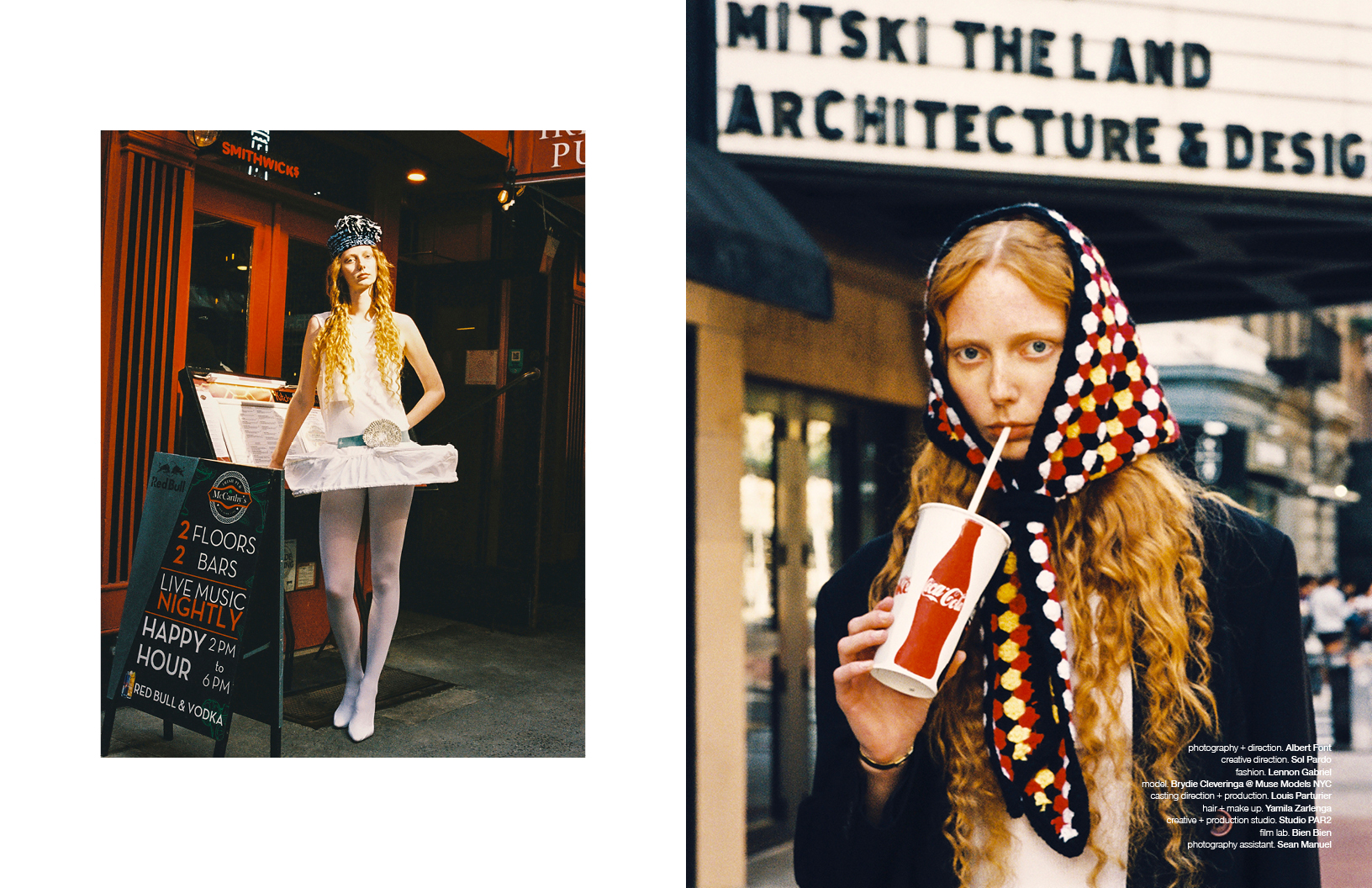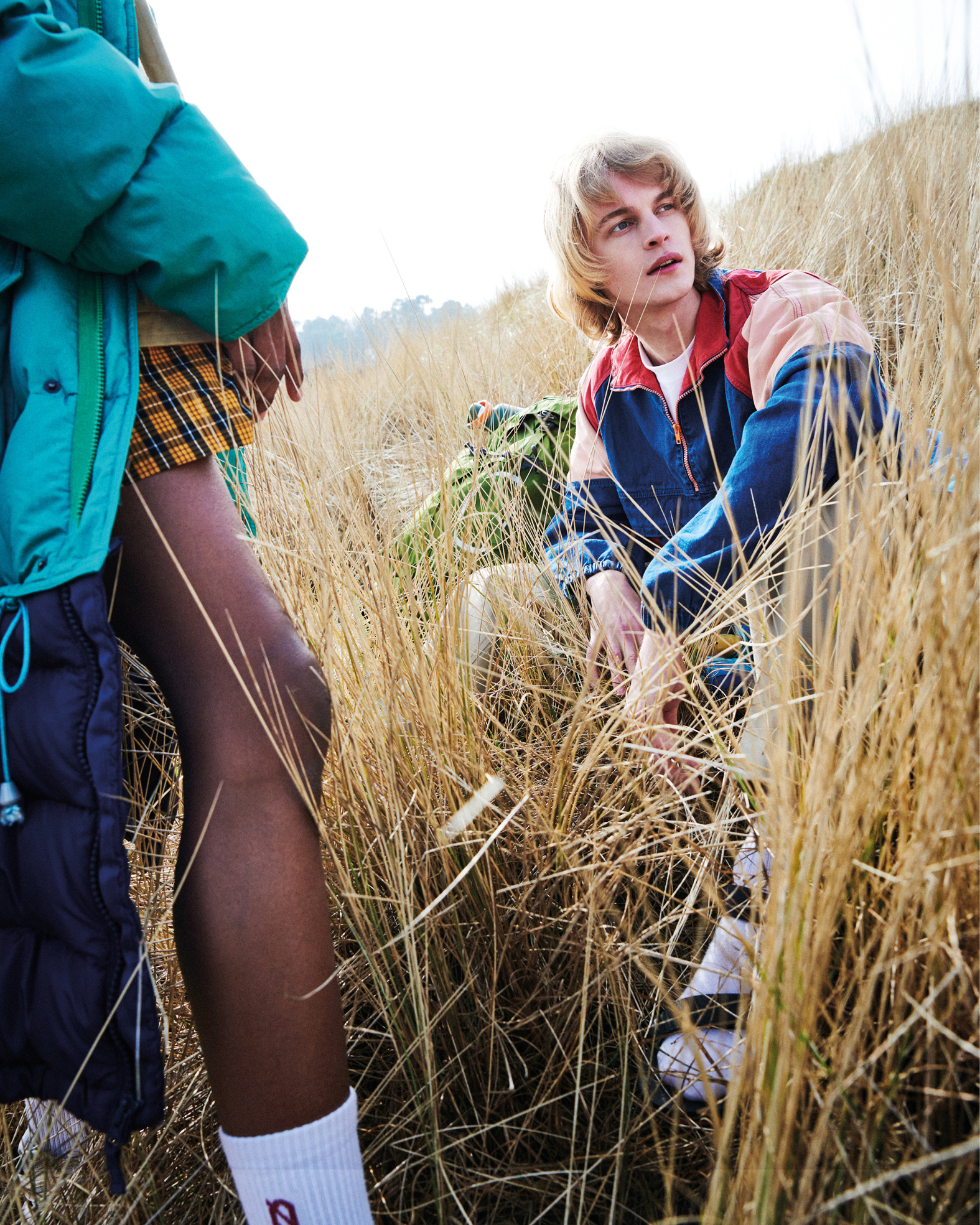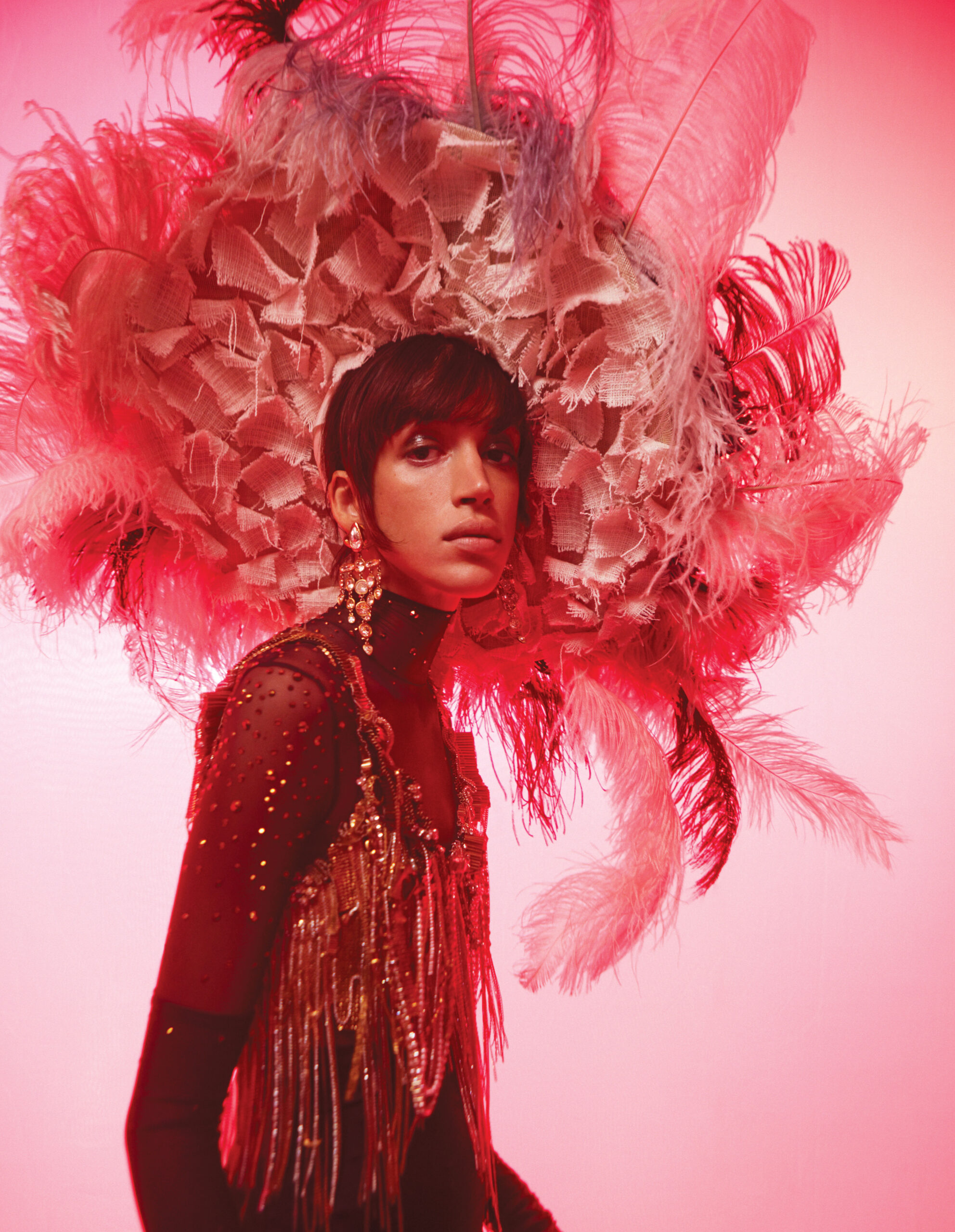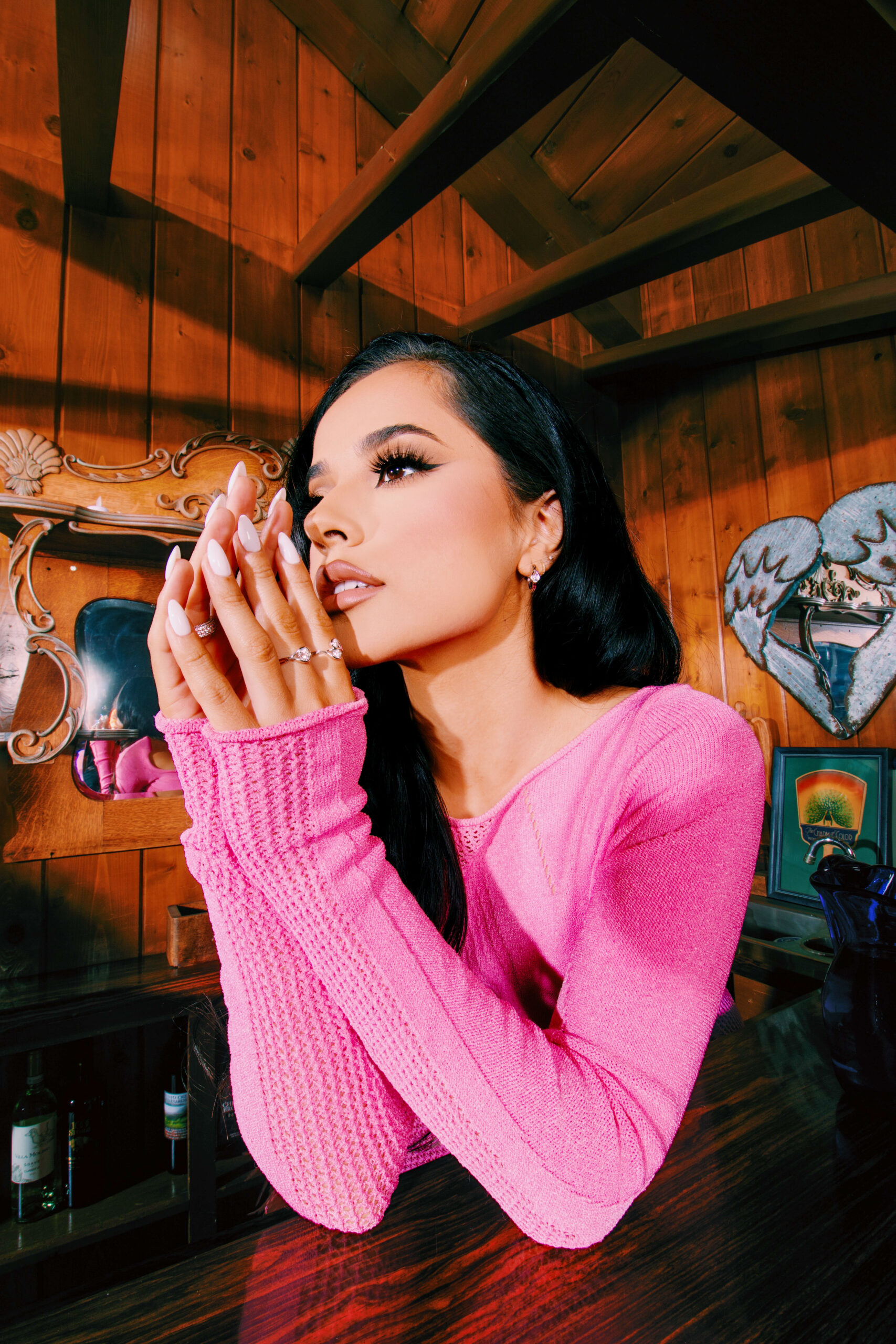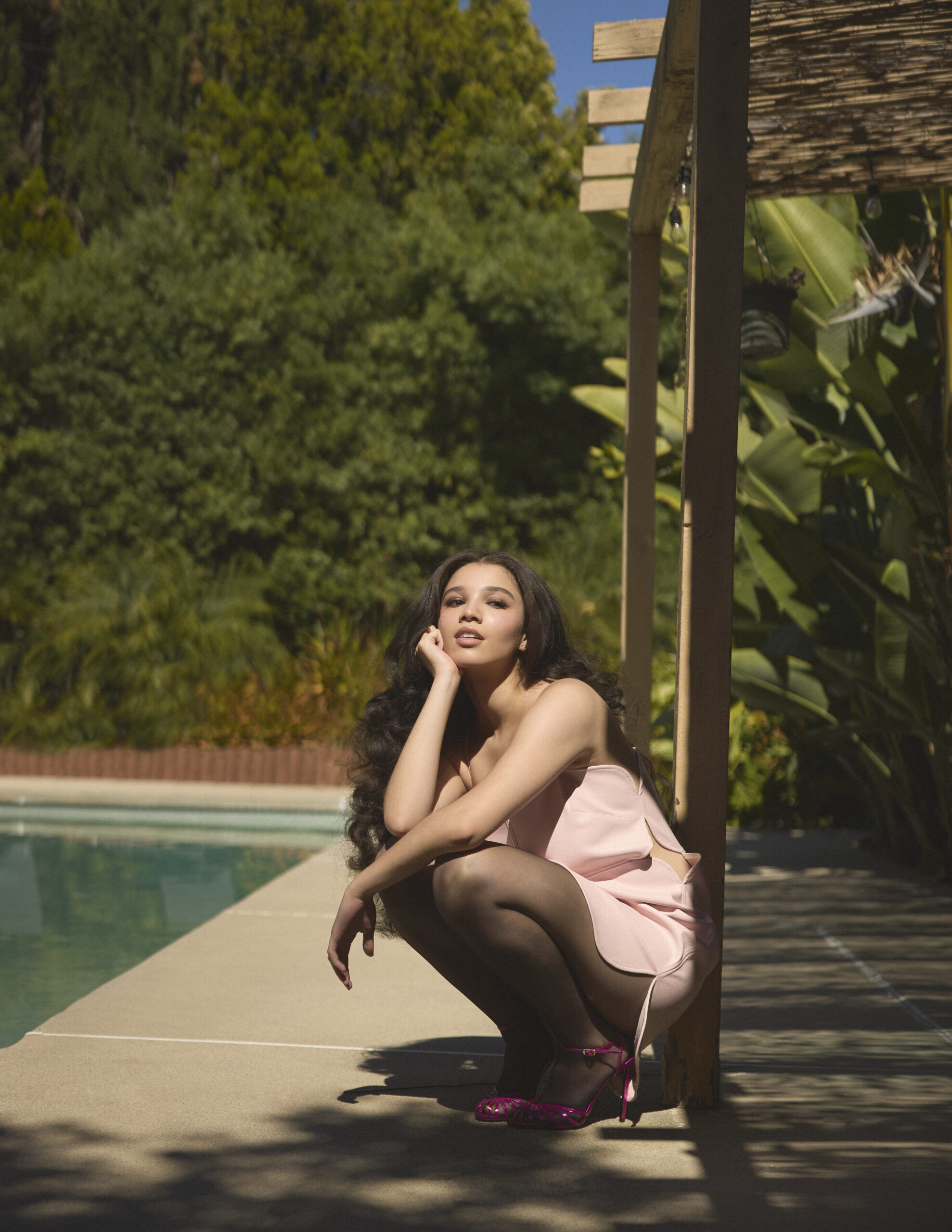Hollywood newcomer West Duchovny is starting to make a name for herself by sharing the stories of complicated, driven women on the big screen. At just 24 years old, the daughter of acclaimed actor David Duchovny and actress Téa Leoni didn’t always have her sights set on following in her parents’ footsteps. It was after joining the production of a friend’s senior project that she fell in love with the craft.
This summer, West portrays the bright eyed college student Alison Thompson in the Hulu original series Saint X based on the Alexis Schaitkin novel by the same name. Alison’s character goes missing on the last day of her family’s summer vacation at a resort in the Caribbean, and their dream vacation turns into a nightmare a few days later when her body is found on the bank and two local male resort workers that she became friendly with are arrested. The show follows her younger sister Claire as she seeks out answers to try and solve Alison’s unsolved case, revealing – spoiler alert – that her death was actually just a freak accident. While most of Alison’s scenes paint her as a buoyant, sometimes naive young American girl from Westchester, her later, darker scenes peel back the layers of her character, and this is where West’s acting chops truly shine.
On August 10th, West will star in Netflix’s new fiction series Painkiller alongside Uzo Aduba, Matthew Broderick and more. She plays Shannon, a pharmaceutical sales person for Purdue Pharma, the manufacturer of OxyContin during the opioid crisis. The week of the trailer release for Painkiller, Schön! sat down with West Duchovny to chat about finding her love for acting outside of her family’s encouragement, her experience filming her breakout role in Saint X, and her goal of continuing to portray complex women on screen.
The following interview took place before the SAG-AFTRA strike began on July 14.
You obviously grew up where acting was a very prevalent career in your life– did you feel pressure to also pursue acting, or is it something that you were excited about and came natural to you?
No, the opposite! I think I was discouraged and also I never had any interest in it. I think because I grew up around it, everyone was always asking me if I wanted to do it and I initially thought it wasn’t my thing, so I kind of stayed away from it and rebelled against it a bit. And then in high school, I was about to graduate and had gotten into college and was going to go for pre-med and just did a play for fun because my friend was directing it and I was like, “oh, no.” I had never felt that way about anything I’d ever done. The love for it came so effortlessly in a way that hadn’t happened with any other endeavours I had kind of done in the past. And so then it was just kind of like, if I don’t give this a shot, I’m just never going to be able to stop thinking about it.
You partially answered my questions already, but was there any character in a film or moment in your life in particular that made you want to pursue acting professionally? What made you want to do the play?
Well, with that play specifically, the big reason why I wanted to do it is because of the topic– it’s this play called “Slut.” And it was put on in a small theater in New York and she had chosen that for her senior project. It’s about sexual assault, and I just really wanted my high school to see it. And because it’s a senior project– you know, it’s not a school production, it was really a ragtag group of people trying to get enough of it off the ground so that we could do it. And I was trying to figure out lighting, sound, and other odd jobs in the production and I’ve never done any of it! Then my friend approached me and said “actually, we need more actors,” and that’s how it happened! I definitely fell into it.
That’s amazing!
Yes! And my parents were shocked. They were like, “Oh my God. That came out of left field – what’s happening?”
Do you think they were nervous for you at all, or just excited?
My dad has now admitted that before he was so nervous for me, and then he saw the play and he was like, “oh, thank God, she’s good.” So I think that’s kind of where he was at, at least.
That’s great news! Also, I just finished watching Saint X– what a great show with the most shocking ending! What initially drew you to audition for the role of Alison?
Thank you! I think it was the challenge of a character who could so easily be unlikable, and I think someone who presents a certain way and then is so clearly someone different on the inside, that’s such a fun kind of exploration of what it means to be a young girl and growing up and struggling and rebelling– that was fun. I got to make her weird, I got to show the human in her because I think so often she presents as this, like, “I’ve got it all figured out, I’m so tough,” perfect kind of girl. So it was that, and then also just the topics that it tackles were really attractive to me. You know, like putting something on that I think deals really well because it shows all the complexities of the themes of like, race and like colonialism and white privilege and the economic disparity, and I thought it did that in such a smart way. I would love to be a part of telling this story.
That actually leads me into my next question– the premise of the series is the reaction to the loss of your character. Going in knowing this, did that put pressure on you to make sure Alison was likable enough to make sure the audience was involved?
It was definitely scary because throughout the whole show, you need to feel for her, and you need to root for her to some degree. And again, at the same time, she’s very problematic in a lot of ways. So how can I balance that out with some fun moments or some quirkiness or some self-consciousness and fear and how do I show that? And I think what added to the challenge is I only had eight days. Like, you only see Alison for eight days. These other characters, you’re getting different timelines and more context, but all you get is vacation Alison for eight days. So I had to approach the role asking myself the question “how can I do her justice in those eight days?” It was a fun challenge. I have a very limited window to showcase who she is and all of her complexities. So that was also kind of fun for me. It was scary. It was definitely scary.
Had you read the book prior to auditioning?
No, I hadn’t read it. It was a long drawn out process of auditioning. It happened over about six months, so I would come back to it and then I wouldn’t hear anything, oftentimes thinking that it wasn’t happening. And throughout that time, I only had access to the pilot, and so when I booked the role I immediately went and bought the book and started reading. And I was like, “my God, that’s how it ends?!” I had no idea what I was getting into and I was reading the book, but I loved the story, and so that just made me more excited. I think it’s really clever and really relevant, and so well done.
Something beautiful about this show is it explores so many relatable and current controversial topics – from racism, homophobia, and a lot of the characters in some way or another are having to hide a part of themselves. How does it feel to be a part of a show that wasn’t afraid to be a little controversial and brought these relevant struggles to light?
I think it’s just how the show handles these topics– I don’t think that it’s force-feeding you an agenda so much as just forcing you to sit through observing the complexities of these issues and I think it’s extremely uncomfortable at times, which is what I love. And there’s one part in the first episode that I always hung onto– when Alison’s on the bus and she’s taking in the fact that we’re taking a vacation in a place where people don’t even have roofs over their heads, and the bus driver says, “you know, I can tell you people are happy on our island.” And I think that’s kind of the tension throughout. What’s so interesting about these themes is it’s so much more complicated than you might think, and the show doesn’t shy away from showing those complications. It makes you uncomfortable, it makes you think, and I just think that that’s what good art is supposed to do.
For most of the series, your character had a really light and fun storyline, until the end when there’s a massive plot twist and your later scenes were much darker. Were those scenes challenging to film?
Definitely. You know, to go to those places emotionally, it’s always intense. But it was so funny while we were filming because everyone else was having intense, emotional scenes throughout the entire shoot. And I’m just showing up to work like “la, la, la, not another make out scene.” I’m just going around and messing with people. It was just a funny dynamic and it wasn’t until the end that I kind of experienced that other side of it. But it’s funny because Alison’s the only one who’s consistently enjoying herself pretty much, but obviously it was lovely to get that other side and get deeper with the emotional content.
I know sometimes filming those types of emotional, very dark and twisted scenes can be a lot. Is there anything that you would do at the end of a day that would help you decompress?
It’s just so obvious. I just shower. I just sit in the shower and I feel clean and I get out and I go to bed. I feel like you wash it away. I listen to happier music on the ride home than when I was arriving on set and just kind of try my best to let it go and trust that I did my best and let it be what it was, where it was.
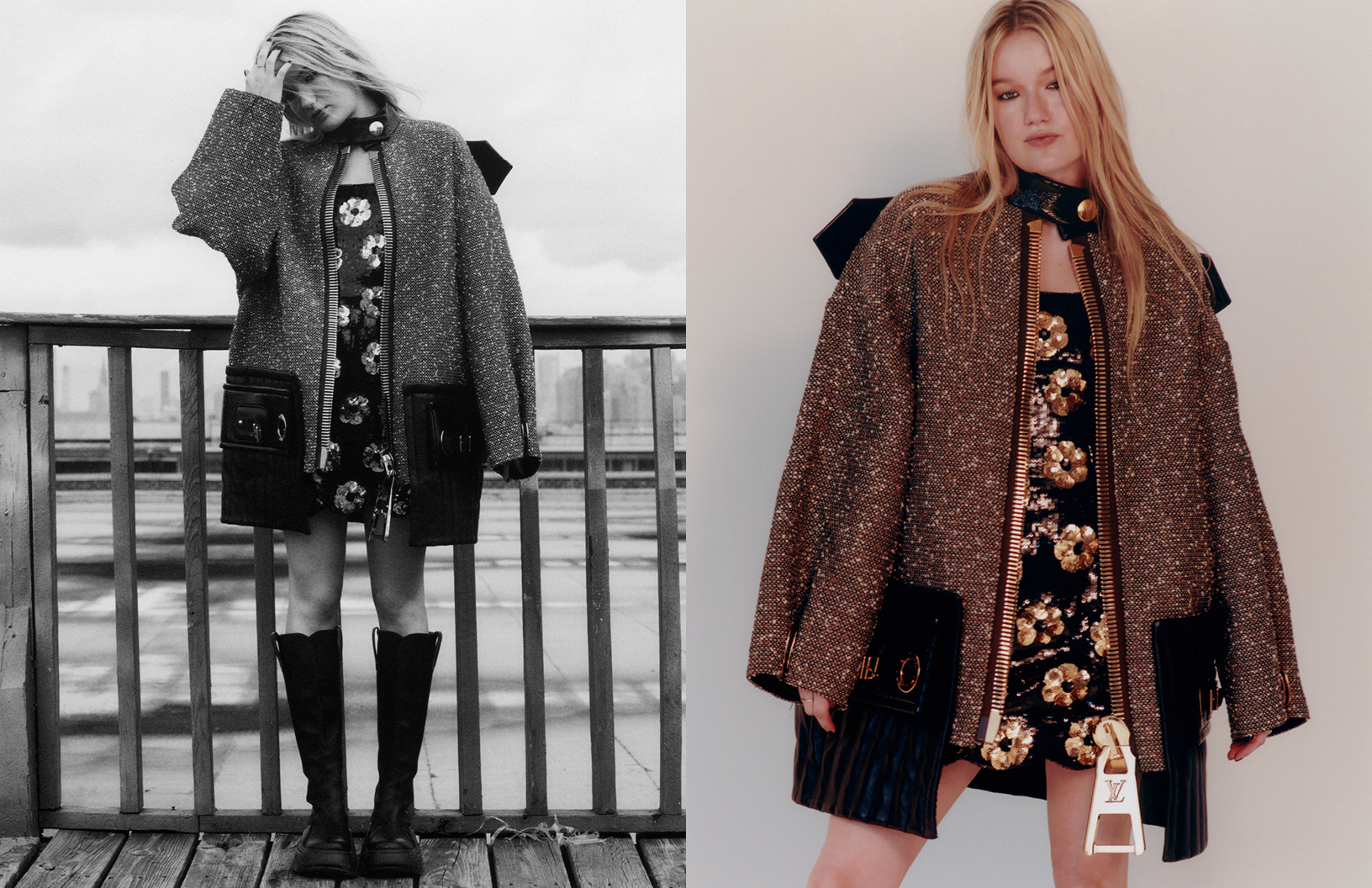
coat + shoes. Louis Vuitton
dress. Brandon Maxwell
opposite
coat + shoes. Louis Vuitton
dress. Brandon Maxwell
Are there specific artists you like to listen to on your drives home?
I always make playlists for my characters. I had an Alison “Up” playlist and an Alison “Down” playlist depending on the tone of the scene, but the Alison “Up” playlist was way longer, obviously, and I latched onto CHVRCHES. There’s one song in particular called “Good Girls” and I felt like that was her anthem. But a lot of CHVRCHES, a lot of fun., like early 2000s female pop type of stuff. But “Good Girls” by CHVRCHES, I think I played that like a million times while we were filming.
That’s a great song! And I think it totally makes sense for that to be her theme.
Right? If you go back and listen to it and pay attention to the lyrics, you’re like, “oh my God.”
I recently watched the trailer for your new show Painkiller on Netflix! Without revealing too much, what can you tell us about your character Shannon?
She has the most intense arc out of any of the other characters in the show, which I think is really fun because you see her in very, very different kinds of mental states and stages of her experience selling for Purdue. But I think I latched on mostly to her work ethic. I remember reading just the pilot and just thinking about how tenacious she is and how hardworking she is, and she’s very ambitious. I think her main theme, which I know about these themes from therapy, but one is recognition for success. I latched onto that and I definitely have parts of that in me too. So I think she just, again, similar to Allison, was complicated and powerful, and then just a strong female lead, and I hope people respond to her in the way that I did.
I just read the article you shared on Tudum and I love how they explained how Shannon wasn’t a bad person, but this is just a job for her and she has to compartmentalize that..
I think she thinks for a really long time that she’s doing good. You know, if you’re being told that you’re helping people and you’re alleviating pain, the more that you spread the word, the more people can stop being in pain. And when you have that in your head, plus you’re making a ton of money after being raised in a trailer park pretty much, plus every time that there’s a little concern, it gets met with such reassurance. And just going back to thinking you’re really helping people. I think that that’s her struggle– the more she sees the red flags, the harder it gets to keep going. But I think she has a very strong moral compass and that’s also something really admirable about her. It’s like, you’re making a ton of money, you think you’re being this helpful spreader of medicine, so it’s easy to get blinded by that.
I’m such a big fan of the cast– especially Uzo Aduba & Matthew Broderick. What was your favorite part about working alongside the amazing cast of this show?
Oh my God, I am such a Uzo Aduba fan. I think she’s phenomenal. But I think with all of them, I was definitely the newest and I was terrified that I was amongst the company that I was surrounded by. And I think part of what was so great about being around all the seasoned actors is that they had a confidence and a serenity that I didn’t have going into it. And so to be around that, it’s very calming. I mean, it makes my job so easy when your scene partners are so talented. It was such an honor to get to work with them and I learned so much and it was really helpful to have that energy around and that support of people who had been doing this for a while and who I respected so much.
Where do you hope to take your career next? Are there any types of projects in particular that you’d like to explore?
I think I’ve been really lucky. I know I said this kind of, but I’m really lucky in getting trusted to represent all the complexities that exist within these women, and I think I want to keep getting roles that explore that and expose the realness of what it means to coming of age and hardship and confusion. I just want to keep playing complicated ladies, and I’m up for anything. I want to experience as much as possible in terms of genres but I’m just so drawn to these kinds of, not tortured, but struggling to find themselves women. And I’m younger so I’m going to get younger roles, and I think that that’s when you’re in that “who am I?” stage. I think that’s really, really interesting!
Saint X is out now on Disney+. Painkiller is streaming now on Netflix.
photography. Tyler Roste
fashion. Caro Jin Park
talent. West Duchovny
hair. Satoshi Ikeda
make up. Shayna Goldberg
production. Clara La Rosa
video. Nate Margolis
set design. Bradley Carroll
photography assistant. Alex Johnstone
interview. Rachel Martin




